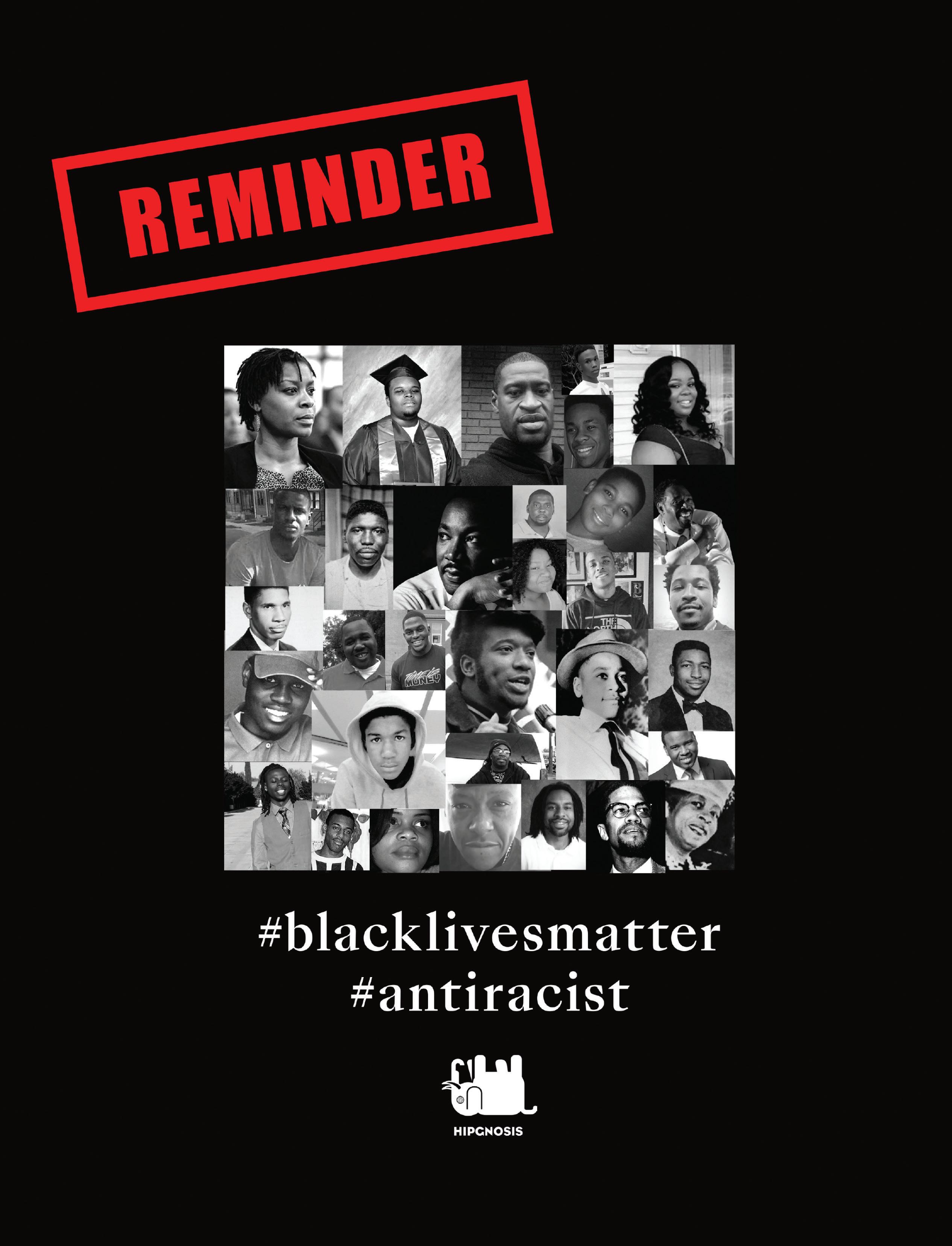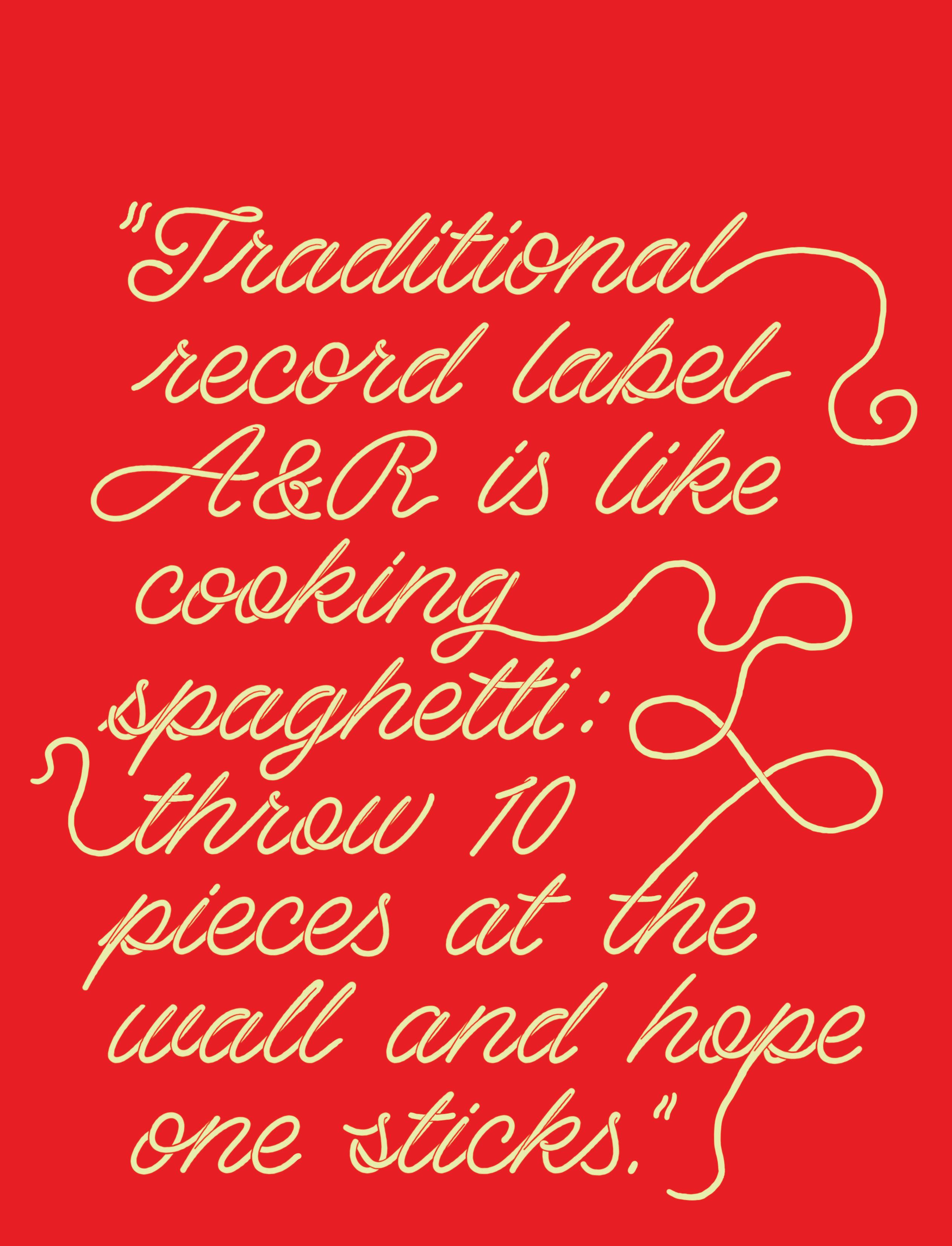
Q3/Q4 2022
HOW A “MISS” CAN BE A HIT. EVERYONE LOVES A HIT RECORD, BUT BMG’S BUSINESS MODEL ENSURES NEITHER WE NOR OUR ARTISTS NEED HITS TO ENJOY SUCCESS. THE TOP 100 STREAMING HITS NOW ACCOUNT FOR ONLY AROUND 5% OF TOTAL REVENUESAND DECLINING. WE REFUSE TO TELL ARTISTS AND SONGWRITERS RESPONSIBLE FOR THE OTHER 95% THAT WE’RE NOT INTERESTED IN THEM.

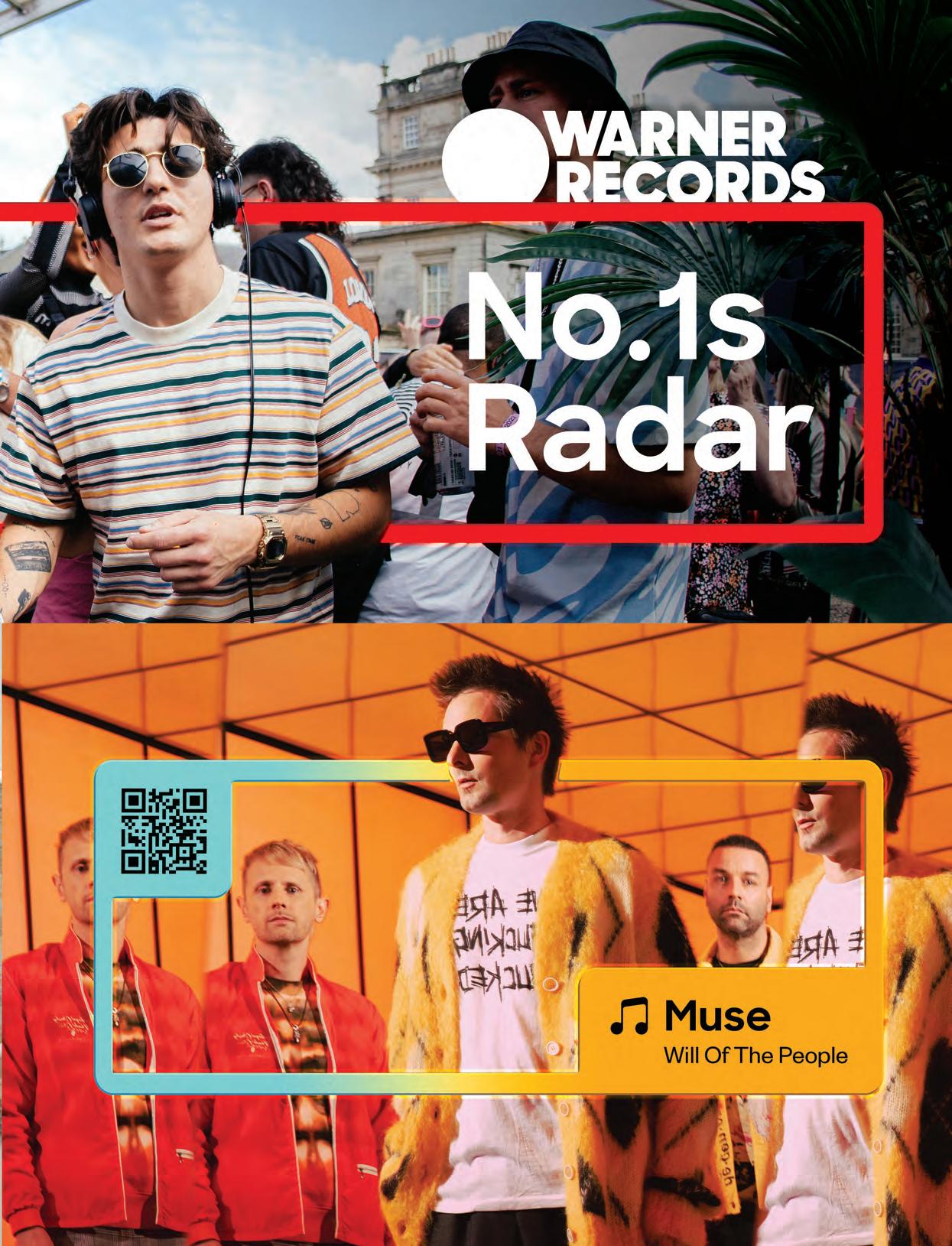

1
In association with

THE UK MUSIC INDUSTRY’S MOST ENJOYABLE NIGHT OUT TUESDAY, NOVEMBER 8 GRAND CONNAUGHT ROOMS, LONDON TheAandRawards.com
8 14 Dominique Casimir BMG 22 Kid Harpoon Songwriter/Producer 28 Carl Samuel Columbia 32 Mike McCormack UMPG 38 Amber Davis Warner Chappell 46 Ryan Lofthouse Closer Artists 56 Jane Third DreamTeam 60 Matt Vines Seven 7 Management 68 Howard Corner ADA 82 Simon Williams Fierce Panda In this issue...

Adrian Sykes is a widely-respected UK music industry veteran, having made key contributions to the history of Island and MCA over the past four decades. He is also a successful entrepreneur and manager, having founded Decisive Management – which looked after Emeli Sandé before, and throughout, her multiplatinum debut album campaign.
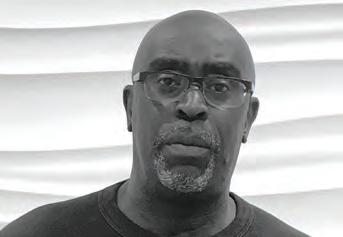

Contributors
Eamonn Forde has been writing about all areas of the music business since 2001.
He regularly writes for IQ, The Guardian, The Big Issue, Q, Music Business Worldwide and The Quietus among other titles.
He completed his PhD at University of Westminster in 2001. His latest book, Leaving the Building: The Lucrative Afterlife of Musical Estates, is out now.
Jane Savidge is a British writer and public relations agent. As co-founder and head of public relations company Savage & Best, Savidge is widely credited as being one of the main instigators behind the Britpop media wave that swept the UK in the mid-1990s. In this issue, she writes about the death of music PR, what killed it – and how it’s robbed the biz of “messiness”.

Mark Douglas is Chief Information Officer at PPL. In his current role, Mark is responsible for all of the technology systems and data that underpin PPL’s operations. To achieve this, Mark leads PPL’s Information Technology, and our Data & Insight functions. In this issue, he offers us some no-nonsense views on blockchain and music rights.


Mark Sutherland has been covering the music business for over 25 years. He is a Variety columnist and writes for publications including Rolling Stone and Kerrang!. He was previously Editor of UK trade title Music Week. In this issue of MBUK, Mark pens interviews with Thomas ‘Kid Harpoon’ Hull, Matt Vines and Ryan Lofthouse.
Rhian Jones is a respected freelance journalist who often focuses on the music industry. In addition to writing regularly for MBUK and Hits Daily Double, she is a Contributing Editor for Music Business Worldwide. In this issue, Jones interviews DreamTeam co-founder Jane Third on what she wishes she’d known earlier in her career, and pens a column on songwriting.

10
MARK DOUGLAS
EAMONN FORDE
ADRIAN SYKES
JANE SAVIDGE
RHIAN JONES
MARK SUTHERLAND
EDITOR’S LETTER
This past summer I’ve spoken to veterans, newcomers, number-crunchers, gut-believers, Ivy League graduates, and plenty of firm friends. But none of them have offered me as much wisdom about the future of the music business as a teenage member of my extended family.
Throughout her life, I’ve asked her what music she’s favouring – a playlist that quite literally spans the ages, from One Direction (8-10 years), through to Little Mix and Ed Sheeran (11-13 years), then AJ Tracey, Aitch and Mabel (1415 years). But our most recent interchange was less predictable: She and her Northamptonshire schoolmates were kind of listening to Arctic Monkeys, she said, but were mainly obsessing over... The Kooks.
I was startled not only by the vintage of artists she’d mentioned, but by the order in which she’d mentioned them. It ran directly counter to hardwired music biz/media lore. If you were abiding by that lore, you’d surmise things thusly: Arctic Monkeys – spiky, innovative, all-time pantheon of British guitar music; The Kooks – couple of pleasant tunes, forgotten about, hardly enduring bedfellows of ‘cool’.
This all made me realise something: Teenagers today are hearing ‘older’ music without any of the music biz/media spin and baggage (“that’s the bloke that went out with Katie Melua!”) that besmirched – and sometimes unjustly buried –artist narratives and careers in years gone by.
You can apply the same principle to global audiences being freshly exposed to pop hits that didn’t trouble their domestic radio networks first time around. The knock-out example of this right now is Tom Odell.
Again, be honest with yourself, what was the prevalent UK music biz/media narrative around young Tom after he won the BRITs Critics Choice Award nine years ago?
It was simple, and stupid: Tom Odell didn’t swiftly hit the commercial heights of previous
Critics Choice winners (Adele, Florence, Jessie J), and so was prematurely written off over countless music industry lunches as an also-ran, a disappointment, a comparative flop.
I get to write ‘prematurely’ with abandon there because it’s provably true. Odell’s Another Love has become a TikTok anthem of emotional protest in 2022 not just against Russia’s invasion of Ukraine, but also around the disgraceful killing of Mahsa (Jina) Amini in Iran, and the passionate uprisings that have followed. In tandem, Another Love’s popularity has soared: it recently joined a cast of just 300-ish songs to have accumulated more than a billion plays on Spotify, where Odell currently has over 22 million monthly listeners.

Odell’s management company, UROK –which releases his new music independently in partnership with mtheory – has sensitively and studiously built on this moment. A glance at Odell’s Instagram reveals that he’s currently selling out rapturously-received shows across Europe. Another Odell track, Heal, has benefitted from the limelight, and is closing in on a quarter of a billion Spotify streams.
It is one thing for a track/artist from a forgotten era – Kate Bush’s Running Up That Hill, for example – to connect anew with young audiences in the millions. It is quite another for an artist who emerged less than a decade ago to do the same. When that happens, pre-conceptions naturally remain in the heads of the listeners that witnessed (and perhaps dismissed) that artist’s story just a handful of years ago. Teenagers do not care; for them, this is chapter one.
Following his Critics Choice victory back in 2013, one music biz wag rhymingly advised caution in assuming fame and fortune beckoned for Another Love’s creator. “Tom Odell?” they memorably slurred in my direction, tinkling into a hotel bathroom urinal, “Time will tell!”
In a way, I guess it did.
Contact:
Old Gloucester Street, London, WC1N 3AX
2632-5357
1
Tim Ingham
“Another Love’s popularity has soared: it recently joined a cast of just 300-ish songs to surpass a billion plays on Spotify.”
Enquiries@musicbizworldwide.com Advertise: Rebecca@musicbizworldwide.com Subscribe: MusicBizStore.com © Music Business Worldwide Ltd 27
ISSN
WELCOME
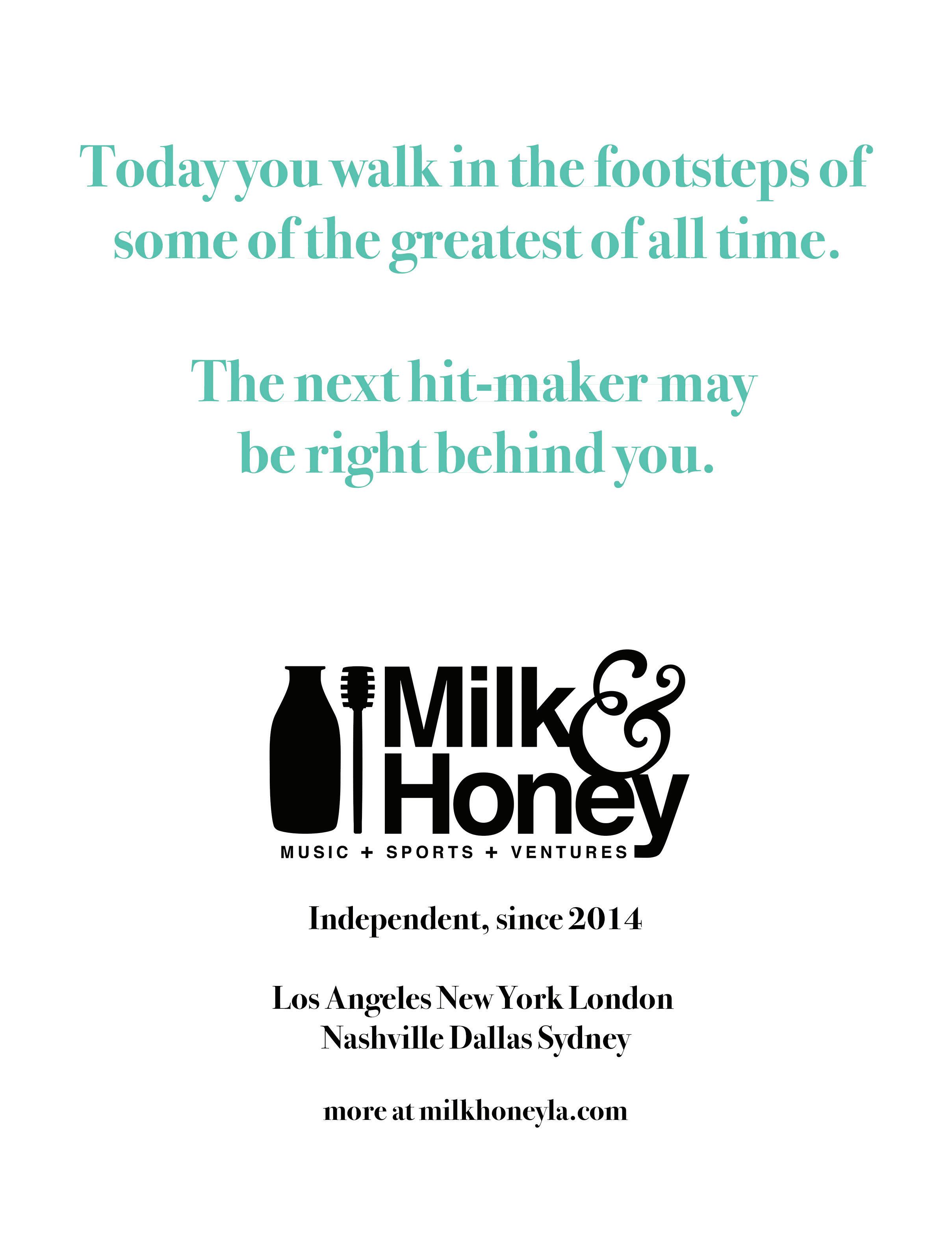

LEAD FEATURE
‘WE DON’T JUST PROMOTE RECORDS ANYMORE –WE PROMOTE ARTIST BRANDS’
Dominique Casimir was upped to CCO at BMG earlier this year, taking control of the firm’s publishing and recorded music repertoire in all markets outside of North America –including the UK. She has some questions about the industry’s hits/charts obsession...
Did you happen to find yourself in a provincial German discotheque in the early 2000s, somewhere betwixt Berlin and Dresden, watching Rednex – and we say this with a modicum of charity – ‘perform’ Cotton Eye Joe to a wideeyed dancefloor?
While you were there, did you notice a 19-year-old woman, stood to the side of the throng, with a handbag suspiciously stuffed with tens of thousands of Euros?
If so, we do hope you were polite to her. Because she went on to become one of the most influential international executives in the global music industry.
Today, Dominique Casimir is Chief Content Officer at BMG, and sits on the board of the Bertelsmann-owned music company. Most importantly, she oversees BMG’s ‘repertoire’ (that’s publishing and records) operation in 17 separate territories, including Central Europe, Latam, and the UK. Or to put it in a more succinct way: Casimir runs BMG’s entire music operation everywhere outside North America.
Twenty years ago, such professional heights must have seemed a long way off for Casimir, who had moved to Berlin as a teenager with the initial intention of becoming a doctor. Within a few months, she’d pressed pause on these medical ambitions, and found herself studying an aimless mix of subjects at university, while waitressing in her spare time to pay the rent. One day, a realisation hit her: “This leads to nothing.”
Following her innate passion for music, she signed up as an intern for a German talent agency that specialised in booking shows for Swedish pop acts. It was an eye-opening introduction to the music business.
She spent most of her time in a van, “picking up acts like Rednex and [nu-disco trio] Alcazar, and taking them to shady discotheques for playback performances – multiple venues in one night. When we got to each show, I’d been told to [accost] the venue owner: ‘No one goes on stage until the money is in my handbag!’”
This precarious lifestyle was a thrill for Casimir until one December night, still in her teens, she found herself arranging an emergency helicopter to the local hospital. The lead singer of
Rednex had succumbed to a life-threatening fever… in a minibus driven by Casimir… which was stuck on the Autobahn… because of an avalanche. Casimir was out of money, out of phone battery – and very nearly out of a lead singer of Rednex.
Somehow, Casimir made it back to her parents’ house in Hamburg that Christmas. And far from being scared off the music industry, she decided to double down.
Returning to Berlin that New Year, Casimir launched her own successful independent booking and management company –keeping her contacts from Swedish pop-land, while also branching out into management of young German rock bands. She made enough waves over the next half-decade to impress Fremantle, a Bertlesmann-owned TV content company, who hired her to handle sync licensing and music publishing agreements in 2007.
A year later, her work caught the eye of Hartwig Masuch, who had just become CEO of the ‘new’ BMG, a startup music company backed by Bertelsmann capital. (The ‘old’ BMG was no more, after Universal Music Group acquired its publishing assets in a USD $2.19 billion deal in 2007.)
Today, outside of the major music companies, BMG is arguably the largest music publishing and recorded music entity globally.
In the first half of 2021, BMG turned over EUR €371 million, up 25% year-on-year, with 40% of that revenue figure coming from recorded music and the remaining 60% from publishing. Its repertoire across publishing and records includes all-time classics from Pink Floyd, the Rolling Stones and Tina Turner, through to modern releases by the likes of George Ezra, Kylie Minogue, Jason Aldean, Slowthai, Lewis Capaldi, Mabel and Louis Tomlinson.
Remarkably, Hartwig Masuch says that BMG had achieved its 25% YoY revenue uplift in H1 2022 “with virtually no hits” – his point being that BMG’s primary focus is not on achieving global chart-toppers, but instead on amplifying the prospects of all its repertoire, regardless of audience size.
As head of BMG’s repertoire outside the US, Dominique Casimir oversees music that is responsible for around 50% of her employer’s worldwide turnover.
Many of her most notable moves to date have come in her
15
“I’d been told to accost the venue owner:
‘No one goes on stage until the money’s in my handbag!’”
home nation of Germany. In August, for example, BMG swooped for Telamo, Germany’s largest independent record label and a specialist in Schlager music (often described as Germany’s equivalent of country music in the US). As a result of that deal, BMG now stands as one of the largest label groups in the German market.
Casimir has also personally been at the forefront of BMG’s investment in three significant areas of live music. During the pandemic, she led the majority-acquisition of German live music promoter Undercover. She also led BMG’s backing of the stage musical Ku’Damm 56, which has sold over 200,000 tickets to date, and was recently extended to the end of February 2023.
Most recently, Casimir took the wraps off BMG’s latest foray into live entertainment: The firm has booked out Berlin’s most renowned theater, the 1,600-seat Theater des Westens (TdW), every night until the end of 2024.
BMG, in conjunction with Bertelsmann, will pack that theatre with live content each week, with a view to emulating the Vegas/ Broadway-style ‘residency’ successes of artists in the US such as Bruce Springsteen, Adele, and Celine Dion.
Here, Casimir explains what her early experiences in music taught her about treating artists and why she believes BMG has cracked the right way to do deal-making with artists – as she reveals an interesting theory for why the music industry continues to obsess over weekly charts…
You started life in the music industry as a teenager, sitting in splitter vans with Swedish pop acts and German rock bands. Is there anything you learned during that time that still resonates with your professional life today?
Definitely. As a manager [in the early noughties] I saw a totally unbalanced, unfair and super-weird situation: The artist would be putting their entire life into this, and you had the industry –whether that was live or record companies – making all the money and calling all the shots.
That triggered something in me from minute one. There was this tone from the music industry during that era: We have the power; you, artist, are small. Now shut up while we overrule you, because we know better.
I met lots of anxious artists who were so busy trying to make their A&R at the record company happy. They were delighted when one of these ‘super repertoire’ people from the label visited the show. To the artists, it felt like these label people really could open the gate of magic at a major music company. But that was actually when the trouble would really start!
What do you mean, trouble?
I believe that the most important thing you can have when you’re starting a [commercial] discussion with an artist is clarity. Clarity
on what it is we can achieve together, but also clarity on agreeing on a realistic picture – sometimes, a reality check! – on what the best case scenario looks like at the end of a project.
That means not promising the sky and everything in it just to get an artist to sign to you. Because what happens in that scenario is you enter into an ‘us and them’ relationship. Record companies might think [when the artist signs with them] that they have ‘won’ a deal, but if you haven’t invited clarity and honest discussion into the room, you will be left with a huge amount of pressure. And, soon, you will be left with the blame game. The moment you create a relationship with an artist where there is ‘you’ and not ‘us’, it just won’t work.
Artists are not always super-predictable – that’s part of the reason we all love them so much. But when they know who they are, you can all agree together what the goals are and what the goals aren’t. When they’re willing to get into the ‘boat’ with their [record company partner], when you’re in it together, there is no blame game. You have a recipe for success.
Isn’t the ‘promising the moon’ element of record company deals with artists very often because the artist involved has a likelihood of releasing a chart hit – or already has one on the way?
Yes. I know you noticed Hartwig’s comment about BMG not requiring a hit to grow 25% in the first half of this year. That is the new music industry.
Of course it’s nice for every artist to have a hit, and we’ve had our fair share. But hits come and go, and for some of them [the record labels] massively overpays. Some artists have just one hit in their career, and it’s not even a super-hit.
You can’t live off that forever, but it might cost you everything because of the way your deal is structured; if that deal, for example, is completely predicated on you having a second hit, with massive expenditure [baked in] at radio. If you don’t get that second hit, you’re toast.
Think of it from the artist’s perspective: The industry often doesn’t talk nice about artists who don’t get that follow-up hit, especially if a lot of money has been spent trying to get it, and artists know that. A huge part of this industry still spends all its time and attention – and a lot of its money – playing that hits game, and it leads to bad incentives.
Traditional record label A&R is like cooking spaghetti: throw 10 pieces at the wall and hope one sticks. Those pieces of spaghetti are artists! It needs to change. There are so many ways of making a living for an artist today. Even though it remains really hard to do so, focusing on just the hits and the recorded music charts – in an age when 600,000 new songs a week are going on to streaming services – isn’t a sensible strategy.
16
“Traditional label A&R is like cooking spaghetti: Throw 10 pieces at the wall and hope one sticks.”
LEAD

FEATURE 17
Tina Turner
What is a sensible strategy?
Our perspective is to look at artists and ask: Is there an interesting brand here, an interesting story we can use our expertise to grow around the world?
As an artist, you need as diversified an income as possible – Covid proved to all of us that just relying on live income can quickly be disrupted. It’s not about just living off your vinyl sales or D2C, or Spotify, or ticketing; you need to understand which income streams work best for you, and turn up the volume on all of them.
We don’t just promote records anymore – we promote artist brands.
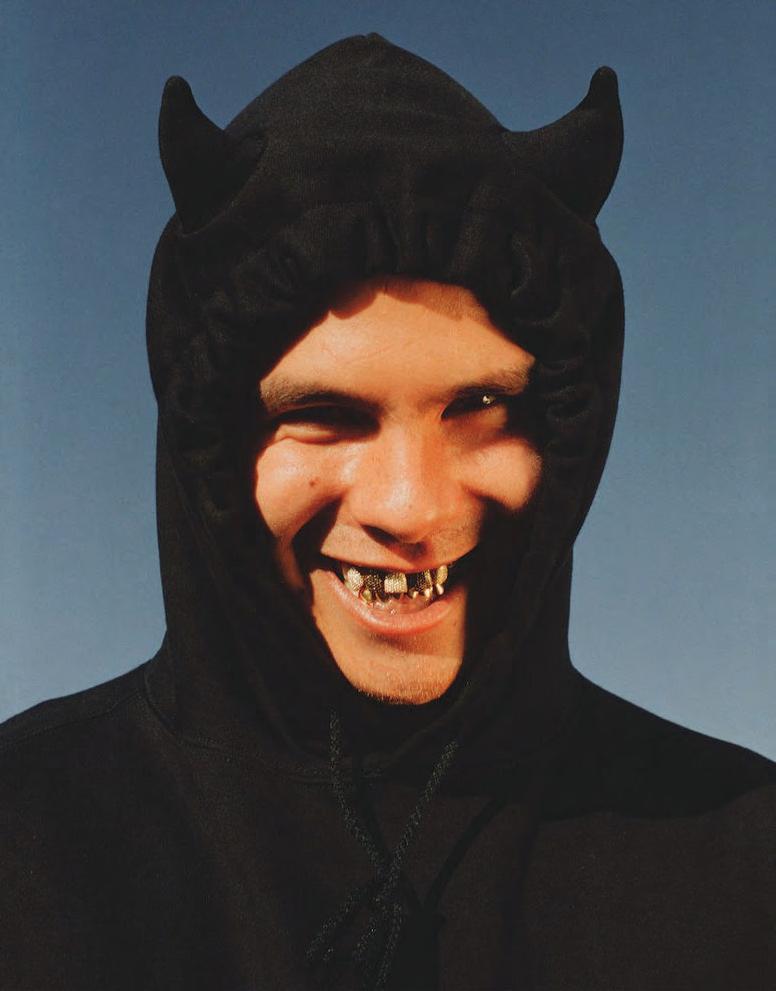
Why do you think so much of the music industry continues to focus on charts and hits? Surely that doesn’t make sense under your argument; there must be a sound economic reason for it? One of the reasons I’m so thankful I started out in live is that I got to witness that ‘live moment’ – when eveything you’ve worked on together as a team is realised. You hear the audience; it’s such a direct and satisfying reaction.
That’s something you don’t get when you work in a record company. That’s one reason I think the charts remain so important to friends and colleagues in the record industry – charts are a mirror that tell a team: ‘You’ve done something successful.’ But
the truth is the charts only reflect a small proportion of the music industry, and even if you do have chart success, it should only be one part of a much bigger story.
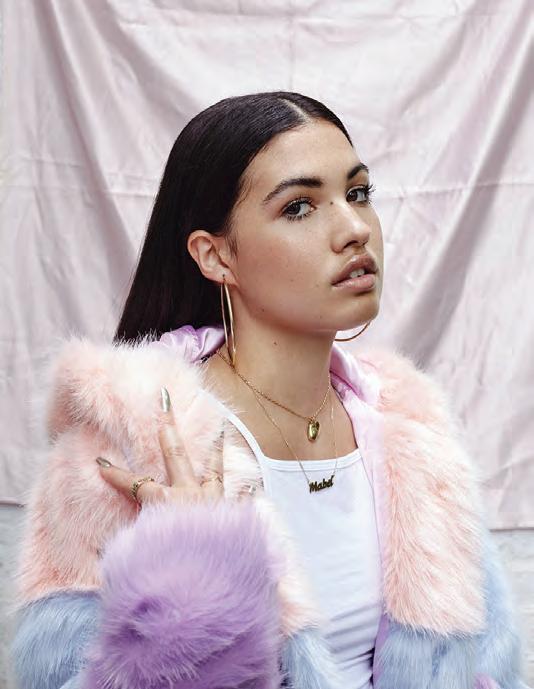
That was made clear to me from the first minute of being interviewed to join BMG. Hartwig was very strong and opinionated: we need to apply expertise and systems to what music IP is, and what an artist identity is. That’s the goal. And we need to do it while being honorable, transparent and offering the best level of service – not overruling or overpowering because ‘we know best’.
What were your first impressions when you met Hartwig? He was busy choosing the new BMG logo at the time! I remember him turning around and saying, ‘Why do you want to join this new music company.’ And I said: ‘Actually, I’m not really sure why the world needs another major music company.’ That got him going!
He looked and me and said: ‘I will tell you why…’ And that was followed by Hartwig in full inspiration mode: What he wanted, why he thought artists and songwriters deserve it, and the type of people he wanted around him to make it happen.
Since May, you’ve been Chief Content Officer of BMG, overseeing all repertoire operations outside North America.
18
Mabel Slowthai
Which markets around the world are you most excited by from a business perspective?
Mexico, and Latam more generally, stand out. We announced we would launch BMG Mexico earlier this year, we’re in the process of getting it up-and-running and it is already so much fun. There’s tremendous growth, of course, in LatAm [territories] with many of them growing by more than 30% per year for three years in a row at this point. Streaming and digitalization of the LatAm markets is generally very advanced. But on the other hand, other parts of the industry - the live business, brands, merch, the sync business – all have room to become much more relevant, and I think we as BMG will really make a difference to that.
You mention live: BMG has made significant strides into live in its home market in these past few years, especially with your majority acquisition of Undercover, and more recently with your two-year residency of the Berlin theatre where you’ve seen success with the Ku’Damm 56 musical.

Germany is a good country for us to test things. It’s the fourth biggest music market in the world, and in some years it’s
the third [overtaking the UK].
What we’re trying here with Bertelsmann, is to ask: Can we extend what we do in rights management in music to the live business? Because from a marketing and promotion and storytelling perspective that idea makes a lot of sense. We’re very good at that in [music rights]. And then another thing we’re very good at is financial transparency, and I think there’s a need for that in the live world. And we found a company [in Undercover] just like us. The first meeting I had with [Undercover founder Michael Schacke], he said: ‘We are about fairness and 100% transparency. Our artists can come and audit us anytime.’
One big annoying needle in every artist’s foot in live is the consumer data. There’s a huge amount of valuable fan data created in the process of selling tickets, but it’s often difficult for artists and managers to access that information. We are trying to crack that open with some artists, and get the fullest picture possible of their fanbase, so we can really optimise their income streams.
Our involvement in live concert promotion is the opposite of a ‘360’ deal structure: We offer live promotion and agency services
LEAD FEATURE 19
“The truth is, the charts only reflect a small proportion of the music industry.”
George Ezra
Since this summer, as Chief Content Officer of BMG, Dominique Casimir has been in charge of BMG’s UK repertoire across music publishing and records.
Current UK repertoire on the publishing side includes the likes of George Ezra, Blossoms, Frank Turner, Bring Me the Horizon, Mabel and Slowthai.
On the records side it includes Suede, Louis Tomlinson, Kylie Minogue, Katie Melua, Thunder, Simple Minds, Rita Ora, Rick Astley and Wilkinson.
Casimir is clearly proud of BMG’s achievements in the UK – the world’s third biggest music market. But in the globalised landscape of the streaming era, she argues, Britain must avoid becoming inward-looking.
“Of course the relevance of music coming from the UK still matters hugely to a global audience,” she says. “That’s why there are still so many big UK artists around the world.
on an opt-in basis to our [recorded music and publishing] artists. We hope those artists do opt-in, because we think we’re offering a lot of added value. But it’s their choice and if it doesn’t suit them that’s fine.
One of the biggest stories in the music industry this year has been the revival of Kate Bush’s Running Up That Hill via a Stranger Things sync over the summer. What was your take on that, and how even though it’s a ‘catalogue’ record, it exploded like a new streaming hit amongst millions of teenagers who were hearing it for the first time?
It’s a beautiful dynamic, and it’s not about ‘catalogue’ or ‘frontline’. Kate Bush is an icon and an iconic brand. The question for this new generation of consumers, and those in the music business working to maximise this moment’s potential is: What’s the core of the brand? Why why did she have such a cultural impact? What’s the essence of this artist’s appeal?
I translate that to what we’re doing with Tina Turner [whose music interests BMG acquired last year]. What is the essence of why people feel so strongly and so connected to Tina Turner? We’re talking about a premium brand here, and a brand that comes with very strong emotional attributes attached to it. Obviously, it’s about the music, but it’s about more than the music.

So, again, that’s the question: Why was an artist so culturally impactful in the first place? Once you can answer that, you go from there. n
“I do think, however, with that level of amazing-ness comes a certain level of God-like thinking from certain UK executives around the business.
“If the UK is seen as this Olympia of music, that triggers a behavior and a hubris that hasn’t fully left the industry in this streaming age.”
She adds: “Looking around the business, hierarchy still seems so much more important to the UK companies than in [other parts of the world]. Parts of this business are still hanging on to a pyramid structure of management, which feels old-school in 2022, not lean and agile.
“All of that being said, there is magic in the UK. Every artist wants to play the Royal Albert Hall; every artist wants to get on those playlists for Radio 1 and Radio 2. But it’s always worth remembering that 90% of the [global recorded music industry’s] income takes place outside the UK.”
20
‘The UK is such a relevant market – but there is a hubris there’
“Hierarchy still seems so much more important to UK companies than in [other countries].”
Kylie Minogue
KARMA ARTISTS CELEBRATES 10 YEARS

A HUGE CONGRATULATIONS AND
WHO HAVE
FOR
THANK YOU TO

TO
OF
2012 2022 #KA 10
THANKS
ALL
OUR SONGWRITER & PRODUCER CLIENTS
CONSISTENTLY DELIVERED INCREDIBLE RECORDS
ARTISTS AROUND THE WORLD INCLUDING DRAKE, BTS, ONE DIRECTION, CAMILA CABELLO, HALSEY, P!NK, ZEDD, CHARLIE PUTH, KATY PERRY, MARSHMELLO, KEITH URBAN, DAVID GUETTA, ELLIE GOULDING, LITTLE MIX, RITA ORA, THE SCRIPT, GALANTIS, GREEN DAY, LIL BABY, JAMES ARTHUR, KSI, LOUIS TOMLINSON, NATHAN DAWE, TOM GRENNAN, YUNGBLUD, ANNE-MARIE, MABEL ...
THE LABELS, PUBLISHERS & INDUSTRY FRIENDS WHO HAVE SUPPORTED US OVER THE PAST 10 YEARS.
NOT BAD, KID
Kid Harpoon, aka Thomas Hull, is one of the main writers and producers behind Harry Styles’ record-smashing hits. A collaborator with the likes of Florence + The Machine, Lizzo and more, he’s a British talent with the ear of the world...
Before Harry Styles, it was actually Florence Welch and Paul Epworth that changed Thomas Hull’s life.
Hull – better known as Kid Harpoon – had reached a crossroads in his solo career. He’d mutually split with his label, Young Turks, after his long-awaited (and actually very good) 2009 debut album, Once, had failed to capitalise on the buzz he’d built up over years on the live circuit. He’d signed a publishing deal with Universal on the basis of his new songs as he plotted to reboot his solo career, but realised he was likely to run out of money before his new direction kicked in.
So he rung up his friend Florence (of ‘And The Machine’ fame) and asked if she fancied doing some writing. She came over after an all-nighter and they wrote “half a song”. Then-Island A&R boss (now Polydor President) Ben Mortimer liked this half-song and suggested Hull should join Paul Epworth in the studio to help finish it off. Impressed, Epworth told him to come back the next day and, before he knew it, Kid Harpoon was heavily involved with one of 2011’s biggest albums, Ceremonials. The real lightbulb moment, however, came when Hull played Epworth some of his new solo material…
“He said, ‘You should just [focus on] the songwriting stuff,’” smiles Kid Harpoon today. “‘You’re really good at this – it feels like a good fit for you and it works.’ That hit a spark with me because here was this guy at his peak – he was doing Adele and crushing it, he was flying – giving me some advice that I really needed to listen to. It was that conversation that made me go, ‘OK, I need to fully shift – I can still do that [artist] stuff but right now, this is my future in music and what I’m good at.’”
It’s fair to say that ‘shift’ has worked out pretty well. Since that chat with Epworth, Kid Harpoon has worked as a producer/ songwriter/multi-tasking musician with everyone from Jessie Ware to Haim, Shakira to Shawn Mendes and Maggie Rogers to Lizzo. Oh, and some bloke called Harry Styles.
But Harpoon prides himself on not just being some quickfix hitmaker-for-hire. His specialism is a refreshingly old school ability to build a project from the ground up over multiple records. With Styles in particular, it’s paid spectacular dividends.
The journey from boyband star to credible solo artist is
22

At the time of going to press, Harry Styles’ As It Was, co-written and coproduced by Kid Harpoon, had spent 15 non-consecutive weeks at No.1 on the Billboard Hot 100 in 2022. Hull has also co-written/produced Styles hits such as Watermelon Sugar, Adore You and Late Night Talking
not always a smooth one but, over three albums, Harpoon, Styles and fellow co-writer/producer Tyler Johnson – backed by Sony Music’s Rob Stringer and the Columbia label – have achieved the perfect combination of commercial success, critical acclaim and cultural impact.
The stats speak for themselves. Styles’ third album, Harry’s House, released earlier this year, topped the charts all over the world, while lead single As It Was is now the longest-running US No.1 by a British artist in history; it also hit 500 million streams on Spotify faster than any other track ever released.

“I can’t process the numbers side of it,” Harpoon laughs as he joins MBUK from Los Angeles. “It’s too much for my brain to handle. The way music is consumed now is so different to how it was consumed 60 years ago, it’s hard to compare yourself to these records that are being broken. The real impact is culturally, and seeing what that will do over time will be great.”
That will be more than enough to make Kid Harpoon a serious
contender in the upcoming awards season – he should surely be in the frame for any Producer and/or Songwriter of the Year gongs out there, as well as having a stake in every Best Album/Song contest – but Harpoon has a lot more than just Harry’s House in his holdall. He fizzes with stories about assisting Shawn Mendes in crafting his Wonder album; or helping Maggie Rogers record her songs on Surrender without losing the charm of the magical demos; or the time he and Florence wrote What Kind of Man, the lead song from 2015’s How Big, How Blue, How Beautiful while “consciously trying not to do a single, because Florence needed a break from that world”.
Indeed, Harpoon claims to never instinctively know if one of his songs will become a hit (“I didn’t think As It Was was a single and it’ll probably be the biggest song of my career!” he laughs), but he does know good music when he hears it – and there is plenty more of that to come, with a number of hush-hush assignments currently on the boil.
24
He also has ambitions to helm more leftfield projects, citing Brian Eno’s ambient albums (“That stuff is the Harry Styles of ambient music!”) as envelope-pushing examples of what’s possible.
But for now, this Chatham born-and-bred multi-hyphenate has questions for us about life back home – mainly to do his beloved Arsenal (Harpoon also loves a sporting/music analogy) and the UK’s incompetent new rulers (“Is everyone just getting a bit panicky, or is it a shitshow?”). And we, of course, have questions about Harry…
How does it feel to be in the middle of the Harry’s House phenomenon?
It feels pretty amazing because, at this point, me, Harry and Tyler are best friends as well as a team. So it’s like celebrating with your mates. If we ever win anything and go up [on stage] together, it’s not going to be like, ‘We wrote this song in a room three years ago with two strangers’, it’s going to be real. We get to enjoy it in the

same way, text each other saying, ‘This happened! Can you believe this?’ I’ve been doing my thing for a bit and it feels like this is what I’ve been working towards. Through working with Harry and the other projects I’ve done, I’ve now got the skills to do the things I always wanted to do.
Your way of working is quite unusual compared to most of the pop side of the business… Yeah, it’s not as common. But it helps you create an environment where you can dare to fail. If you’re only in for a couple of days, your ideas have to be incredible, otherwise you’re never going to get on the project. When people jump around and think someone else has got the idea that’s going to fix it all, then it takes it out of your hands and the artist’s hands. Our way is about saying, ‘OK, if this is a problem, it’s our problem to fix.’ How do we make the best Maggie Rogers album or the best Harry Styles album? And what do they want their best album to be?
Harry was playing me some crazy jazz piano piece the other week and he said, ‘I love this.’ OK, how do we now turn this into Harry Styles music? Or Maggie Rogers will come in and play me some thrash metal, heavy punk song and I’ll be like, ‘OK, how do we figure this out for Maggie?’ You put all the influences into a melting pot and figure it out. It’s like a fun musical game.
Was there any pressure on Harry’s House after the huge global success of Fine Line?
Not really. We’ve got such chemistry between the three of us now that I’m as excited about what we do next as much as anyone. We’ve been through a process and we’ve definitely written some of the worst songs you’ve ever heard! Going through the process of writing those and then saying, ‘These aren’t good enough’, has enabled us to get to the point where we’re even quicker with that. We’ll start an idea and know within an hour if it’s not happening, and we’ll just move on. There is pressure, but our process is separate of whatever happens commercially.
I’ve worked with people who’ve had massive success on a record before and you can tell that every chord they hit, they’re thinking about how it’s going to be perceived and it feels like a real burden. I was really aware of that going in with Harry so we always say, Just keep writing all the time. You can’t control what happens [commercially]. But you can control being good at the writing process and creating music and learning and improving. I know Jamie Muhoberac, he’s one of the best keyboard players in the world and has played with everyone. And he still has piano lessons to learn new things – it’s a practice, not an end goal. And songwriting and making records is the same.
How do you see your role? Are you a producer, a songwriter, a musician or a combination of the three? The good thing about me, to use a cricket analogy, is I’m a bit of an Ian Botham – an all-rounder. I play drums, guitar, keyboards, piano, I can engineer on the computer, I can write lyrics and melodies. And I was an artist, so I have an oversight part of my
INTERVIEW 25
brain where I can see the bigger picture. As a producer, I’m more in the creative vein. Some people are a lot better at sitting on the sofa, listening and directing the musicians. I’m definitely more coming up with sounds, instruments, parts and ideas and it tends to be like that in the songwriting process as well.
Does it help that you had your own artist career?
Definitely. I made a lot of mistakes in my artist career. We tried to do everything all at once and, at the time, it was an absolute nightmare, a complete mess. I was touring a lot but I wasn’t making a lot of records. Essentially, tours are for promoting, but I was just promoting me, rather than anything in particular. I couldn’t crack [my] record; I went to a couple of different producers before I went to Trevor Horn. Trevor is about as good as it gets as a producer, he is unbelievable.
I’m not sure the record we made [Once] reflected what I was doing live, but it taught me so much about making records and what it is to be a producer. I was watching my project through his eyes and realised how I should have been approaching it. He was such an inspiration.
Do all artists need that sounding board?
Well, you’re dealing with so much anxiety as a solo artist. I always used to get jealous of the Arctic Monkeys – obviously, Alex Turner is the driving force, but he’s got three guys in the band where he can turn around and ask, ‘Do we like this?’ As a solo artist you never have that – the people around you are usually label people and publishers. They’re all wonderful people and usually well-intentioned, but you can’t necessarily count on them to be someone that will make you take a risk. Well, with some of them you can, but everyone’s anxious about getting it right. With Harry, the three of us will be like – ‘Is this cool? I don’t think this is cool.’ So you have this filter you go through before it gets to anyone else.
Whereas sometimes, when you’re thinking commercially, your brain is going, ‘This could be big!’ You’re thinking about what it could be, as opposed to how you feel about it, which is dangerous. In making those mistakes [in my solo career], I learned to spot what other people are doing when I’m working with them. It’s a hard job creating something out of nothing that everyone has to love, so being able to understand that definitely helps.
Don’t people sometimes just want you to go into the studio and write a hit?

26
Kid Harpoon recently co-wrote/produced Lizzo’s If You Love Me
“In music, it’s like:
Here’s a bunch of money, let’s gamble it and see what happens!”
Photo: AB+DM
The problem is, if you’re just aiming for singles all the time, you can end up with an album of eight failed singles and maybe three that have actually gone. Like, what was the point? Whereas if you go in and you’re creatively free, you just have to have the confidence that those will come. And it’s not our job as creatives to decide what the singles will be – that’s up to the marketing teams who need to sell the album. Success is either going to happen or it isn’t. So albums is the way to go, because you’re focusing on the craft, concentrating on getting better and the rest will come.
If you could change one thing about today’s music industry, right here and now, what would it be and why? This job – whether you’re an artist, producer, engineer or whatever – is such a personal, emotional, driven journey, it takes a lot to get through. Every producer and artist is full of anxiety and, what I’ve realised as I’ve got more experienced is, it’s not just the artists, the A&Rs are all full of anxiety, they’re on certain deals and contracts where they’re like, ‘My artist has to be a success.’
You look at sport – football clubs put so much more money into the players – they have psychologists, therapists, masseurs, the whole thing. But in the music industry it’s like, ‘Here’s a bunch of money, let’s just gamble it and see what happens!’ Sometimes you win, sometimes you don’t. But in football, you don’t play someone when their head’s not right, you put them on the bench for a bit, take them out of the limelight and manage them a bit more. And that’s where this industry can improve, on people management.
Not so much with producers because, weirdly, producers can help everyone in that situation. [When] I’m working, the A&R and the artist can put all their anxieties on me and it’s my job to make sure that these two people, who I believe in, get what they want.
Do you think you’ll always work with Harry Styles?
I love to work with everyone I work with. I’ve worked with Jessie Ware across a number of albums; we’ve had some that have worked and some that haven’t, and I still work with her. I really enjoyed working with Lizzo, she’s incredible. I love Florence, I’ve been part of three records now and I’ll always be here for her, I love her to bits. Florence as much as Harry changed my life; it was her who gave me the shot to go in and write a song with her and I had my first big cut with her.
I like to think I’ll always be around Harry, working with him, but it’s important for him – and me – to know that we might not. I always think it’s like with my wife – it’s important to know that she might leave me at any moment! So I need to treat her well and make sure she’s happy and we’re good in our relationship. It’s the same with Harry. I don’t ever want to turn up with less than my ‘A’ game for him, especially because I love him so much as a person. That’s important. And who knows – people evolve musically and maybe there’s a sound that I have that isn’t right for him one day. I wouldn’t want him to feel he couldn’t try something he wanted to do. But I’ll always be there for him and whatever he needs, and it’s the same for anyone I work with. n

INTERVIEW 27
Florence + The Machine: ‘Florence as much as Harry changed my life’
You’re about to hear a lot more from…
Carl Samuel

28
Carl Samuel might have only just started to trouble the charts in his role as Senior A&R Manager at Columbia UK, but he’s been having hits as a manager for a few years and, in a former life, made an impact as an artist more than a decade ago.
He explains: “I was the first MC to make a funky house track. I made a record with Katy B, called Tell Me that was one of the first UK funky songs to go really, really big.
“I was also part of the Crazy Cousinz collective, with Flukes and Kyla. They made Do You Mind and Go [Do You Mind was later heavily sampled by Drake for his 2016 hit, One Dance]. That was summer 2007 – 15 years ago, wow that’s fucking wild...”
He then took it up another level with the release of Funky Anthem (the video, shot in Aya Napa, featured Skepta, Tinie Tempah and other big UK rappers of the time.)
“I came home to England, gave everyone the song; nobody cared. I dropped the video; everything changed. The whole funky house scene blew up even more. I was getting bookings up and down the country for two or three years.”
It was then, though, that he decided to step off the stage, away from the spotlight and instead build a career behind the scenes, first as a manager, then as a label A&R (and still manager of key client, ArrDee).
Samuel’s first signing for Columbia, Liverpool rapper Hazey, reached No. 11 with his first single, Packs and Potions. ArrDee, meanwhile, has already gone Platinum and played arenas. His manager confidently predicts that he will be a festival headliner next year and then go global the year after. And if you think that’s ambitious, wait until you hear Samuel’s plans for his own career…
Why did you stop MC’ing and go into the management side of things and eventually the A&R arena?
Because I got tired of my own voice mate, to be honest with you [laughs]. Garage and funky house use the same lyrics over and over again. The crowd don’t want to hear nothing new, they want to hear what they know. There’s only so far that could ever go, I was wanting to get to the next level.
What was your first move?
I started managing AJ & Deno, who I’d seen on Instagram. Their first song did pretty good, and then their second track, London, really blew up, it ended up going Platinum.
Bl@ckbox, and you know what, he was very, very sick. I got him in the studio and that was it mate… [laughs].
What were your first impressions when ArrDee came to the studio?
I thought he was very talented, but would the UK take this deep talent of rapping? I told him he’s got to be a bit more cheeky and do a bit of drill. Going in that direction changed his life and my life.
How quickly did you become his manager?
Within a week of meeting him. It’s been a year-and-a-half now, he’s had two Platinum records – Flowers and Oliver Twist –plus he’s on [Russ Williams and Tion Wayne’s] Body. He’s played Wembley Stadium, the O2 Arena…
How did you get ArrDee signed to Island Records?
Every label wanted to sign ArrDee. I knew Sam Adebayo from the scene, from the German days, and he –and Island – made the best offer, simple as that.
I then found EO. I saw his song German on YouTube, got hold of him and said we’re going to make this a proper record. We went to Columbia, Ferdy [Unger-Hamilton] signed it, bang, Platinum song again.
Amelia Monét started going out with EO, I did a song with her called Baddest – that also got signed to Columbia. I thought, okay, every day is fine now.
Then Covid hit. What do I do? There’s no shows, no money – but there’s studio time. I thought, you know what, I need a rapper, a UK rapper.
I got a little studio in Woolwich and I got an engineer in, a guy from Crawley. He starts saying, ‘I know this sick rapper from Brighton, this guy called ArrDee, honestly, he’s sick.’ I’m like, ‘Whatever bruv, whatever.’ But then I saw him on
How’s it working out there?
It’s all good, because he’s effectively got three A&Rs now, three people looking out for him, guiding his career.
What’s next for ArrDee?
Over the next year, ArrDee’s going to be headlining UK festivals, and then over two or three years he’s going to be a global superstar, 100 per cent.
How did you end up at Columbia?
During Covid, I spoke to Ferdy and I told him we should be working together more.
He agreed and offered me Senior A&R at Columbia. So, I took that on, but I told him straight away, ‘Ferdy, I’m not gonna sign any acts I think are okay;
INTERVIEW 29
In the second instalment of our series talking to execs on the rise, having a moment or, most commonly, both, we talk to Carl Samuel, Senior A&R Manager at Columbia Records UK and manager of up-and-coming Brighton rapper ArrDee…
“In the next year, ArrDee’s going to be headlining UK festivals.”
I’m gonna sign acts that are gonna blow up straight away.’
I saw Hazey doing Packs and Potions going viral. I knew we had to get him in the studio. We got him in and we made the whole song properly. It was my first signing and it went to No. 11 in the charts. I thought, you know what, this is good, this is very, very good.
When and how did you find Hazey and what made you want to make him your first signing?
I first saw Hazey in February, and straight away I thought he stood out as a star. He was from Liverpool, he was fresh. I want to sign artists who bring something new and different to the table. A lot of rappers in the UK are all ‘bad man, bad man’, but this was different.
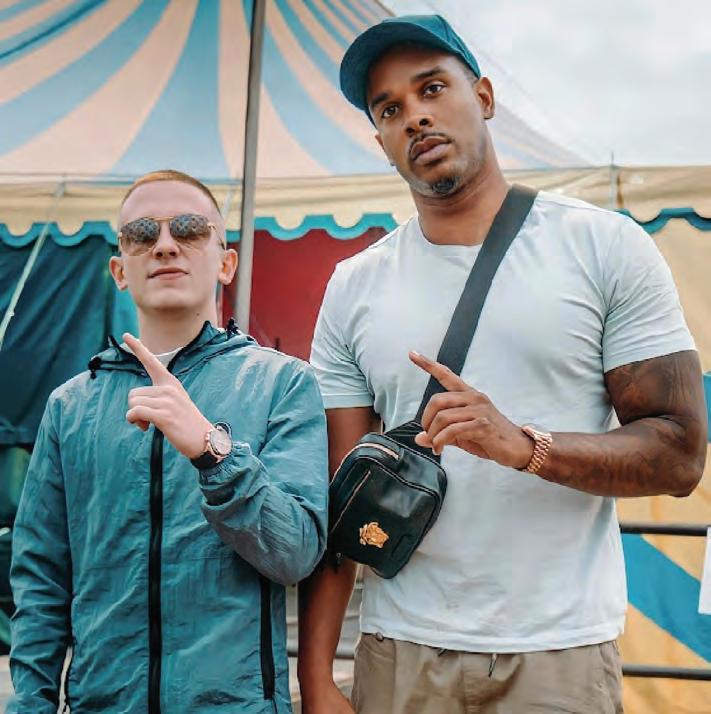
Everybody wanted to sign him, but from the beginning, he was like, Carl, I’m with you.
What is it about Colombia that made you want to join the team?
Columbia’s the best label at Sony, headed by one of the best businessmen in the industry, Ferdy.
They’ve got the best artists – Harry Styles, Adele, Calvin Harris; they’re about careers. They’re not about singles or tracks, they’re about building artists up properly.
What makes a good A&R person today, what are the most important skills?
A good A&R person must know exactly what’s going on on social media, that’s so important right now. And, of course, you must know a quality song. Not necessarily what you like, you’ve got to know what the kids like.
How do you go about discovering talent?
Connections are important, people are important, but it’s all about social media right now. I can spend the whole day on my phone today and I will find someone worth following up. That’s the game, really.
And is TikTok the main place to look? It is now, yeah, but I look everywhere. I look on YouTube, SoundCloud,
everywhere. You can’t just look on TikTok, because everyone’s seeing that. With the labels, if something’s popping on TikTok, everyone’s seen it and there’s a bidding war. That’s not A&R, is it?
I started managing ArrDee when he had 6,000 followers, he’s now got 1.1 million. I must know something! [laughs].
When you’ve secured a signing, what’s the most important thing you can do for an artist after that? What I tell young artists is, okay, you’ve got a deal, but this is where the work starts. I also always tell them: don’t buy too much stuff, and try and stay away from smoking weed. I’m being serious!
I’ve managed and worked with a lot of young artists, I’ve seen good times and bad times. I’ve definitely seen things go wrong too many times. And it’s always to do with weed, girls, or their friends telling them mad things. Ignore all that.
How hard is it to get that message across?
It’s tough. I was 28 when I signed my first deal, and I made some of those mistakes. Imagine being 18, with double the money – two hundred, three hundred grand. What you gonna do, go home and read a book? You’re not, are you? [laughs].
Have you made any signings recently that you can tell us about, who maybe haven’t even released any music or been announced yet?
I haven’t signed anything since Hazey, because nothing stands out. There’s a lot of good rappers out there, a lot of good singers out there, but it needs more than that, you need to stand out, not just be saying the same old stuff, gang, gang, gang. I get it, but it gets boring.
Look at 6ix9ine. What made 6ix9ine stand out? It’s because he was a crazy guy with coloured hair. You couldn’t see him without wanting to know, who is this guy?
30
Samuel with ArrDee
You gotta make people press share. If they’re not pressing share and they’re not talking about you, you’re fucked.
I’m not signing anyone just for the sake of it. I’ve got to see more than just a good artist – and I’ve got to see someone who’s as hungry for it as I am.
What one thing would you change about the business right now, which issue do you think isn’t being addressed?
Too much TikTok, that’s the issue. I love TikTok, they support us a lot, but everything can’t be based on TikTok. It’s making people laaazy. It’s more or less all about having a meme and going viral. Great, but what’s next?
Have you had any mentors in your career to date?
To be honest with you, the only guidance
I’ve had so far, that has been really, really useful, has been from Ferdy. He’s the one who showed [me] how to make career artists, how to think about 10 and 15 years, not about two or three years.
What are your ambitions?
I’m going to have the biggest record label and management company in the world, with Sony, in the space of four to five years. That’s it. Remember I said this.
And within that I will have inbuilt counselling services for all my artists. I think all artists under the age of 25 in the industry today need some sort of counselling.
What would your advice be to a young exec just starting out?
And Colin Basta, to be fair, because I’ve seen him go from managing artists, to being the main man at Universal’s distribution company, plus he’s got another thing happening real soon. I’d like his career! [laughs].

If you ain’t got heart, don’t even think about it. This industry is cut-throat and you have to be fully in it. You have to be as in it and as committed as the best artists.
If you’re half-hearted, if you just want to make a bit of money and bounce, you’ll get nowhere. Make sure you come ready, and be tough, because this industry is not a game. n
31 INTERVIEW
“I love TikTok, but everything can’t be based on TikTok; it’s making people lazy.”
Hazey
KEY SONGS IN THE LIFE OF…
Mike McCormack
The Universal Music Publishing UK MD steps up to choose the five tracks that tell his story, with contributions from angry punk rockers to world-dominating singer-songwriters...
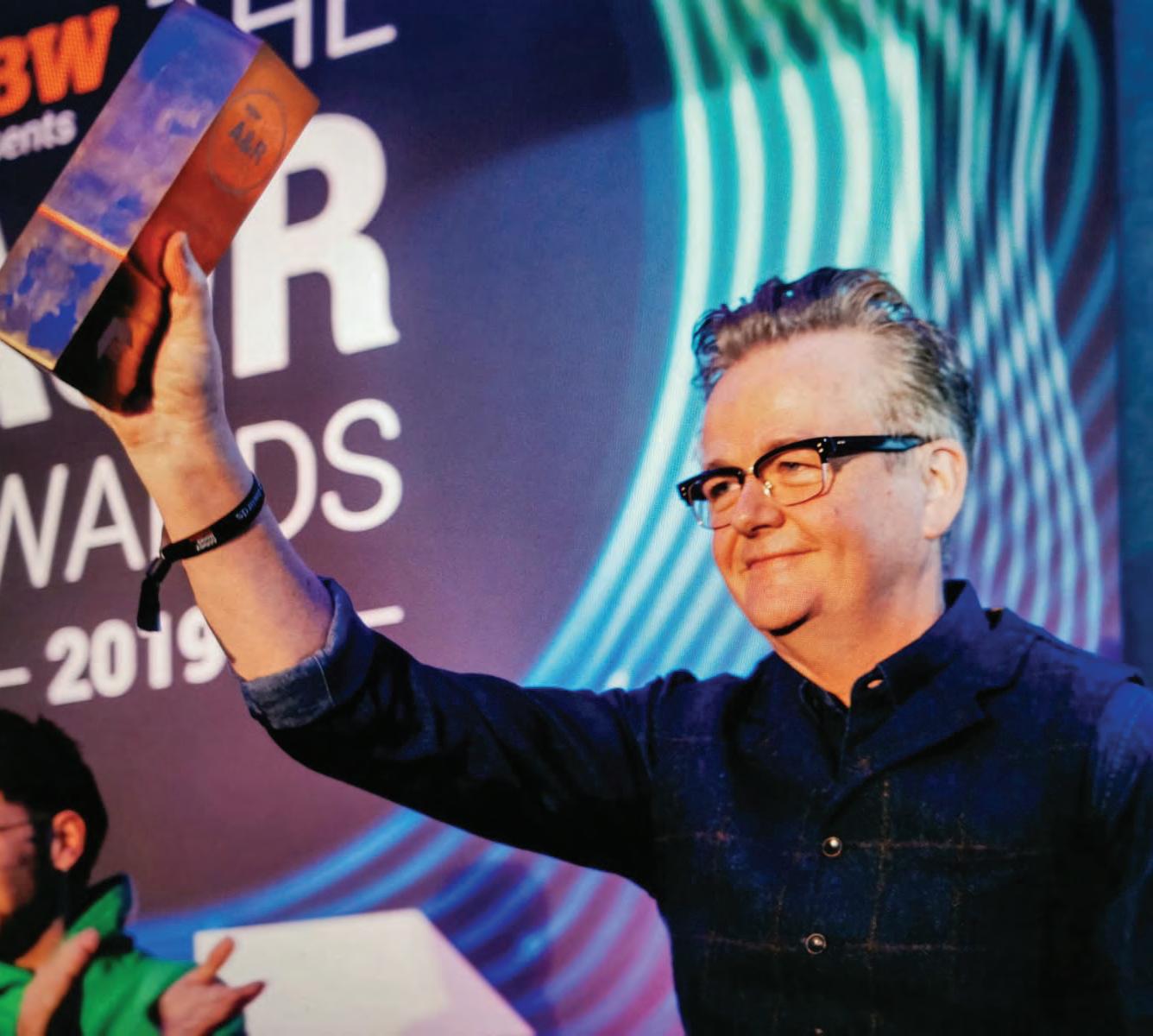
32
When Mike McCormack won The Sir George Martin Award at the 2019 A&R Awards, in his acceptance speech he said: “Music is in my DNA. It’s so much my life force that I just can’t really think about anything else.”
Which is a good job. Because when MBUK asks him to select the five tracks that have meant the most to him throughout his life and career, he’s actually on holiday.
He should, perhaps, be thinking of anything but music. Instead, of course, as always, he’s thinking of almost nothing else – and is happy to have a framework around which, for one sun-baked afternoon at least, he can structure his choices and memories.
McCormack has been with UMPG since 1999. He took a few years off (in sports management) a decade or so ago and returned, as UK MD, in 2016. His mission from (his second) day one was clear: “I felt we’d sort of drifted a little bit, A&R-wise, and I wanted to get back on track.”
He continues: “I think [UMPG] always put emphasis on great A&R from the very beginning. And I think the signings over the last 20 years reflect that. We’ve been
there or thereabouts on so many huge British artists during that time and that was something I wanted to make sure was maintained when I came back.
“And if you look at the last six years I think you can see that, from artists like Harry Styles and Kid Harpoon – who are now on their third album together – plus
important challenge facing all sectors of the UK music business is “how we keep British artists at the top of the game on the global stage”. He asks – himself and everyone else: “Are the artists, writers, producers that we’re developing world-class? Are they good enough to follow in the footsteps of Ed Sheeran, Dua Lipa, Harry Styles etc. and keep us right at the forefront of music, particularly in terms of innovation, worldwide?
Dua Lipa, Steve Mac, Meduza, Joel Corry, Headie One, Burna Boy, Little Simz, Glass Animals, Girl in Red, Bicep, Rex OC, Tom Walker, Griff, Easy Life, the list goes on
“What’s interesting – and encouraging – is that I think they’re all important artists at different stages of their career, enjoying different levels of success in the UK and globally.”
McCormack also, however, has a note of caution, stating that the single most
“Lockdown kind of killed or slowed down the trajectory of a whole load of new artists. There’s been a bit of a reset, everyone’s starting on a sort of level playing field. It’s tough, and it’s going to require a lot of courage and hard work from artists, from labels and from us to get back on top.”
McCormack remains, however, a glass (at least) half full kind of exec, and preludes his choices by explaining not just what the following five tracks mean, but what music and the music industry has meant to him throughout his life.

“Without wishing to sound grandiose, I grew up a tough Irish Catholic, but I was never a big one for the religion side of it. Music kind of filled that gap, spiritually.
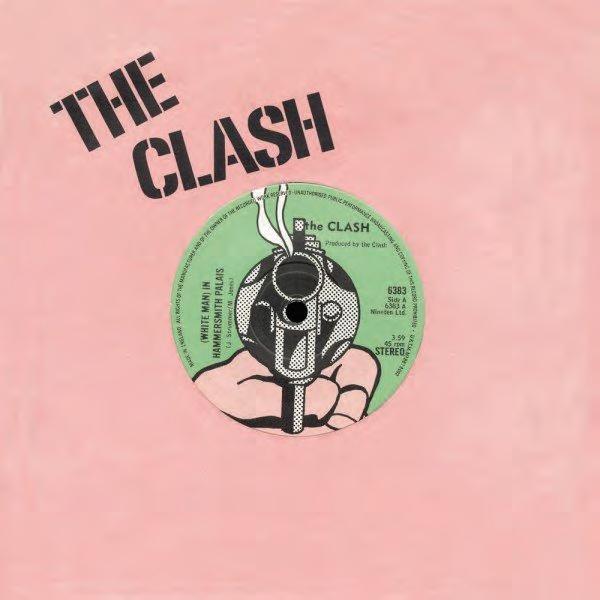
PLAYLIST 33 1. 2.
“Music was my church and my therapy, and that hasn’t really changed.”
Music was my church and my therapy –and that hasn’t really changed.
“My entire life has revolved around music, and especially around trying to find new music. I tried to get away from it, tried to go and do something else, but I was drawn back in, not for money, but because I’d fallen back in love with music. And I hoped I still had something to offer, could maybe make a little bit of difference for some new artists, that’s what it’s all about for me...”
1. The Clash, (White Man) In Hammersmith Palais (1978)
There are too many artists and songs to list that first made me a music obsessive. But towards the top would certainly be Bowie (particularly Ziggy Stardust era), The Who, Otis Redding, Dr Feelgood, Bob Marley, Joy Division, Al Green, Jimi Hendrix, Velvet Underground, Ian Dury, The Cure, Bauhaus, The Jam and The Damned.
To start with though, I’ve picked this lesser-known Clash song, because it really felt like the anthem for my generation of the late seventies – and also showed what a legendary songwriting team Joe Strummer and Mick Jones (ably assisted by Paul Simonon and Topper Headon) would become with the London Calling, Sandinista and Combat Rock albums.
I’ve since had the rare honour to transform from fan to publisher, looking after their entire catalogue for last 20 years with Universal.
The Clash were the band of my generation. And when – open brackets – White Man – close brackets – In Hammersmith Palais came out, the stars aligned for me as a music fan.
A lot of the other bands, bands that I loved, like The Pistols, The Stranglers, The Buzzcocks, and The Damned in particular, they were so nihilistic and inward-looking. Whereas The Clash had real ambition.
I think they were the world-class rock band for my generation. I loved Janie Jones, I loved White Riot, but it was all anger, and when they wrote White Man, it was one of the first signs of how brilliant they were going to be.
2. Stevie Wonder, Heaven Is 10 Zillion Light Years Away (1974)
I moved on from my ‘angry young man’ phase to become a huge soul/R&B fan. I was sound engineer for lots of the US RnB groups that toured small London clubs in late seventies/early eighties, including Martha Reeves and The Vandellas, The Drifters, The Chi-Lites, The Stylistics and my personal favourite, Jr Walker and the All Stars.
Once again it’s incredibly difficult to pick just one artist, never mind one song. As well as those acts I was lucky enough to work with, Donny Hathaway, Marvin Gaye, The Temptations, Aretha, Earth Wind & Fire, Michael Jackson, Bill Withers, Smokey Robinson, Curtis Mayfield and The Isley Brothers. They’re all in the mix.
I finally chose Stevie, as he really is just the best of the best. I think if you asked any good A&R person who would be the greatest single signing in history, Stevie would be right up there; he’s the consummate artist and I couldn’t think of doing a top five without him.
And what blows your mind is that he did everything: wrote everything, performed everything, produced everything; incredible. Again, I’ve picked a lesserknown Stevie song. Heaven is 10 Zillion Light Years Away, from Fulfillingness’ First Finale, one of his LPs in the ‘classic period’ between 1970-79. It was his 17th (yes, 17th!) album – and still one before Songs in the Key of Life. Mind-boggling genius. This song always fills my heart with joy.
3. The Killers, Mr Brightside (2003)
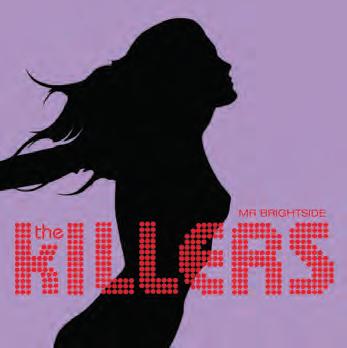
If it’s about key songs (rather than albums) in my career, then it’s hard to get past Mr Brightside, because it’s a song that remains just so ubiquitous in the UK, especially considering it was released in 2004.
I don’t think it’s dropped out of the top UK singles 200 in the last decade [it’s spent 327 weeks in the Top 100 since its release, according to the Official Charts Company].

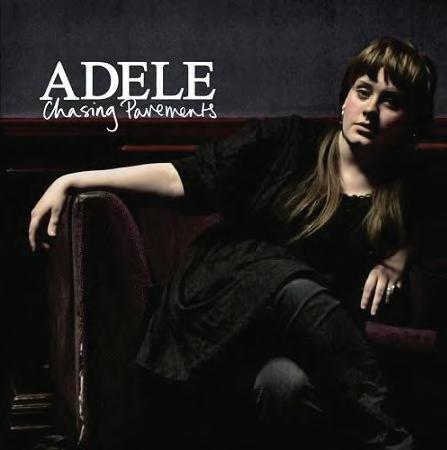
34
4. 3. 5.
We had an A&R guy, Steven Jones, who was working out his notice in the US, scouting for talent, and he found an indie band in Las Vegas signed to a (then) small independent label, Lizard King, that Martin Heath owned.
Nothing really added up on paper, but I just loved the songs, including one called Mr Brightside, which was on their original demos. The rest is history!
Listen, if we could look in the crystal ball and see who’s going to be a career artist, this job would be easy. The truth is artists create their own longevity, by writing brilliant songs and being amazing live.
In The Killers’ case, back then, honestly, nothing really added up. If you were doing a box-ticking exercise, you wouldn’t be signing an alt rock band from Las Vegas. Thank goodness we weren’t box-ticking.
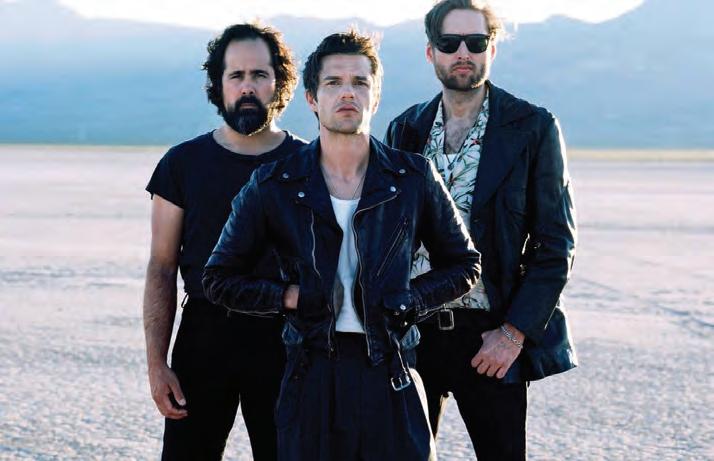
4. Adele, Chasing Pavements (2008)
It would have been late 2006 that Dougie Bruce and Andy Thompson walked into my office incredibly excited about a 17-yearold singer-songwriter called Adele Adkins they had found out about via another of our artists, Jack Penate.
She had so few songs, four if I remember correctly, that she had written 100% on her own. Hometown Glory and Daydreamer were definitely there.
We saw her live, she blew us away and we did a deal with Jonny Dickins and her lawyer, Paul Spraggon.
She had never co-written a song before and we put her together with one of our other new writers at the time, Eg White, who was just having a big hit with Leave Right Now for Will Young. I spoke to Eg almost every day of that week-long session and he said the first couple were difficult; Adele just wasn’t used to the cowriting process.
But then on the third day he called and said, ‘I think we’ve got something….it’s a weird title, but it’s really promising’.
A cassette of Chasing Pavements landed
on our desk the week after and it just seemed like there had been a quantum leap in Adele’s songwriting.
I think she discovered in that session that collaboration adds an extra dimension to her writing, and she’s never looked back since.
Sometimes it’s a bit of a jigsaw puzzle. If you can just help someone find the piece that suddenly makes it all work, then you’ve cracked the code – and they’re on the way to becoming the artist they always wanted to be.
Amy Winehouse, Blur… some that I worked with, others that I frustratingly admired from afar!
In the end I’ve picked Shape of You, as Steve Mac was one of the first big signings I made when I returned to Universal as MD in 2016.
I wish I could say I was involved in its creation, but the truth is I went to meet Steve just because I’d admired him for years as a writer/producer and a true gentleman.
David Howells, his manager, arranged the meet. Steve had only just finished this incredible first session with Ed, where him, Ed and Johnny [McDaid] had written about four monster songs, including Shape of You.
5. Ed Sheeran, Shape of You (2017)
It’s so hard to just pick five career/lifedefining songs when you’ve been working in the industry as long as I have.
I’ve missed out Terence Trent D’Arby, Stereo MCs, Take That, REM, Nirvana, The Verve, Prodigy, NWA, Spice Girls,
There’s virtually no other meeting I can recollect in my career where I heard so many brilliant songs that became future hits, one after the other. Ed [Howard], Ben [Cook] and [manager] Stuart Camp had decided that Shape of You was going to be the first single and thankfully [UMPG CEO] Jody Gerson was 100% supportive on doing what was a tough deal.
Sometimes in A&R the stars just align for you and this was one of those moments. It’s gone on to become one of the biggest hits of all time – that’s a genre I’d like to work more in! n
35 PLAYLIST
“It’s gone on to be one of the biggest hits of all time – that’s a genre I’d like to work more in!”
The Killers
Photo: ANTON CORBIJN
BETTER NEVER THAN LATER: THE TV MUSIC SHOW THAT CAN’T GO ON FOR ANOTHER 30 YEARS
Later… With Jools Holland is turning 30. Congratulations on making it this far. But, for the love of everything that is holy, it cannot be allowed to keep going on as it is.
Music on television feels like an endangered species. What remains is far from evolutionarily robust; it is either generally awful or desperately apologetic, slapped on at the end of a chat show. As such, no one willingly wishes to point their blunderbuss at the last big beast of music TV.
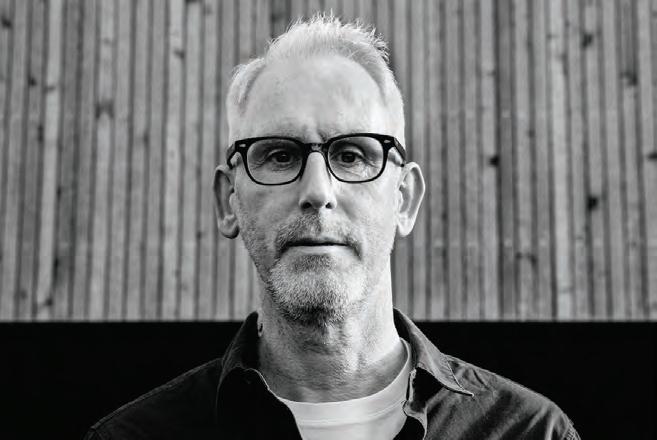
Nobility, however, absconded a long time ago and Later… With Jools Holland now looks less alive and more like some limp leonine disaster that appears near the top of one of those terrible taxidermy lists, its mane all matted, the stuffing bursting out and the mismatched glass eyes bulging and boggling in silent despair.
LWJH (I’m not going to keep typing out its full title with its irritating ellipses) needs to do one of two things: it needs to adapt; or it needs to be put out of its misery.
We are currently in series 61 (sixty-one) of the show. If it doesn’t change now, it will desiccate. Where once stood a proud coconut will soon lie some coconut dust. (I’m not sure this analogy completely works, but whatever.)
The fundamental problem with the show is that its weakest link is also the name in its title. The JH of LWJH is not the headline draw the show steadfastly believes he is. To gently retire him is, as far as the show is concerned, unthinkable. “How can he retire if we named a show after him? The brand will be compromised.”
But he is not the fuel injection of the show; he is the bag of sugar in the petrol tank.
It is time for some chronological contextualisation. LWJH has been running since 1992. Thirty years before that, The Beatles were still plugging away in The Cavern. Imagine watching a music show in 1992 that actually began in 1962 and where the host was still the pianist from Dickie Valentine’s band.
All is not lost. The show can be saved, but it has to make the bold decision to gently sunset its host.
Or not-so-gently sunset him. LWJH has been in a nosedive for years. Either hit the ejector seat now or go up in a fireball as you crash into Mount Irrelevance. That’s your choice.
Maybe the interim solution is bringing in a co-host. A different voice, a different angle, a different perspective.
Why The Tube worked so brilliantly at its peak in the 1980s was in a large part because of the dynamic spark between the hosts, notably Jools Holland and Paula Yates. He has shared the screen before, he can do it again.
A bit like when a CEO is slowly sequestered from the boardroom, there is a co-CEO or an understudy brought in to ensure the transition from The Old Way to The New Way is smooth. You take the best of The Old Way and carry it over into The New Way. History and legacy are important to hold on to and to respect, but they should never be allowed to slowly suck the oxygen from the room.
Eamonn Forde accompanies the boogie-woogie with some unbridled honesty...
“Later... With Jools Holland needs to adapt, or it needs to be put out of its misery.”
36
Where LWJH – or, to give it a whole new name, Later – can really soar is to have a rotating cast of presenters. Maybe they host one series each (the most pragmatic response) or for every single show they have a brand new guest host (the most complicated but, arguably, the most potentially exciting).
The guest hosts will all have to be musicians. This is important. Do not bring in Stephen Fry or Gary Lineker or Huw Edwards or Jo Whiley or Laura Kuenssberg or Amol Rajan or Sue Barker or whoever is the ubiquitous host du jour on the BBC’s books.
The format, by the way, roughly stays the same. We have five different acts on each show. One may or may not be the host, it’s their call. They all play a couple of songs each. The host has a little chat with them. There might be some collaborations. The studio would crackle with excitement rather than yawn itself inside out.
By bringing in a musician, you bring in the right level of empathy and insight – and you bring in someone with different tastes and different connections. They can also perform so it’s getting two things for one fee.
One week it’s Stormzy programming the show, the next it’s Self Esteem, then it’s Matt Healy, then it’s Chris Martin, then it’s Harry Styles, then it’s Dave, then it’s Adele, then it’s Billie Eilish, then it’s The Weeknd, then it’s Bad Bunny, then it’s Beyoncé, then it’s ALL OF ABBA, then it’s Blackpink, then it’s Iron Maiden, then it’s Little Simz, then it’s Bob Dylan, then it’s Taylor Swift, then it’s Grace Jones, then it’s all of Wu-Tang Clan (or as many as they can get), then it’s Lang Lang, then it’s Ralf Hütter, then it’s PinkPantheress, then it’s J Balvin, then it’s Paul McActualCartney. And so on.
(While we are at it, we are killing off the Hootenanny show, so Noddy Holder can host a Christmas special instead.)
It will be like a Meltdown festival every single time. The dynamic of the show would change week by week. Think of all the names I’ve suggested here. Now think of their WhatsApp groups. Think of all the huge stars they could get on the show. Think of the new acts they are most excited about perhaps getting their first bit of BBC coverage. Think of the clips being shared online.
Think about a show that was sleepwalking into the grave finally being vivified.
The other win here is that all “jamming” is
immediately outlawed. Everyone signs a contract before they appear where they promise not to “jam”. They can finally relax knowing they do not have to grit their teeth as both boogie and woogie emanate from the grand piano on the main floor that has stood like a dark threat for three decades, a black hole into which all happiness has been sucked.
As an aside, in the (actually quite good) Alan Partridge: Alpha Papa film in 2013, the North Norfolk Digital radio station has been bought by a multinational corporation. His survival instinct kicking in, Alan takes over an internal meeting with his plan to save the station. In that meeting, Alan accidentally finds out that it is either him or Pat Farrell, another of the station’s DJs, for the chop.
He distills his salvage strategy down to three words which he writes on a flip-board in the corner – “JUST SACK PAT”.
(Pat then finds out, gets a shotgun and holds the station staff hostage. But we don’t want things to escalate like that.)
Anyway, that is my plan to save not just LWJH (simply to be known as Later, or Later2.0, or possibly #Later2) but also, through a complex domino effect that raises quality across the board, absolutely all music on British television.
Does anyone have any questions?
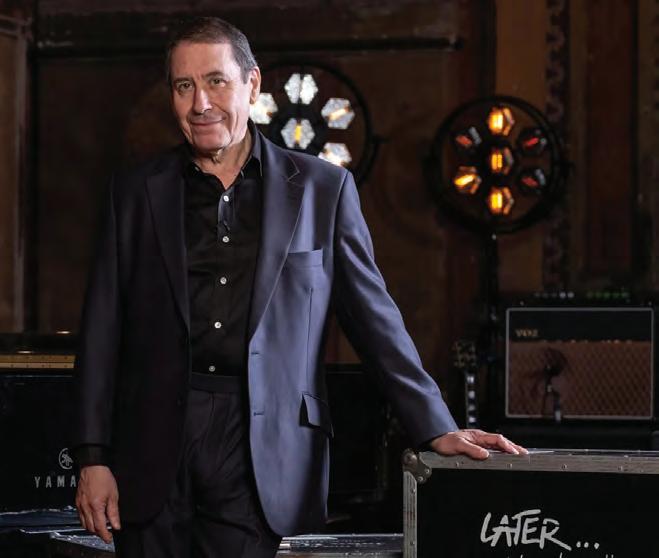
COMMENT 37
Guests on Later... With Jools Holland in its 30th year will include The 1975, Self Esteem, Loyle Carner, Burna Boy and Marcus Mumford
“Either hit the ejector seat now or go up in a fireball as you crash into Mount Irrelevance. That’s your choice.”
Photo: BBC

MBUK is proud to once again team up with the Did Ya Know? podcast. This time DYK? co-founder Adrian Sykes talks to Warner Chappell’s Head of A&R Amber Davis about her career to date, her inspirations and her future ambitions…
Who knew jiffy bags could be so inspiring, franking machines so alluring? They were certainly part of the post-based package that first convinced Amber Davis that the music industry was for her.
Of course, across the decades, the mail room has famously (perhaps mythically) been the starting place for many an exec’s career – it was the bottom rung on the ladder to success for David Geffen and Simon Cowell, amongst others. No wonder Davis couldn’t resist.
She says: “I did work experience at EMI when I was about 14, and it was the best week of my life – I didn’t realise that stuffing envelopes and doing mailouts could be so much fun. I was sending out Jamelia CDs, there was a big Beverly Knight campaign, I loved it.
“I think it was just the sort of passion and care I saw there. You know, people were scooting around the office, playing loud music. Just seeing how everything happened really fascinated me.
“I’d always loved music when I was younger, I remember getting my Now cassettes, going through the track-listing and picking out the songs I really loved, but I didn’t realise you could have a career and get paid for working in music.”
After completing her A-levels, Davis was offered an entry-level A&R position and the next big step – opening post rather than sending it – seemed tantalisingly close. Until it wasn’t.
She remembers: “I didn’t have a huge desire to go to university, if I’m honest.
“Also, the more work experience I did in music, the more I realised that having a degree wasn’t essential to make it in this business.
“But when I was offered the job, my mother quickly told me that I wasn’t allowed to take it. She wanted her degree and that photo on the mantelpiece. ‘I don’t care what you study where you go, but you’re not going to do this, what do you call it, Amber, scouting? What?!’ That just wasn’t an option.
“So I went to Westminster University and did the business degree there, which was great, because Keith Harris was a lecturer.”
Can you talk a bit about joining EMI and what that meant to you?
It meant everything. There were so many different people there who were just amazing and really helpful when I was making the transition from an assistant to a junior song plugger – Guy Moot, Fran Malyan, Sarah Lockhart...
It was such an exciting time. Guy had just signed Amy Winehouse and So Solid Crew. These were the people coming in and out of the office back then.
Tim [Blacksmith] and Danny [D] would come in and they would always be so friendly. Back then, when you’re just starting out, you’re like, oh my goodness, these amazing people have got time for me.
On completing her degree, Davis got a job in the marketing department at BMG. “I naively thought I’d be designing album covers, but it was more to do with raising purchase orders” – even less rock n roll than mailouts.
Thankfully, she was very quickly offered a job as an assistant at EMI Music Publishing. So she switched lanes, joining a company she would stay with for a decade and a sector she is still at the heart of, as Head of A&R at Warner Chappell UK, more than 18 years later…
I remember thinking there’s no way I can make the jump from assistant to song plugger. Next thing you know, it happened and you’re working with these amazing frontline writers who have written these incredible songs. You’ve been looking at their splits and filing their papers away, and then suddenly you’re actually able to work with them.
Let’s talk about the role of the song plugger and what that means…
That particular role has definitely evolved and become harder over time. But back then, when I was in that role, I guess 15 years ago, there were groups like S Club 7, Spice Girls, 5ive, and you could actually pitch songs [to their label A&Rs]; you’d send them a little CD, and it would say, ‘Songs for…’ whichever artist, you know, ‘Songs for Kylie Minogue’.
39
‘I THINK IT’S GREAT THAT SO MANY CHANGES ARE HAPPENING – BUT IT NEEDS TO BE JUST HOW THINGS ARE, NOT A RESPONSE’
“It was such an exciting time, Guy Moot had just signed Amy Winehouse and So Solid Crew.”
INTERVIEW
You would send your five songs from the songwriters you’ve got that you think would be great. They would actually get played and listened to and people would [accept] songs.

Now, that role is harder in the sense that so much talent out there already has their vision of who they want to work with.
Then, you could just put people together in some amazing rooms, and what would come out of them were hits that could then become huge off the back of you setting up two people working together.
Also, in publishing, the nice thing is, as a song plugger or an A&R, your job is also to make sure you know the labels, so that you can get your writers across their projects. It means the role isn’t insular.
What were some of those huge hits that you helped put together?
There was the producer Two Inch Punch,
Tinie Tempah, Girls Aloud, they all had some really great times when I was there.
I was quite into the funky house scene there as well, things like T2, Heartbroken, different one-off singles, like Do You Mind by Kyla and Paleface, which ended up getting sampled by Drake
Guy Moot has been there from the get-go. He was always extremely positive about the business.
He made you see that it really was doable. It wasn’t necessarily about the degree, it wasn’t about your age or your experience; if you’ve got an ear for something, you can do it.
He gave me a chance and promoted me from an assistant to an A&R role; that was very much him taking a chance on my gut and instinct.
on One Dance [see Music Business UK’s interview with Carl Samuel on page 28 for more on that topic].
Were there any influential figures at that stage of your career and what advice did they offer you?
As a woman of colour making your way in the business, how much, when you look back, do you think the business reflected you?
Definitely now, it’s so much more representational, which is great. But you know, back then, Jackie Davidson and Jade Richardson were amazing, but there weren’t as many women of colour as there are now.
40
Davis says Warner Chappell UK is excited about the potential of new signing, The Snuts
“There are definitely times when you feel quite alone as a woman in this industry.”
What was your next step up from song plugger?
I became an A&R manager, I was signing more things, and I had a dalliance in the producer management world as well.
So what made you decide on producer management as a calling for you?
I think as a publisher, you can be so involved in a producer’s career, you’re almost running their diary at points, so much so that it sometimes seems like you’re managing them as well; that sort of comes hand in hand.
Which parts of the business do you think have changed most significantly during your time?
I feel that artists are just doing it on their own nowadays, you know, they can put music up themselves, they can become a success overnight on TikTok; they’re no longer looking to anybody to help make them a star.
They have the tools at their own disposal to be able to break themselves, which is great, but also scary.
Does that make your job easier or more difficult?
I think it makes it more difficult, actually, because I think people are more looking to you like, What can you do to help me if I can put it out there myself? But I still think there is very much a place for what we all do, I think it only adds value to what somebody is doing on their own.
How do you think being a woman, and a woman of colour, has played out in the industry? Has it ever felt like you’ve been put at a disadvantage? It’s hard, because I do feel that as a woman in the music industry, and a woman of colour in the music industry, it has been men that have promoted me.
So, I can’t say that I feel like I’ve not had the opportunities or the career changes that I’ve wanted. I feel like I’ve been quite fortunate in that respect. But yeah, there are definitely times when you feel quite alone as a woman in the music industry.
Can you talk a bit more about that feeling of being alone?
You’re never properly alone, there’s always somebody you can call on, but I think sometimes it can be quite overwhelming, especially when you don’t know necessarily if you are doing things right or wrong.
I found that I was sometimes quite quick to forget that I was maybe the only female in the room, and the only female of colour in the room.
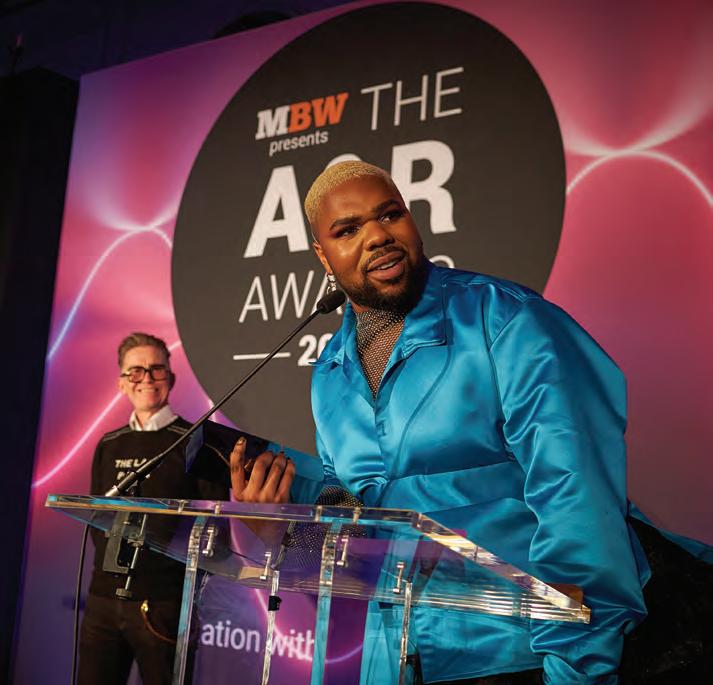
Sometimes you’re not consciously aware of it the whole time, but yeah, I think just sometimes you wonder if you’re doing well enough, or maybe your insecurities can get on top of you.
When you are aware of being perhaps the only female of colour in a meeting, do you think that may temper the responses you give? Do you second guess yourself? Or maybe hold back because of that? Yeah, subconsciously, I think I most probably do. But, as I say, I’ve been in
the industry for so long now, and I think where the industry is at now versus then, it’s just completely different spaces.
I guess it was also harder back then because I was more junior when there was such a lack of diversity in the room.
How do you think the business has changed with regard to opportunities for career advancement for people of colour? It’s amazing. I think John Platt’s incredible. He’s a chairman, he’s black and he’s brilliant. My Managing Director is a woman of colour, Shani Gonzalez; [seeing] a young woman of colour running a company in the UK, that’s amazing, and really inspiring.
Darcus [Beese], Ryan Press, Glyn [Aikins, co-founder of Since ‘93], yourself, there are so many people now that you can feel inspired and motivated by. What the twins [Alec and Alex Boateng] are doing at 0207 Def Jam, that’s amazing, that’s a huge change.
41 INTERVIEW
Davis has worked with modern UK songwriting royalty such as Dave, Stormzy, Central Cee, and the A&R Award-winning MNEK (pictured)
There seems to have been a faster rate of change in the last two years, a greater awareness of diversity and inclusion, money being pumped into various programmes, what has that looked like to you and what would you like it to be?
I’d like it to be a way of life, a consistent thing that isn’t a knee-jerk reaction to something, a permanent fixture.
I think it’s great that so many changes are happening, but it needs to be just how things are, not a response.
Do you think that’s a possibility?
It feels like things are getting better, so yes, I do feel hopeful. I don’t think people can run away from it anymore, you know. Change was needed and I feel it’s slowly beginning to happen.
Is there a coalition of women that you turn to, role models and that you interact with in the business? Absolutely. Jo Charrington is amazing. Grace Ladoja is fantastic, what she’s doing with Skepta, Radha [Medar] with Mabel, Sukhraj Johal [General Manager, Warner Records], Lucy Francis [17Days] Char Grant [0207 Def Jam], Komali [Scott-Jones, Parlophone], Fay Hoyte [EMI], Briony [Turner, Atlantic] there are just so many amazing females out there who are absolutely killing it. It’s really inspiring.
And not just killing it, but also trying to make a change, you know. Nadia Khan, Lethal Bizzle’s manager, what she’s doing, Jackie Davidson, what she’s doing, Sheniece [Charway] at YouTube, the knock-on effect is fantastic. It’s just a breath of fresh air at the moment, for all the exciting women out there, of all ages and races. It feels like an exciting time.
Do you consider yourself to be a role model in the business?
I don’t. I just try and get on with what I’m doing [laughs]. I mean, I guess now I’ve been doing it for so long, maybe I’d like to hope that I can be motivating for someone trying to get into the business, and show that it is possible to get where I am now from doing work experience as a teenager.
Tell us about your current role at Warner Chappell, Head of A&R, what does that involve?

I’m really enjoying it. I’ve been here nearly eight years, but I’ve been Head of A&R for two-and-a-bit years. The role entails making sure that the department’s running well, that we’re signing the right things,
MNEK, we’ve got some brilliant writers over here.
What does the future hold for Warner Chappell?
It’s really exciting. I think with Shani running it, her global knowledge and being from the US, I think how much we can really help artists internationally, as well as within the UK, is great. And everyone on the team is amazing; they’re all exceptional within their fields.
Time for some quick-fire questions: what are you remaining ambitions?
To have more hits
Do you have any regrets?
Yes, there are certain signings I really regret not doing, or pushing harder for.
Who has provided you with inspiration?
My family – my mother and my sister.
hopefully signing some hits and making sure that everyone else, all the other A&R managers are getting things signed that they want, helping them get the deals over the line.
Can you tell us about some of the signings that you and the team have made?
We’ve just signed The Snuts, which we’re really excited about, they’ve recently had a number one album. We’ve just signed Toddla T. We’ve been signing some really exciting stuff. Plus we’ve got Dave, J Hus, Stormzy, Steel Banglez and Swifta Beater, it’s an exciting scene. We’ve signed
What’s been the proudest moment in your career?
Winning my first Ivor Novello.
And what was that for?
Tinie Tempah, Pass Out [2010].
Big tune. If you were talking to the young Amber Davis about to take her steps in the business, what would you say to her?
Keep trying, because it’s worth it; it will pay off. I think there are times when the long hours make you wonder if it’s worth it. It is, so just keep at it and remember, anybody you meet, you just never know how your paths might cross again. n
42
This interview is taken from a brilliant podcast series, Did Ya Know?, which tells the often unheard stories of key figures in the British music industry, focusing initially on pioneering executives of colour. The team behind the pod includes Stellar Songs co-founder Danny D and Decisive Management co-founder Adrian Sykes. MBUK and our sister brand, Music Business Worldwide, are proud to be partners and supporters of Did Ya Know? You can listen to it wherever you find your favourite podcasts.
“Remember, anyone you meet, you just never know how your paths might cross again.”
Changing the narrative

There is a story behind all of us. There is a reason why we are who we are… Did Ya Know… The Pioneers, The Podcast. The stories of the executives of colour that have led the way. Available from wherever you get your podcasts. DID YA KNOW...
The Web3 community’s continued interest in the music industry shows little sign of waning, and the love affair is starting to feel mutual.
Whether it’s Crypto.com signing a deal with Fantagio, MTV creating a virtual space in Roblox as part of a whole new category of awards, or the new Muse album, Will of the People, being released as a chart eligible NFT, it feels like we still only have our toe in the water of the vast pool of potential use cases for blockchain, the metaverse, cryptocurrency and decentralised organisations.
A few years ago, we were learning about Web3 and how it could influence the future of the music industry. We now know better the answer to that question. What everyone now wants to know –particularly those who have been spending huge capital on music rights acquisitions – is how big will it get?
Some commentators disagree about what Web3 even is. Elon Musk thinks it’s ‘more marketing than reality’, while Jack Dorsey tweeted that the space will ultimately be owned by VCs who don’t favour new business models.
Those who view Web3 dogmatically believe that these next wave of online technologies have the potential to heavily disrupt and disempower ‘big tech’ companies, giving control back to users and the Internet community. This is interesting not least because the traditional music industry has a love/ hate relationship with big tech. Some would say that the positive vibes derive from the vast sums of money injected into the industry, while the root of the negativity arguably derives from the lack of rights holder control of the distribution network. Does Web3 amplify or change those sentiments?
So, what at do we mean by Web3?
The era of ‘Web1’ consisted of a network of static pages where the vast majority of users were consumers, not creators.
‘Web2’, the version of the web we are familiar

with today, is largely based around the idea of ‘the web as a platform’ and heavily relies on user-created content (think YouTube, Meta and TikTok). Large swathes of Internet properties are controlled by large, international, ‘centralised’ entities; Web3 has the potential to be decentralised.
This means that ownership of property, environments, communities and even currencies can be distributed amongst builders and users. There are a number of other core principles that have guided the creation of Web3. For example, many applications are permissionless, with everyone having equal access to participate and no one getting excluded. Web3 can also be ‘trustless’, meaning that it operates using incentives and economic mechanisms rather than relying on ‘trusted’ third parties. Perhaps most potently, it has a native payment structure – cryptocurrency can be used for spending and sending money online rather than relying on the outdated infrastructure of banks and payment processors.
The core innovation that underpins Web3 is blockchain. A blockchain is stored collectively and updated by all participants (each a ‘node’) on the network. Using cryptography, each data block of transactions is linked, forming a chain of records, making them secure and difficult to change.
This technology also facilitates smart contracts. These are not contracts as lawyers typically describe them; rather, they are programs stored on a blockchain that run when predetermined conditions are met. In other words, if X occurs, then Y happens. Blockchains underpin cryptocurrencies. They also underpin NFTs. The ownership of an NFT is recorded on a blockchain, and subsequent owners can be recorded each time the unique digital asset is bought and sold.
Web3 and the music industry
HODL THE LINE: THE FUTURE OF WEB3 IN THE MUSIC INDUSTRY
The potential of these technologies is vast –transferring control from centralised entities to
Gregor Pryor, Head of Entertainment & Media at law firm Reed Smith, explores the future of Web3 investment in the music industry using insights from the second edition of his firm’s legal whitepaper, the Reed Smith Guide to the Metaverse...
“Some believe Web3 creates more sovereignty for artists.”
44
builders and users can act as a democratising influence on content consumption.
In the music industry, this can manifest in various ways. Some believe that it potentially creates more sovereignty for artists and greater opportunities for fan-to-artist engagement. Rather than relying on intermediaries, such as distributors, managers, digital streaming service providers and accountants or lawyers, artists can interact and transact directly with their fans. Dropping NFT bundles of content with exclusive recordings, digital artwork and lifetime concert passes can be done with the click of a button.
Others believe that Web3 can cause catastrophic damage to the digital models that have created huge value for the industry, driving soaring valuations in copyrights and dramatic growth in revenue for labels, publishers and PROs.
Some believe that one of the innovations that has the potential to truly disrupt the industry is tokenised ownership of royalty streams. Web3 companies are exploring tokenising the underlying copyright or royalty income streams and allowing fans to ‘invest’ in new music in return for a fractionalised share of the royalty revenue received when the music is exploited.
Commercial and legal challenges
Of course, with these technologies still at a nascent stage, there are a number of obstacles to their widespread application. Accessibility is a key limitation, with transaction costs (known as ‘gas’) being prohibitively expensive to many. Education is also needed to help consumers learn new mental models than those they are accustomed to with Web2. And, most critically, the goldrush caused by cryptocurrency speculation has caused volatility and uncertainty for many. Certainly, there is plenty of criminality in the Web3 world – regulators and lawmakers are rushing to keep up with development.
This leads us to the legal challenges in this space. With vast sums at stake, and confusion about the responsibilities and duties owed by different players, Web3 matters are becoming the subject of extensive litigation. The Web3 world is undeniably riddled with cybersecurity and fraud issues. Only this month, Solana, a public blockchain used by a number of Web3 music platforms was hacked. Thousands of Solana wallets were subject to the attack, estimated to be worth between $5-$10m.
Music rights are inevitably under discussion in the Web3 environment. Many artists will take the
view that they have the exclusive right to issue their music as an NFT, for example, while most record labels will have a somewhat different view.
Decentralised technologies challenge the way we conventionally protect IP. Add in AI-generated music, for example, which further stress tests our existing copyright laws, and you have a heady mix. Whilst traditional laws were developed to protect the personal expression, authorship and originality of works created by humans, the metaverse perhaps offers an entirely new format for creativity with a new distribution network.
Further concerns relate to the fluctuating value of cryptocurrency and the general public’s lack of understanding of the risks. As one example, are NFTs considered legally to be investment products or securities? If so, anyone offering them will have to comply with stringent financial regulation. It is clear that regulators consider investment in cryptoassets to be highly speculative and are watching this space carefully. Companies that are operating in Web3 therefore need to ensure they are aware of the evolving regulatory landscape.
These issues serve as a reminder of the risks that are inextricably connected to the opportunities of Web3. Whilst the potential is apparent to the music industry, offering a welcome alternative to a model dominated by big tech, to realise that potential, players – whether artists, streaming platforms or Web3 companies – need to carefully assess their approach before diving in, avatar-head first.

COMMENT 45
Elon Musk has argued that Web3 is more of a ‘marketing buzzword’ than a ‘reality right now’
“Others believe Web3 can cause catastrophic damage to the digital models that have created huge value for the industry.”
Photo: THE ROYAL SOCIETY
Ryan Lofthouse is the manager who, amongst other things, has steered George Ezra’s career from ‘serious face’ skinhead to global superstar. Here he tells MBUK about that success story, his partnership with Paul McDonald as Co-MDs of Closer and the secret to enjoying every second…
From his vantage point on a Finsbury Park viewing tower in London, Ryan Lofthouse could see everything.
In front of him was his management client, George Ezra, playing the biggest show of his life.

But in the distance, he could also see his old, one-bedroom flat on the Holloway Road, where he lived during the start of his journey with Ezra. It was in that flat that he first listened to the demos of the songs that would go on to feature on Ezra’s multiplatinum debut, Wanted On Voyage, the songs that the singersongwriter was now playing to 45,000 screaming fans.
“It was the most surreal gig I’ve ever been to,” chuckles Lofthouse today. “I don’t want to be too cheesy or romantic, but there’s a moment where you just have to go, ‘Fucking hell…’ You can’t really make sense of it.”
Ryan Lofthouse has had a few of those moments in recent years. Because, while it’s just a short hop across North London from Holloway Road’s bedsits to Finsbury Park’s moshpits, Lofthouse and Ezra’s trek to the top has been a much longer, stranger trip. And that gig – which confirmed Ezra as a genuine, pan-generational star – was not a destination either of them expected to reach.
Lofthouse now stands at the top of the UK artist management mountain – as Co-MD (with his friend and mentor Paul McDonald) of Closer Artists, also home to James Bay, James Morrison, Calum Scott, Holly Humberstone and many more. But he began in Darwen, Lancashire, a market town nestled between Blackburn and Bolton, that is not exactly renowned as the rock’n’roll capital of the world.
It was there, however, that Lofthouse first heard Oasis’ Definitely Maybe. It hit him like “a bolt of lightning” and he became obsessed with music. He joined a band (although he won’t reveal their name – James Bay has apparently been trying to get it out of him for years) and his rock-loving uncle took
46
‘WE WERE ALL ON A TOTAL BLAG AND HOLDING ON FOR DEAR LIFE, BASICALLY’
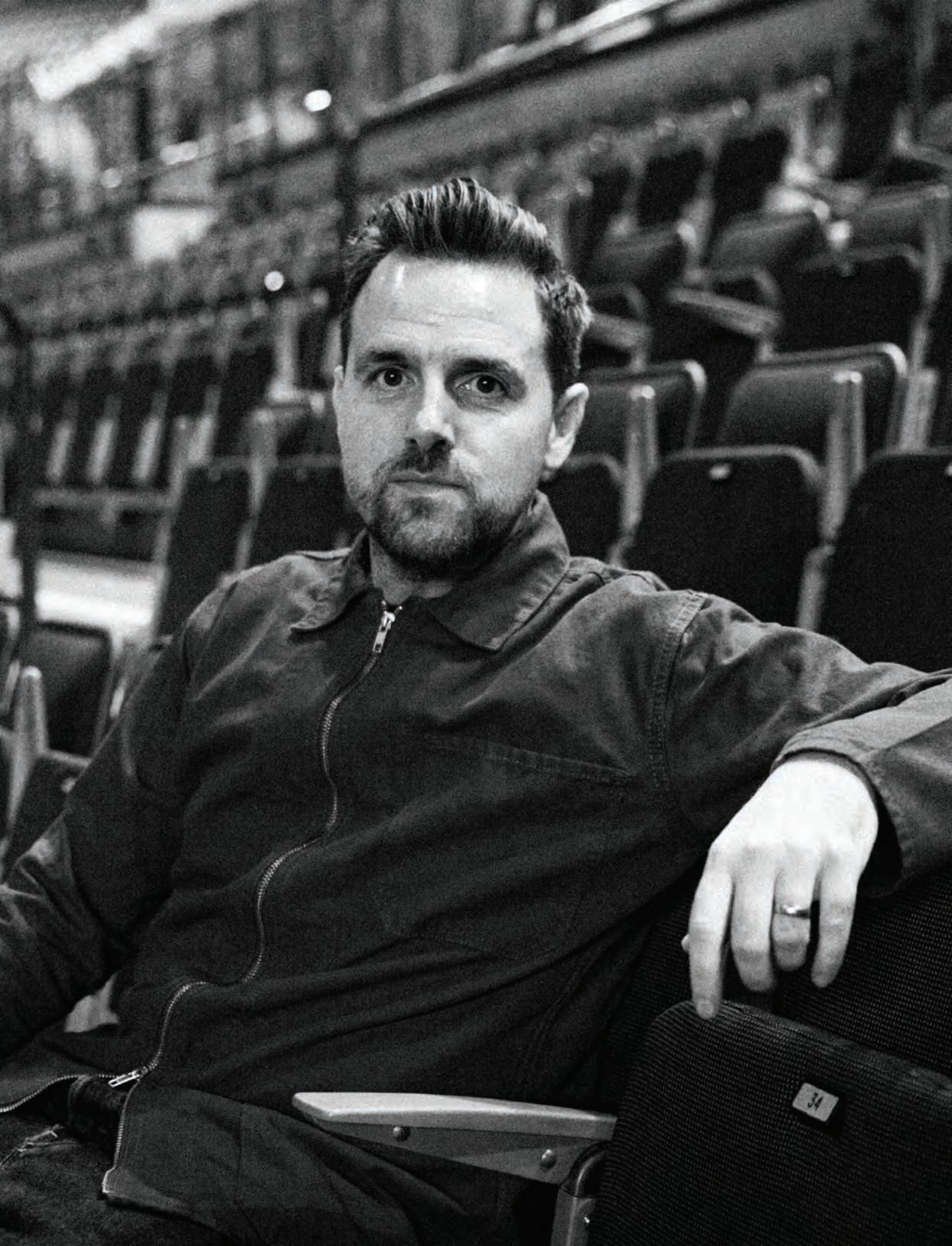
him under his wing, educating him in the classics on long drives across the North, an education that continued via a stint as the Saturday boy at Andy’s Records in Blackburn and at university in Newcastle. He pitched up there a few weeks after The Strokes’ Is This It was released, to discover “indie music was sexy again”.
He was soon dabbling in live promotion and, with the NorthEast becoming an A&R hotspot thanks to The Futureheads, Maxïmo Park, Field Music and The Golden Virgins, he forged connections with the London label execs who would regularly make excursions to Newcastle.
Lofthouse became a scout for Virgin and then moved to London with jobs at Famous and Independiente before joining Connected
Artists Management, where Lofthouse first encountered Paul McDonald, who was already managing James Morrison. Eventually, the pair left to set up Closer (named after the Joy Division album).
At the time, the charts were awash with BRIT School graduates such as Adele, Amy Winehouse, Jessie J and The Kooks, so McDonald suggested Lofthouse check out what talent was coming through the nation’s other music colleges.
Sure enough, “a lot of terrible Soundcloud links” later, it paid off. James Bay was snapped up via BIMM Brighton after Lofthouse and McDonald saw him play an open mic slot and McDonald declared: “If we don’t do this, we’re fucking idiots.”

48
Lofthouse was pointed in the direction of George Ezra by Jon Harper at BIMM Bristol. In fact, Lofthouse signed the singersongwriter up on the very first day he met him, after he travelled down to Bristol to indulge in “a five-hour drinking session, talking about music. I wouldn’t necessarily do that now,” laughs Lofthouse. “But I was 28 and didn’t know anything…”
Ezra and Lofthouse educated themselves along the way, together experiencing everything from their first sold-out gig to their first record deal with Columbia UK, then run by Alison Donald and Mark Terry.
The original plan was for Ezra to emulate Laura Marling’s slowburning career path, but things took off after then-Columbia US
president Ashley Newton spotted the potential of Budapest. The song duly became a hit around the world, powering the album to 5x Platinum status in the UK.
James Bay, who Lofthouse co-manages with McDonald, broke out at a similar time with his debut album, The Chaos And The Calm, and both artists have gone on to score multiple hit records.
Ezra’s latest release, Gold Rush Kid, debuted at No. 1 and cemented his status on British pop’s A-list, with performances on Glastonbury’s Pyramid Stage and at the Queen’s Platinum Jubilee Concert, where he controversially censored the lyrics to Green Green Grass to remove the second half of the line ‘You’d better throw a party on the day that I die’.

The Queen, of course, has since passed away (MBUK met Lofthouse a couple of weeks before the news broke), while Ezra continues to reach new heights, with an arena tour running through to March next year, and a deal in place with a major streaming partner for the documentary of his walk from Land’s End to John O’Groats.
Closer also continues to expand – they’ve just taken on veteran indie rockers Snow Patrol, the first time they’ve managed an established act rather than building them from the ground up. But don’t expect them to blindly follow the current management agency fashion for either selling up or dabbling in other areas of the music biz.
“It’s not what we want to do,” Lofthouse shrugs, an incongruously working class, Northern presence amidst the brunching yummy mummies in a Clapham café. “It’s not through any lack of ambition, and never say never, but we just really like being managers. And, having built this doing things our way, the idea that someone would say, ‘Now you’re going to do things my way and on my schedule – I don’t know if we’d like that every day! At the moment, I wake up every morning and really love going to work. What else is there?”
Time to find out…
Did Closer set out to manage lots of male solo artists?
(Laughs) It used to get my back up when people said that; like I’d seen the future and it was white, male singer-songwriters! I mean, I’d seen the James Morrison thing and I’d been big into David Gray and Damian Rice, but it absolutely wasn’t by design, it’s just the way it played out.
The only reason it worked was because they had a point of difference – don’t forget, there were also a shitload of singersongwriters that didn’t do anything!
Your relationship with Paul McDonald must be key to your success as well?
Oh yeah, we’re family. Our values are really well-aligned in terms of what we’re trying to do, the sort of people we like working with and what we want out of our partnerships.
There’s a telepathic understanding between us now; we can be sat in a planning meeting with 20 people and I know exactly what he’s thinking. I’ve known Paul for 13 years now and we’ve never
INTERVIEW 49
George Ezra, Finsbury Park, July 2022
had an argument, but we challenge each other every single day. It’s a healthy marriage.
Closer manages a lot of big artists but still seems to fly under the radar. Is that deliberate?
Definitely. It’s not like I have deep friendships with these people, but I look at managers like Jonathan Dickins, Ian McAndrew and Rob Swerdlow and they’ve got it right. There’s nothing flashy; the music they’re part of says everything you need to know about them as people and I like that.
I find the idea of being a celebrity manager very unappealing – thinking you’re an extension of the artist; you’re not. You’re in partnership with that artist and I treasure that partnership, it’s unbelievably satisfying that that person has chosen me to be their representative in the industry. They only get one shot and they’re going, ‘OK – you’.
Will it be a very different challenge managing Snow Patrol to your usual work with brand new artists?
Yeah, but we’re applying the same logic that we would to a new artist. You now have to treat every record like you’re trying to break an artist. People are getting pulled in so many different directions. You’ve got access to every record that ever existed on your phone – and you’ve got Netflix, Amazon Prime, Disney+, TikTok, Instagram and Facebook. Competing for people’s time is more difficult than it’s ever been.
When we came back with the George record at the start of the year we were under absolutely no illusions: you have to start again, essentially.
Did you think George would become a megastar when you first met him?
No, absolutely not! When I met him, he had a skinhead, looked like he hadn’t seen a vegetable in a month and was wearing this knackered Barbour jacket. I thought, that voice with him, that’s really cool. The music was quite intense and serious.
Then one day, his sister said to him, ‘Fucking hell, these songs are miserable, aren’t they?’ And it wasn’t his personality: if you met him, he was this really funny, up-for-anything, laid-back guy. It hadn’t entered his mind that he could write fun music because that’s not what singer-songwriters did; you write very ‘serious face’ music.
Then George and Joel [Pott, Ezra’s co-writer and former Athlete frontman] started writing different songs. Budapest ended up as a bed on a BBC trailer and the Shazams went mental. We were in 200-cap rooms, a 20-date tour and they all went straight away, so it was like, ‘OK – this is something’.
So did expectations suddenly get recalibrated? Yeah, all of a sudden. We were making the record in Clapham North with [producer] Cam Blackwood who’s a fucking genius,
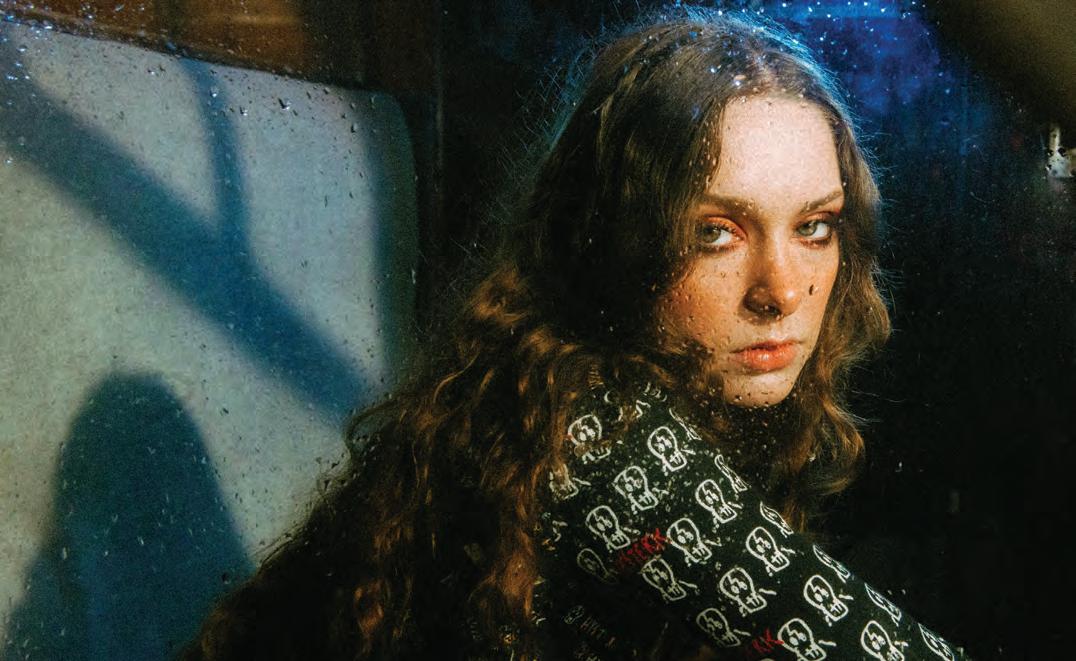
50
Photo: PHOEBE FOX
Holly Humberstone
but he wasn’t a ‘hit’ producer. Joel had had hits with Athlete but had never had a hit as a co-writer. So it was me, George, Joel and Cam all having our first hit together!
It made this thing really beautiful, we were all texting each other saying, ‘Fucking hell have you seen this? It’s No.4 in Ireland!’ It was so exciting, but suddenly it became, ‘We need to get this fucking album right’.
There are things that me and George look back on now – certain meetings and conversations we were in, when we were so amateur hour! It was like, chancers of the world unite. We were all on a total blag and holding on for dear life, basically!
Well, he’s now on his third massive hit album so you must have been doing something right… Yeah, George uses a record company in a way that all artists should use a record company. The germ of the idea starts from him and they amplify it. I try and tell all new artists now that the record company will not make you a star or make you famous. The universe you create around you has to come from you –what you stand for, what you say, what you wear, then they’ll help you.
But the record company will not come up with all this for you – and the second they do, you’re subjecting yourself to a committee. A camel is a horse designed by a committee; there will be 15 people who have a different idea of who you are, and it’s fucked from that point.
Is your job very different now George is such a big star and you have to deal with things like the Jubilee gig controversy…
I just thought that was funny! They wanted us to play another song but we said, ‘It’s a party, he has to play this’. The song’s no more about dying than Budapest is about Hungary.
But we had no idea it was going to be a thing at all – I guess you don’t think people are paying that much attention, or they don’t know the song well enough to even know you’ve done that. But it became this thing and it made the song blow up.
We find most of those things hilarious, because how can you be playing a gig outside Buckingham Palace and not piss yourself laughing all day? Knowing where it all started, this is mad. You know, being at the BRITs is mental! Being on the Pyramid Stage is mental! It’s pop music, it’s a laugh. Just chill out. It’s going to be fine.
There was another recent story that George was about to quit music…
All he was saying in that article was, ‘I’m very aware this doesn’t last forever and I’d like to make the decision when that moment is’. But who are any of us to get in the way of a salacious headline? [Laughs]
Even if he chose to do that, it’s his decision. Of course I’d be disappointed, because we’re having a lot of fun, but he doesn’t owe me anything.
How do you choose which artists to work with?
I couldn’t ever manage anything just because I thought it was going to be successful. I’ve got to want to go to the gig and be really proud to be around records I would buy if I wasn’t involved with them. Everyone I work with, I really love. We have been offered stuff in the past where there was an absolute financial upside to doing it, but I just wasn’t arsed. I said, ‘Nah, I’m just not into it’. It’s not that we don’t want to make money, but getting rich is not the driver at all. It’s about finding someone, really believing in them and trying to make it as big as they want it to be – and not much else.
If you could change one thing about today’s music industry, right here and now, what would it be and why?
I’d like to see fairer remuneration in record deals for artists from streaming. When times were lean, artists and managers rolled over and bought into 360 deals – some taking a gross position on live. Now we’re told the good times are here again and the deals look exactly the same! Don’t get me wrong, I understand there’s a great financial risk taken by the labels at the outset, but I still find the 80/20 split quite shocking.
If you could go back to the start of your career and teach yourself one lesson about the industry, what would it be?
Don’t worry what people think so much. I worry a lot. So just calm down, chill out and keep going because, when you get there, it’s going to be amazing.
You do seem to have a lot of fun managing people… Oh yeah, I fucking love the music industry. I romanticised it for years from my bedroom and now I’m in it, it’s everything I wanted it to be.
I love it because on the one hand it is really serious, you’ve got to work so hard – but I was never workshy anyway. And, on the other, it has been and it still is loads of fun, and the opportunity seems endless.
The idea that I could go back to my house and there’ll be an MP3 waiting there that’s going to change my life – it’s so intoxicating, it’s a drug you keep chasing.
I remember walking in Clapham when I got a text from James [Bay] saying there’s a song in your inbox, see what you think – and it was Hold Back The River. I remember George calling me and he said, ‘I’ve never phoned you to tell you this before, but I think I’ve got one’ – and he sent me Shotgun. And that might happen again this afternoon, or in a year’s time. n
INTERVIEW 51
“When we met, he had a skinhead and looked like he hadn’t seen a vegetable in a month.”
5
Numbers you need to know
The third quarter of 2022 was a relatively quiet one in terms of the Company-Buys-Songwriter-Catalog headlines we’ve grown used to seeing in this business in recent years. But there were still a fair few eyebrow-raising figures to emerge from the global music industry over the past few months…
52
$700 million: Hipgnosis Songs Fund re-finances
Hipgnosis Songs Fund (HSF), the UK-listed entity founded by Merck Mercuriadis, announced in September that it had refinanced its debt package. The company previously maxedout a USD $600 million credit facility, but has now switched this over to a new $700 million facility, with City National Bank its lead arranger. The new package will “materially” reduce the interest burden on HSF’s borrowings, explained Mercuriadis. He added: “The continued growth in streaming and additional revenue streams from digital platforms, irrespective of macroeconomic conditions, coupled with the improved terms of our new [credit facility] is very encouraging for [HSF] and will deliver value to our shareholders as income from our portfolio of songs increases.”
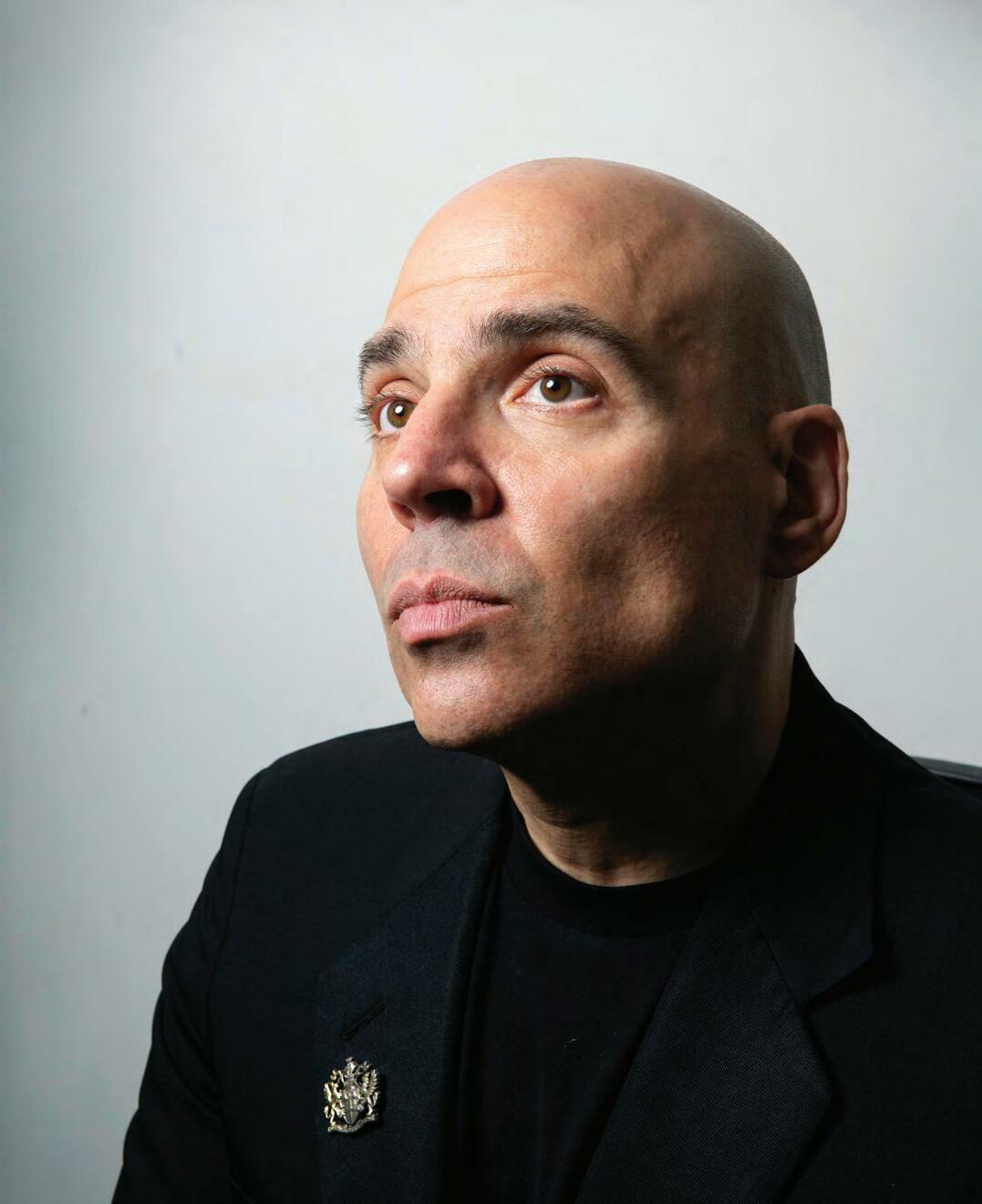
53 ANALYSIS
Merck Mercuriadis
$6 billion:
YouTube’s gift to the music business
YouTube’s Global Head of Music, Lyor Cohen, recently announced that YouTube paid music rightsholders over USD $6 billion in the 12 months to end of June 2022. That figure represented a $2 billion increase from the $4 billion contribution to music rightsholders that YouTube said it paid out in the prior-year period (the 12 months to end of June 2021). YouTube says that its goal is to catch Spotify’s annual payouts to music rightsholders by 2025; Spotify confirmed earlier this year that it paid out more than $7 billion to music rightsholders in 2021, up from $5 billion in 2020.
$300 million:
YouTube vs. Spotify:
Annual payments to the music industry ($bn)
A new home for Genesis
Concord dipped out of music’s M&A rights goldrush for a full year following its $400 million acquisition of Downtown’s music rights catalog in May 2021. Now, though, Concord is motoring once again. Its acquisitions in the past few months have included Aussie music publisher Native Tongue and the recorded music assets of L.A. Reid’s HitCo company. Concord’s biggest move, though, has been its acquisition of the publishing and recorded music catalog of Tony Banks, Phil Collins and Mike Rutherford , as well as the publishing and recorded music catalog from their years in the band Genesis. Announcing the acquisition in September, Concord President Bob Valentine , said: “The songs of Tony, Phil and Mike have been the soundtrack to many people’s most important life moments. Everyone at Concord feels the weight of the cultural significance of this remarkable collection of works, and we will strive to ensure that current and future generations of music listeners continue to hear and enjoy them.”
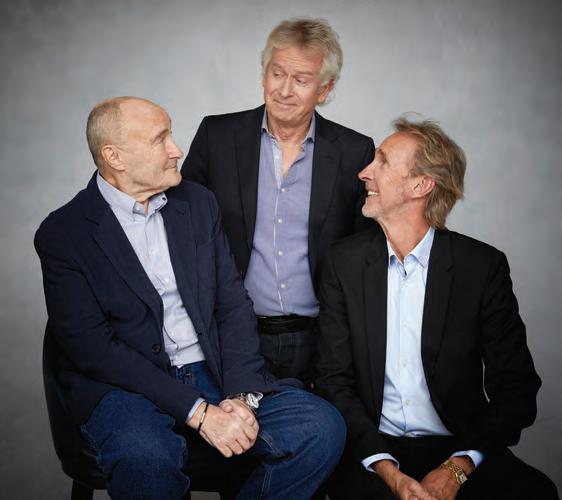
54
n YouTube ($bn) n Spotify ($bn) 2020 2021
Source: YouTube & Spotify announcements. YouTube’s 2020 and 2021 data refers to 12 months to end of June; Spotify data is calendar year
4 5 6 7
$7.7 billion:
The US music industry is still on the up
The US recorded music market grew in H1 2022 – but only half as fast as it did in H1 2021.
On a retail basis, recorded music revenues in the US (money spent on streaming subscriptions, as well as physical and digital music), grew $700 million YoY to $7.7 billion in the first half of this year. Back in H1 2021, on a retail basis, US recorded music revenues grew by $1.4 billion YoY to $7 billion
According to new industry figures from the RIAA, it was the same story for US midyear wholesale (trade) revenues: These hit $4.9 billion in H1 2022, up $300 million YoY; in H1 2021, the equivalent figure ($4.6bn) was up by $600 million YoY. Digging deeper into the RIAA’s mid-year data reveals that paid subscriptions were the largest driver of US music industry revenues in H1 2022, growing 10% YoY to $5.0 billion.
music mid-year revenues
The years Robert Kyncl leaves behind at YouTube
Robert Kycl will officially begin as global CEO of Warner Music Group in January, leaving behind his role as Chief Business Officer with YouTube after 12 years with the video company.
To ensure a smooth leadership transition at Warner Music Group, Kyncl and current WMG CEO Steve Cooper will serve as Co-CEOs for the month of January 2023. As of February 1, 2023, Kyncl will become sole CEO of WMG and assume Cooper’s board seat on WMG’s Board of Directors.
Prior to YouTube, Kyncl spent seven years at Netflix, where, Warner says, he led the push into streaming film and TV content, helping the company evolve into an entertainment giant.
Steve Cooper is the longest-running CEO in WMG’s history, having been appointed in August 2011, following the purchase of the company by Len Blavatnik’s Access Industries.
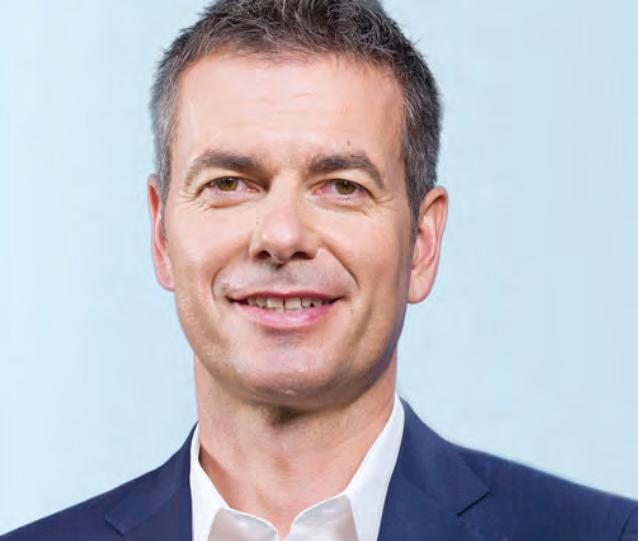
55 ANALYSIS
12:
U.S. Recorded
$3.7 $5.6 $4.6 $7.0 $4.9 $7.7 1H 2020 1H 2021 1H 2022 $ Billions n Wholesale n Retail
WHAT I WISH I’D KNOWN
Jane Third is co-founder of independent artist services venture DreamTeam, where she works with artists including Yung Lean, Tove Lo, Jungle and Steve Aoki, and companies including Mom + Pop and mtheory. Previously, she was CCO at [PIAS] and SVP at Because Music. Here, she recalls the lessons learned across her career…
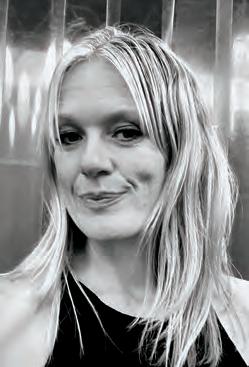
The first thing I wish I’d known is that record labels will be worth a fortune one day. I got into the business in the very early noughties, so I was there for the peak and then the decline. After that, the attitude was always that there’s no money and there will never be any money.
I joined Because Music in 2006 and that was still very much the doldrums for record labels. Physical sales were falling, downloads weren’t making any money and streaming didn’t exist. It was all about penny pinching, doing everything on a shoestring and hoping you might have enough success that something would break even.
That was the level of pessimism that existed and the hard work that went into everything – knocking on the doors of gatekeepers and getting rejected over and over again because you didn’t quite fit and there weren’t any other avenues. If you didn’t get the gatekeeper support, you were nowhere.
It was basically impossible to do what you can do now by just building through audience development. So it was really tough, especially because we were starting something new; nobody knew who we were and the company didn’t have a reputation. But if I had known then that what we were doing would end up being worth millions one day, I would have had a lot more fun and would have demanded a lot more money!
The next thing is that not everyone has creative vision – and your quick idea could be worth a fortune. When I started out, I always had taste and was good at predicting trends. Because that just came naturally to me, I thought everyone was like that.
I’d be intimidated by the more analytical people in the industry who knew their stuff and were really studious about it. I thought I wasn’t studious enough, needed to try harder and that you couldn’t just rely on instinct. But, as time went on, I realised that instinct is a hundred times more powerful than being studious.
Those little ideas I had, the ones that just came naturally, can change everything in a campaign. It’s quite easy for people to tell you that’s airy fairy nonsense and you just get lucky; sometimes you’re right, sometimes you’re wrong.
And once something works, nobody remembers how you got there. You know it was your idea that made it come together, but everyone else has moved on.
I wish I’d been more assertive about the fact that if you have creative vision, it’s a real thing. Creative vision is powerful, it’s spiritual and it should be valued more. I would have a lot more confidence in that if I was starting now.
The next thing I wish I’d known is to enjoy the moment and have fun, because so much is outside of your control. I was really tense a lot of the time in my early career, wanting everything to be perfect and working around the clock, having very high stress levels and taking all of the responsibility on myself, whether something worked or didn’t.
The thing I learned gradually is that sometimes you can put everything into a project and it just won’t work. And sometimes something will happen without you doing anything. Those are the things you get credit for – and you [often] don’t get credit for all the hard work you do.
Being a video commissioner was a big part of my job for a long time. You’d be on set with an artist and everything would be going so well, the artist would be looking at the monitor saying, ‘Oh my god, I look amazing’, and everyone would be super-excited. Then, when you see the first cut, everyone hates it and it ends up getting panned. You’d think, ‘How could that happen? It was so much fun on the day.’ And then [conversely] you’d have a shoot that is really stressful and it works. So, enjoy the video shoot, enjoy the press day, enjoy meeting with the artist, because that’s the fun part. It doesn’t matter if you’re hyperstressed and hyper-focused because, at the
56
“I would have had a lot more fun and demanded a lot more money!”
end of the day, the audience is going to decide whether they like something or not.
Try to bring excitement rather than stress into what you do – those two things are very closely linked. If you’re feeling stressed, try to flip it to excitement, it will be infectious and everyone will have a great time. And if something doesn’t work out, you can say, ‘Well, at least I had a good time doing it.’
Professional courtesy is something that, as I get older, I find myself talking to younger people in the industry about quite a lot. I always aspire to practise it myself and assumed everyone else did, but actually I feel like it should be taught to people more.
Let’s say you have an artist who has a collaboration or a remix with another artist, there’s always this attitude of, ‘Let’s go for the timeline that’s best for us, screw the other artist, we don’t care about what they need.’ It’s that ‘we have to be first’ competitive thing.
I was always more like, Can we just have some professional courtesy? Can we be more spiritual about it and do the right thing? Not just because it will benefit us, but because it’s the right thing to do. Wouldn’t it be possible to have a music industry that behaves in that way? Would it be so terrible, would we all lose drastically, if we had professional courtesy as a motto and if the industry was more like a community rather than, ‘If you’re losing, I’m winning’?
This industry has a hoarding attitude — if I hoard everything and everyone else loses, then I must have more. But that’s actually not true. When you look at marketing, all boats rise is the truth. If the artist’s campaign that you’re collaborating with is successful, your campaign will be more successful.
By hoarding all of the control and hurting them, you’re just hurting yourself. That’s something I saw over and over again when I was younger. At the time I thought I guess I just don’t have enough of a mercenary attitude, I need to be more like everyone else and not be so courteous and concerned about other people. I thought it was a negative trait. Now I look back and think, no, that was actually right; everyone should have thought like that.
A core tenet of marketing and audience development is to understand that. Back in the day, when we used to do free downloads, people would say, ‘Oh, I don’t want to do this free download because it’s going to hurt my iTunes
sales, I’m going to sell less if people are getting it for free.’ Time and again you saw that if you give something away for free, you end up selling more, because you’re spreading it wider, you’re getting access to a bigger pie. So, even from a business point of view, that mentality makes more sense.
I also wish I’d known that people probably respect you more than you think they do. When I got into the industry in the noughties, it was a very different place. There was genuine sexism around. It wasn’t necessarily that people wouldn’t hire you because you were female, it was more about a rudeness and dismissiveness that you had to deal with.
When you move through the industry and you’re 20 years into your career, sometimes you have to remind yourself to shake that off, because it doesn’t serve you, it was a long time ago and the industry is not like that anymore.
I have found myself being hyper-concerned about perfectionism. I would be very stressed if I was one minute late for a meeting, because I was convinced that people would think I was being flaky instead of just busy. I had the sense that I didn’t have respect in the industry and I had to constantly prove myself and fight for it.
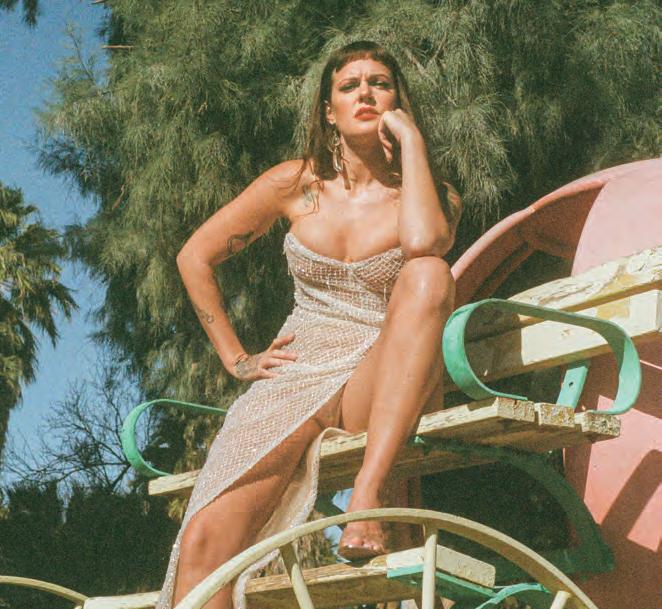
FEATURE 57
Tove Lo
It was only when I left Because Music, where I’d been for 10 years, that I spoke to people in the wider industry and found a lot of people saying to me, ‘You’re an inspiration’ or ‘We always watched what you did’. I was like, Really? I had no idea that anyone knew my name.

Some people have tonnes of credit and notoriety and actually, on paper, what they’ve done maybe doesn’t stack up. I wouldn’t want to be in that position. But I wish I’d had a healthy sense that what I was doing was getting recognition and that people thought I was good at what I did, that I was working really hard and people were noticing. I would have enjoyed the last 20 years more if I’d had some sense of that.
Tying into that theme of perfectionism is this idea I had that every problem was my problem. But now I know that you don’t have to fix everything. You don’t have to accept every challenge. You don’t have to make up for other people’s lack of competency, empathy or rudeness.
I had this attitude that no one can help me, ever, I must do everything alone. That served me well in lots of ways, because I was willing to work harder than other people, but actually it’s a really bad career move to do all the work for everyone; it holds you back.
The most successful people in the industry know how to delegate. They focus on the strategic side of what they do, which is what they’re good at, and don’t feel the need to clean up everyone else’s mess. I definitely had the sense that I had to fix absolutely everything for
everyone and that I had to put myself and my career last.
At DreamTeam, I’ve discovered that the strategy side is always the bit I’ve enjoyed, that I’m best at, and the company is going to do better if I do more of that. I’ve been so blessed to have a business partner like Vincent [CleryMelin] because we’re total opposites. He’s fantastic at strategy too, but he’s much more the analytical type and I’m much more the intuitive type. Feeling like I don’t need to be both of those people now is great.
It’s such a relief to know all I need to do is come up with the vision and Vincent will figure out if it works on paper. Between the two of us, we’ve hired some brilliant staff, trained them up and we’ve recently hired a senior person to manage them. So we’ve been able to remove ourselves even more from the day-to-day and focus on the real value add, which is our core skills. But it’s taken me 20 years to work that way and I wouldn’t have been able to do that if I hadn’t had Vincent being the yin to my yang, coaching me out of some of my bad habits and to believe in myself and my convictions more.
My final two lessons don’t need too much explanation. Firstly, everybody wants to be famous, which is a useful thing to understand about artists — no matter which artist you’re working with, and how much they tell you they don’t want to be, they do. The other one is that the digital thing is going to be big…
58
Jane Third was interviewed by Rhian Jones
Jungle
“You don’t have to make up for other people’s lack of competency, empathy or rudeness.”
XXXXXXXX THE MOST EFFECTIVE MUSIC INDUSTRY JOBS BOARD IN THE WORLD WWW.MUSICBUSINESSJOBS.COM
Matt Vines and Louis Tomlinson were sat watching the news.
The star – who found worldwide fame as part of One Direction –had just kicked off his 2020 solo world tour in Spain, a moment he’d been waiting for ever since the band went on hiatus in 2016.
But, four years after that bulletin broke a million teenage hearts, the world was changing fast. Tomlinson and his manager watched helplessly as, one-by-one, all the countries the long-planned tour was due to visit started shutting down as the coronavirus swept the planet.
“We had the buses all waiting when we made the call that everybody was coming home and it was game over,” sighs Vines, two years on. “That was incredibly devastating. Louis had waited years to do that tour. Coming out of the band, that was all he wanted to do, because that was his favourite part of being in One Direction, touring.
“It was over in a heartbeat,” he adds. “But it took us months to unravel it all, work out what to do and keep rescheduling and moving things.”
Fast forward another two-and-a-bit years, however, and the picture looks different again. After being rescheduled numerous times, Tomlinson’s 2022 world tour – which began playing in smaller theatres – was upgraded to arenas in many territories, and visited several countries that even One Direction couldn’t reach.
It finally wrapped with a stadium date in Milan in front of 35,000 screaming fans. That show sold out in less than 36 hours –a sure sign that Tomlinson’s career is, once again, only going in, er, one direction: up.
MBUK catches up with Vines, founder and CEO of Seven 7 Management, at 5.30am New York time, the only window in his hectic schedule as he and Tomlinson trek across the States on a whirlwind promotional trail pushing the singersongwriter’s forthcoming second album, Faith In The Future, due in November.
So far, Louis has starred on The Late Late Show with James Corden, Good Morning America and a host of radio and press stops, proving that Harry Styles isn’t the only One Directioner capable of stopping media traffic Stateside.
much an eye-opener, like, this is what you can do. It made me think, ‘I want to get to this point, but not just walk into it, I want to do it from the ground up.’”
To that end, he then went to work with Mark Gillespie at Three Six Zero, where his alt-rock knowledge perfectly complemented Gillespie’s electronic music skillset. There, he rose to VP, co-running the UK company, and started working with synth-pop duo Hurts, still a management client today, before leaving to set up Seven 7 in 2016.
And alongside him every step of the way has been Vines, a manager who, on Instagram, bills himself as an ‘amplifier of musicians and occasional troublemaker’ and is adept at keeping his artists in the spotlight while he himself remains resolutely in the background.
That’s an art he learned throughout his early career, including a stint at the “Caroline Elleray finishing school” as a BMG Publishing A&R assistant while still at the Liverpool Institute for Performing Arts. After that, he worked with Estelle Wilkinson as part of Coldplay’s management team.
“One of the first things I did was Coldplay at Crystal Palace athletics stadium,” he remembers. “It was very
Seven 7 is more than just your typical music management company, with interests in everything from eSports and gaming to digital strategy, social media management and production/library music. It has a new studio partnership in Tileyard with Theo Hutchcraft from Hurts, which will allow all Seven 7 clients access to state-of-the-art recording facilities free of charge, meaning they can develop musically without having to rely on external financing.
But Vines’ work with Tomlinson remains a key calling card. Tomlinson was the last 1D-er to release a solo record but, after a couple of early electronic pop singles and an album, Walls, on Syco, he has now headed down a Britpoppy, alternative route that more accurately reflects his own music tastes.
A lockdown livestream saw him break records by selling 160,000 tickets across 110 countries and raise a huge amount of money for charity and his own road crew. And since life returned to something approaching normality, Tomlinson has appeared on the cover of Alternative Press magazine and curated his own international
60
Seven 7 Management founder Matt Vines on the rise and rise of Louis Tomlinson, touring in the time of Covid, plus the changing role and evolving challenges of managing artists…
‘THE IDEA OF A MANAGER-ARTIST RELATIONSHIP IS A BIT OUTDATED, WE’RE SIMPLY PARTNERS IN RUNNING A BUSINESS’
“The show always gets the same reaction:
‘That’s not what I expected’.”

Away From Home festival, featuring the indie-rock likes of The Vaccines and Hinds.
Tomlinson’s festival is now set to be an annual event and, with a new album on BMG that’s likely to take both label and star to new global heights, it’s time to finally pin Vines down for a chat…
How did it feel to finally get Louis’ world tour done?
It’s been a great tour. It’s had its challenges; we were one of the first world tours to go out in January at the height of the Omicron part of the pandemic, which was incredibly hard. We put a lot of back-ups in place, which allowed us to continue without dropping a show, but it was probably the most stressful touring climate I’ve worked in. And when you’ve been at home for two years, it was tricky coming back out again and doing that. But it’s been a great success and all credit to the fans for turning up as well.
Obviously, Louis has a huge platform from his One Direction days. But how difficult is it dealing with the preconceptions that come with that?
We spend our life slowly re-educating people on who he is, to try and remove any preconceptions about what he might be, what he wants to do or even who he is as a person.
The tour has helped a lot because, as we go round the world, we meet media and label partners locally who engage with him and come to the show. The show always gets the same reaction: ‘That’s not what I expected’. So having the tour before we go into the campaign for the new record has been really helpful. It’s been a case of slowly opening the doorway to what he does.
How difficult has it been moving him into a world where he can be on the cover of AP magazine and curate his own festival?
They are things we’re massively proud of on this campaign. Getting the AP cover felt like a big moment for him, because a lot of the reaction was, ‘I didn’t expect that’. But actually, when you listen to the music, it does fit perfectly with that demographic.
I’ve worked with guitar-based acts for 20 years and one of the biggest challenges you have with a British guitar-led act is travelling internationally. To be able to do that with an artist like him, who has that footprint already and can give you those opportunities globally, gives you a really exciting platform to build a campaign around.
How do you take his original fanbase with you?
Well, the campaign always starts with the fans. They’re the most important part of this process. It’s community-led and that very much comes from Louis. Every night on stage, he says, ‘I need you and you need
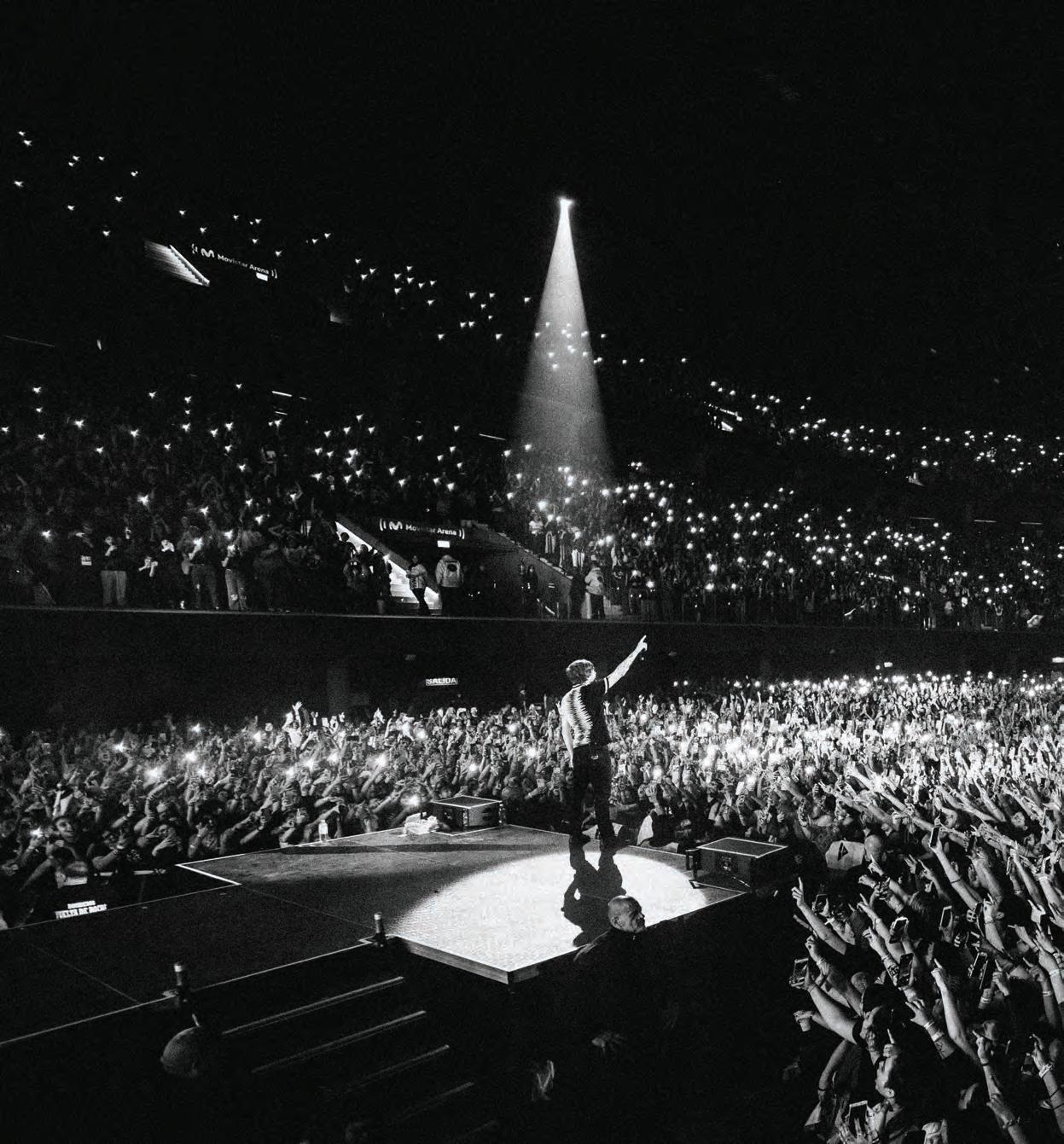
62
me’. And when you’re in the middle of this, you see that as well, it’s very much a twoway street. So everything we do is geared around what’s good for the fan experience. There are only so many places we can go on a tour, but we make sure they feel included on a global level.
The livestream actually gave us a lot of confidence on pushing the capacities in some territories. It really helped with some of our promoter conversations as well. One suggested we should come and play a 3,000-cap venue. We shared the livestream data and said, ‘Look, we think you’re really under-estimating this’. We ended up selling 20,000 tickets in that city.
Is it difficult facing comparisons to One Direction’s achievements?
We don’t really compare to what One
Direction did. What Louis does and the music he makes is very different from any other members of the band, and indeed the band’s music. So it’s less of a comparison and more that it’s helpful to us. We use the data from what he did in One Direction, look at the activations they did and how they ran their campaigns and use elements of that which we feel will work within his campaigns. It gives us a healthy understanding of the audience.
How about the comparisons with the other members?
You do get it and he gets asked about it quite a lot. What Harry’s achieved is absolutely phenomenal this year, you can’t deny it’s absolutely incredible. But that’s exciting – and it shows the power of the fanbase. That’s one thing that Louis has and the band had – the audience is incomparable to anything that I’ve ever seen.
With every promoter we’ve ever worked with, we say, ‘You’re going to have to prepare for this, because the fans will be there a week before the show, we have to put on facilities and security – you’re not ready for what’s going to happen here’. And every time they say, ‘Yes we are’ and afterwards they go, ‘Holy shit, we didn’t expect that to happen’! There’s a duty of care that comes with that that we put a lot of time into.
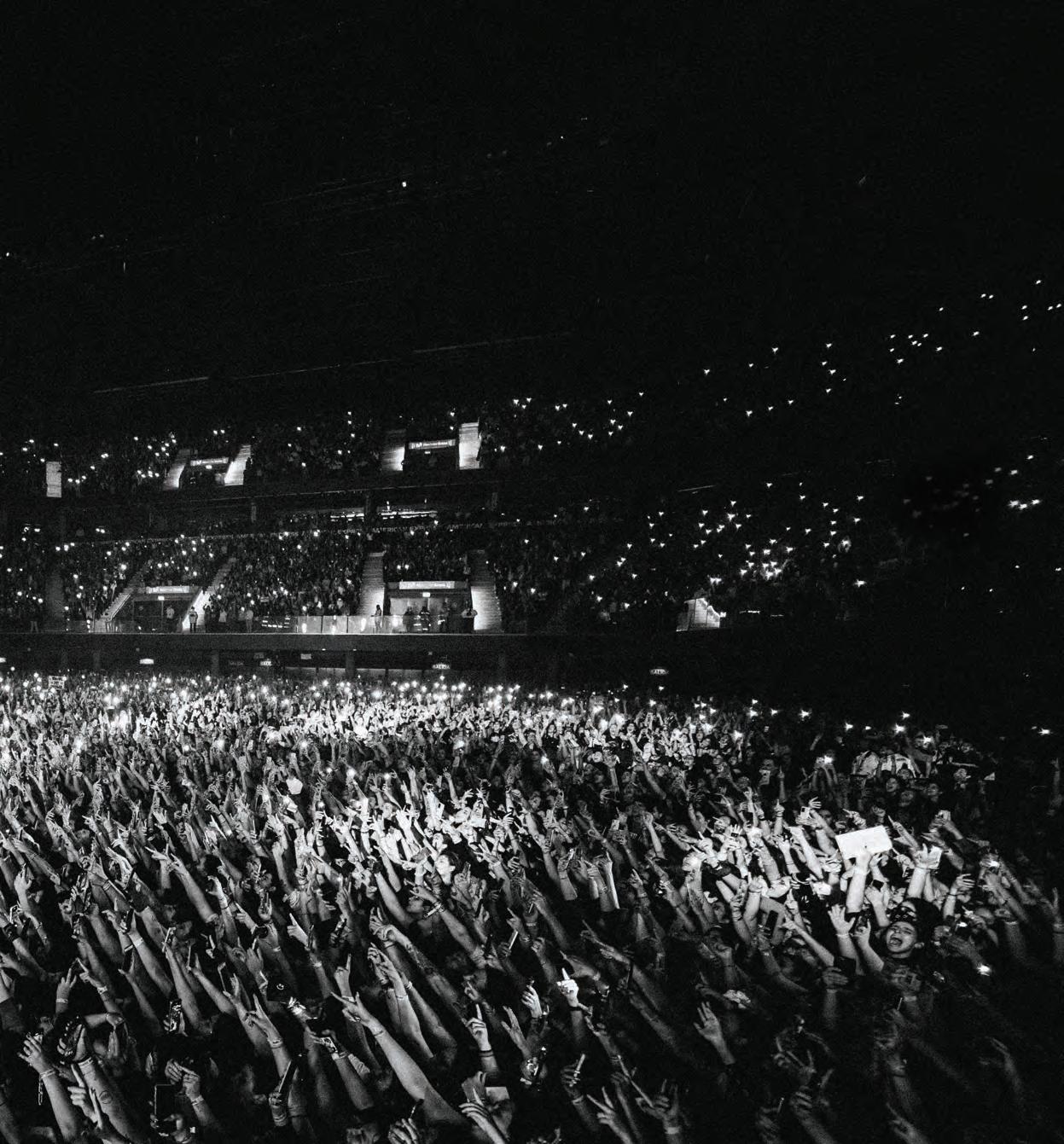
63 INTERVIEW
“Everything we do is geared around what’s good for the fan experience.”
Louis Tomlinson live in Buenos Aires
Photo: Joshua Halling
Does Louis actually want that 1D-style mania now?
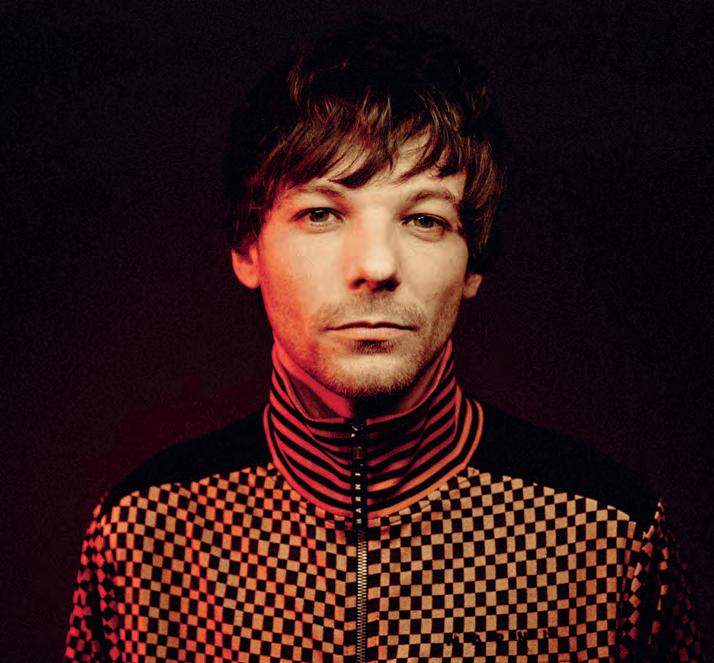
Absolutely, he loves it. But he’s definitely got an executive head on him. Within One Direction, his role was not only chief songwriter, he was also the decision-maker. That’s something he wants to employ going forward, whether it be managing artists or from a label perspective and those are all things we’re looking at doing.
With launching the festival last year and expanding it this year, we’ve seen an interesting opportunity where we could help new British acts and give them a platform they wouldn’t traditionally get.
BMG has had huge success with older artists. What made you sign with them? BMG was an exciting choice, because Louis didn’t want to do the conventional major label deal set-up that he was used to before, coming out of Syco. What took us about BMG is that it’s very much a partnership. With the way the deal’s structured, we’d go into this campaign where we have complete creative control and essentially control over the entire campaign on a global level.
They work with us as partners and with an artist like him, who is so global, having complete oversight over the whole campaign has allowed us to be quite nimble.
We can adapt the campaign on a granular level within various territories – that’s tricky to do within major label deal constructs. It’s the biggest thing that BMG have done, it’s their global priority and it’s been great working with them on that level.
Is it difficult to keep such a low profile when you work with such a high-profile artist?
I’ve always had the mentality that I let the artist do the talking, that’s what people want to see. But there’s an interesting side to it that people don’t really know about, it’s a fascinating project to work on. People don’t see the intensity of the demand and the audience – the chaos, essentially, everywhere we go.
One Direction fans can be very vocal online about the people who work with their idols…
It’s water off a duck’s back for me, I don’t really pay attention to it. Obviously it’s there, and I do spend a lot of time talking to my team and the people who work on the project on what to expect, because it is different from what you might have seen before. It can be positive and it can be negative, so it’s just something to be prepared for.
What made you want to start Seven 7? The reason that I did it, and what I’ve tried to instil as we’ve grown, is very much the feeling of a boutique operation, where we work as a team. When we do company calls, be it about Louis, Hurts or anyone we represent, everyone has the opportunity to input on how those campaigns work. We have actually taken things we’ve done with Hurts and applied them with Louis, it’s interesting the effect you get – we essentially move as a unit around the different campaigns.
As well as very successful artists, you’re also involved in the less glamorous world of production music…
That was something borne out of the pandemic. We spotted there were huge opportunities in that area. ASMR music
[Autonomous Sensory Meridian Response sounds that help listeners relax] is one of the fastest-growing areas of playlisting with Spotify. So, throughout the pandemic, we formed partnerships with a lot of music makers to release that music, whether it be white noise or nursery rhymes. What struck me is when you see a white noise tune on Spotify with 300m plays. That was a bit of an eye-opener so. At that point I was like, ‘We should be doing this’.
What’s your management philosophy?
It would be lovely to do a deal, take a big advance and spend three years developing an act, but the business doesn’t work that way anymore. It’s all-encompassing.
I have this conversation with all the artists I work with, the idea of a ‘manager-artist relationship’ is a bit outdated and, actually, we’re simply partners in running a business. It’s a very
64
Louis Tomlinson
Photo: Edward Cooke
transparent partnership and, when you put that mindset on things, it gives you the opportunity to do things differently. Louis has done everything and he knows how the business works; he’s incredibly intelligent and street smart.
Same with the Hurts boys, we’ve done this for nearly 15 years now and they’re very well-educated on how the business works. So it’s very much a partnership and, at times, about keeping the train on the tracks. You’re 50% business manager, 50% social worker!
If you could change one thing about today’s music industry, right here and now, what would it be and why?
I’d allow visa-free entry to major touring markets for artists performing smaller shows. In particular, the US and now Europe as we are seeing the effects of Brexit, so we can aid the promotion of international touring businesses for UKbased artists who don’t all have the benefit of major label tour support.
And I’d remove default merchandise concessions at venues. The concept that venues take a gross percentage of an artist’s merch sales for no input, when the venue is already being hired for a fee, and keep all food and drinks sales, is outdated. When you take into consideration that a lot of acts are subsidising their touring losses via merch, and the manufacture and delivery costs for those items are going up, it’s just putting more financial pressure on the artist.
What’s the proudest moment in your career so far?
More than anything, I’m proud of working with artists where – and I’ve seen this with Hurts and Louis – you sit with them and have a simple conversation at the start of everything: ‘What do you want to do? Where do you see this going? What do you want out of this? What do you want to achieve?’
When I met Hurts, they had nothing. They used to get the Megabus to London overnight, put their second-hand suits on and we’d go and take label meetings. I remember

them editing demos in my flat in London and I gave them money for a loaf of bread and a Pot Noodle. And seeing them now, five albums in, they’ve got a multinational arena touring business and are well-respected musicians with a long-term career. Do they still eat Pot Noodles? I don’t know, maybe!
And what’s been the biggest challenge?
One of the biggest challenges currently is the well-being of artists and the demand on artists through social media. As a manager, you see the effect of that first-hand. It’s something we all need to be aware of, and have best practices and duty of care in place for, because it’s easy to see those demands consume artists.
As a manager, more than ever, you have to say no to things. Artists are being pulled every which way on tour, and it’s easy to feel the pressure, especially when you’re having success, to keep filling the time. But the power of ‘no’ as a manager is crucial in maintaining artist well-being and health which is the most important thing. n
65 INTERVIEW
Hurts
Photo: Hurts
STOP ME (OR SUE ME) IF YOU THINK THAT YOU’VE HEARD THIS ONE BEFORE
How likely is it that Taylor Swift, global superstar, knowingly ripped off little-known US R&B group 3LW in her 2014 hit Shake It Off, but decided to release the track anyway, crossing her fingers that she’d slip under the radar and get away with it?
Or perhaps Ed Sheeran really did sample TLC in the released version of Shape Of You but, adopting the same cavalier approach, thought he’d take the risk of not clearing the track for the sake of what could have been a small percentage of royalties. Given the large amount of copyright claims that are happening in music today, it would be a pretty surprising move by these musical giants, who are both known nearly as much for their business savvy as their creativity.
Welcome to the perilous world of songwriting in 2022, where inevitable similarities between songs are being used as the basis of questionable claims – and where artists are handing over royalties to avoid a public legal battle.
“Cases are being settled for commercial reasons, not for legal ones,” explains the author of Copyright in the Music Industry, Hayleigh Bosher. “Public perception is really important and the general public doesn’t understand rights. It’s bad press if you’re made out to be a copier.”
Bosher suggests that this had an influence on the Shape of You situation, where Sheeran opted to hand TLC’s members writing credits. In doing so, he gave away 15% of Shape Of You’s royalties — which is “extremely high,” says Bosher, for what is a very small part of the song (and not a direct sample). “The law is down here but we’re operating up here, paying each other because of the fear of losing a case about it.”
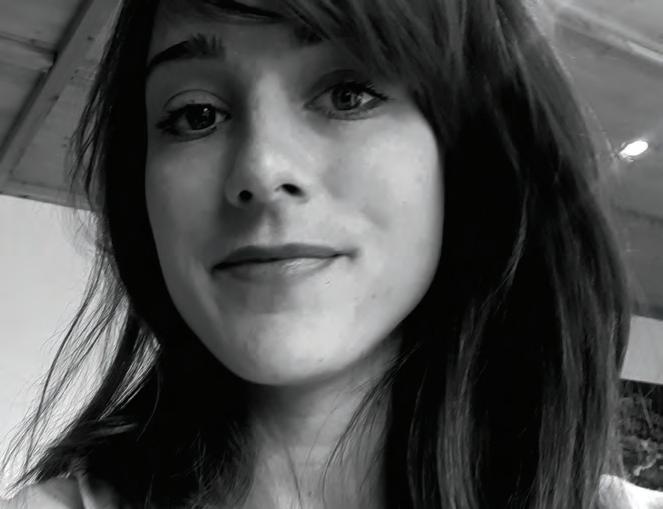
Public perception aside, it can also make financial sense to settle a claim, despite it having no basis in fact. A producer I recently spoke
to said legal fees for fighting a copyright claim can reach a million dollars, and giving away a percentage of rights is often cheaper.
“Simply put, most times it’s easier and cheaper to credit writers that haven’t contributed to a song than it is to fight a potential lawsuit,” they said. “That’s the unfortunate truth – how much money does the truth cost? A lie is free.”
This producer added that it’s now a business to lay claim just to settle. “Someone with no chance of losing anything can sue for a piece of something that could be debated in court and leave you with a bill of $150k.”
Swift has succumbed to the painful and expensive process of a public court battle, where she’s being asked to prove that her use of commonly cited phrases in Shake It Off wasn’t
66
A thriving mini-industry/minefield has built up around accusations of big stars and huge tracks ripping off less familiar source material. Rhian Jones looks at the viability of some of the claims – and wonders what effect they are having on the creative environment of songwriters…
“Inevitable similarities are being used as the basis of questionable legal claims.”
a direct lift from 3LW’s Playas Gon’ Play. The writers of the track, Sean Hall and Nate Butler, argue that they own the copyright to the phrase that forms the title of the song and are therefore due a cut of Swift’s royalties.
In recent years, much has been made of the increasing average number of songwriters it takes to write a hit — 9.1 at the last count. But how many of these writers have made genuine contributions, whether through actual samples or by being in the studio? And how many have been added for legal reasons?
A recent song released by a superstar artist has no less than eight credited writers and a reported two samples. However, I hear from a reliable source that, in reality, the track actually has no direct samples. They say that four of the writers were added to the credits because vague similarities were found between the new song and two older tracks prior to release, and the team wanted to avoid a lawsuit.
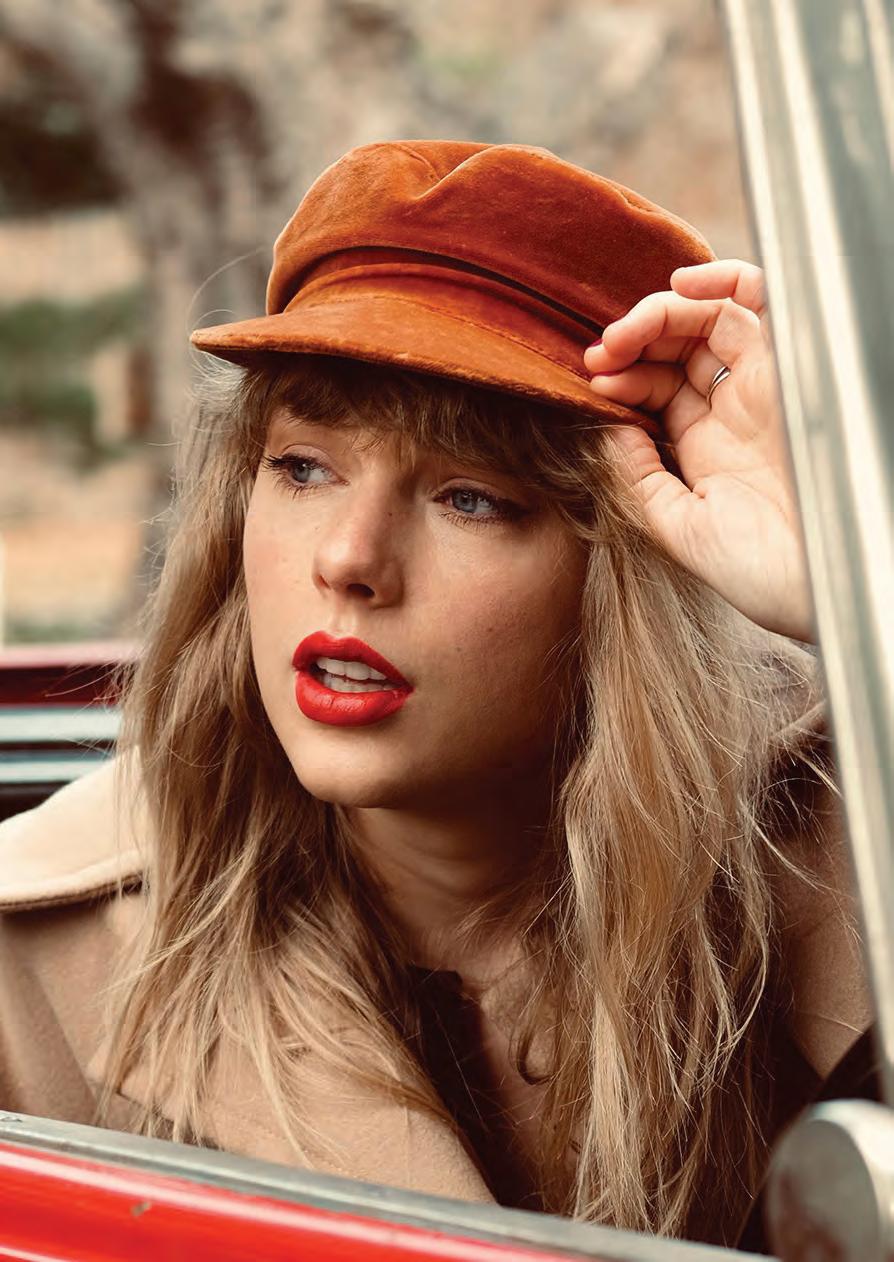
Aside from being morally questionable, and making a business out of the undeniable fact that all creative work takes inspiration from what’s gone before, this litigious culture is damaging new music. I’ve heard evidence of producers no longer accepting demos from new talent for fear of being hit with a lawsuit for music they weren’t there for the creation of and therefore can’t guarantee the originality of.
And even if a track is totally original, if it becomes a hit, there’s always the chance of a writ; fighting that with a new act who is unlikely to be earning good money from music makes little sense from a financial perspective.
It’s well-documented how hard it is to break into music and make money from streaming, unless you’re a superstar. Combine these two factors and it’s not hard to see how unattractive and impossible a career in music is becoming.
At the same time, it seems that music is becoming more sample-heavy than ever before.
In the recent UK singles chart Top 10, five tracks had samples. Part of this is due to the popularity of hip-hop and dance — both genres with a long culture of sampling. But I also wonder if samples are being used with increasing frequency because there’s a fear that original music will meet accusations of being stolen from what’s gone before. An attitude of, ‘Well, we may as well use a sample (or interpolation), because if we don’t, we’ll get accused of doing so anyway.’
Recently, Warner Chappell Music’s UK Head of A&R, Amber Davis, lamented to me about the number of competent writers who are diluting their publishing splits by not writing original music. “I understand why it’s done,” she said, “I just also think there’s something to be said about the days when you could have an album that was an amazing body of work, was sample-free, and would get to No.1. It is possible, it just hasn’t happened in a really long time.”
With the high risk that’s now associated with making and releasing new music, will it ever happen again?
XXXXXXXX 67
COMMENT
Taylor Swift
Photo: Beth Garrabrant
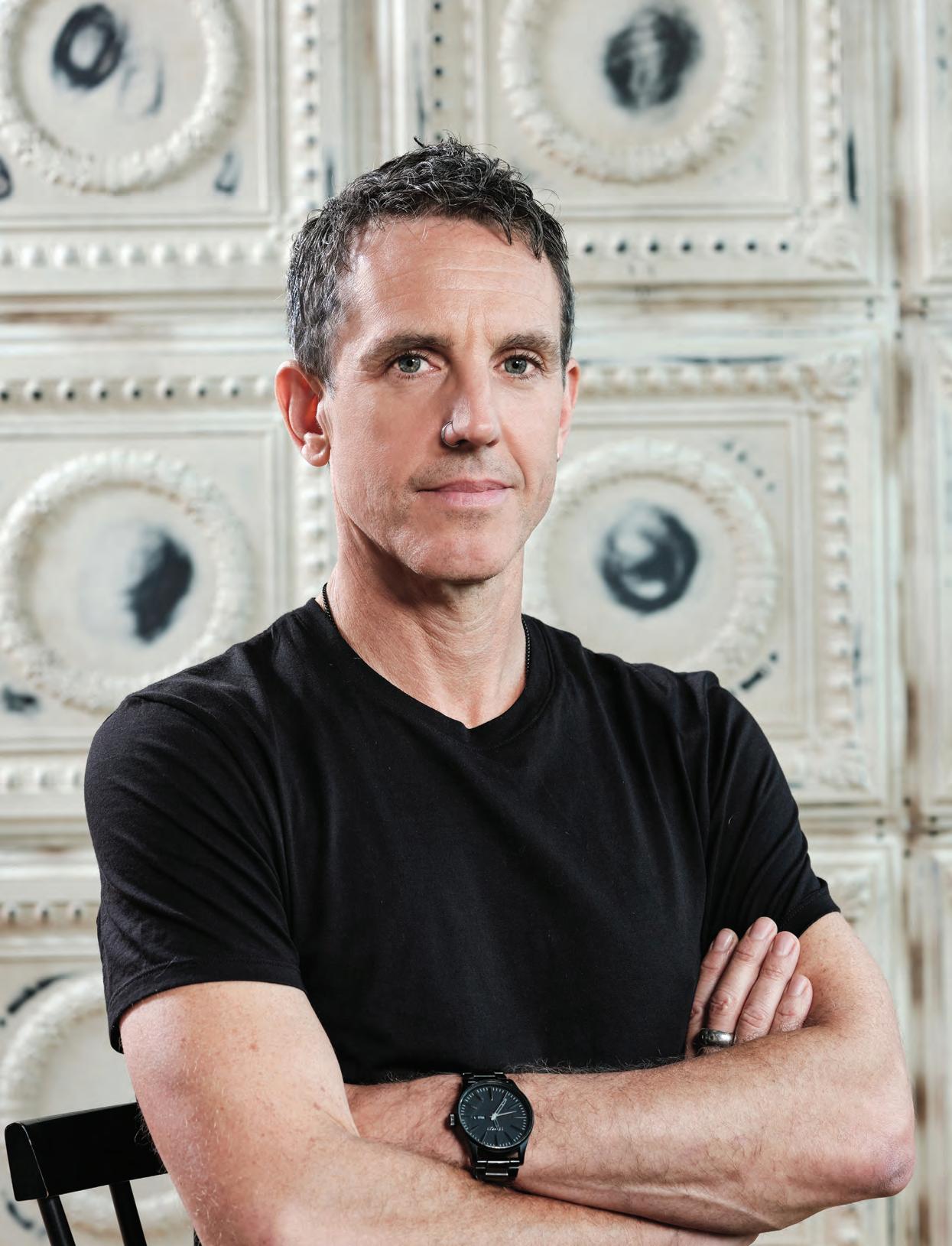
A DIFFERENT CORNER
ADA Managing Director, Howard Corner, is celebrating 30 years in the music industry, and nearly a decade at the helm of Warner UK’s Artist and Label Services division. He tells MBUK about the journey so far, the lessons learned and the power of independence…
Before he joined the music industry, just over 30 years ago, Howard Corner was what he describes as “a record shop kid”.
Most people, of a certain age, perhaps of a certain disposition will know what he means.
A lack of transport and technology might have limited their options, but not their passions, and the local record shop (there might have been more than one, but there was usually only one that mattered) became your social life and your school; partly competitive, partly collegiate; sometimes cynical, more often encouraging. And always all about the music.
For Corner it was Red Rhino in York, which, luck would have it, was part of The Cartel – which meant it wasn’t just a record store, it was part of an independent distribution network.
He says: “I was in there most days with my mates, chatting music and listening to records, and one day I heard about a job in the warehouse.
“It was heaven. I was already totally immersed in music culture – bands, records, DJing, gigs – and here I was, surrounded by loads of other nutters, floor-to-ceiling with records, and all these indie label types coming in. It was like a utopian commune in a business setting – and clearly doomed to failure [laughs].”
Red Rhino did indeed slip into administration, but thankfully the company was bought by a fledgling Belgium firm called [PIAS], who called it ATP and then merged it with another independent shop/distributor in Bristol called Revolver, owned by Mike Chadwick.
“One day, the MD, Pete Thompson, came downstairs and said. ‘Okay, you’ve all heard the rumours, we’re going to Bristol, stick your hand up if you wanna move down there’. Talk about HR procedure [laughs]. I was like yeah, get me to Bristol.”
INTERVIEW 69
Way out west, Corner transferred to telesales. He recalls: “It wasn’t cold calling, it was music heads ringing people up and enthusing about the wicked new releases we had. By this time I was really into dance music, so I was dealing with that a lot.
“But I didn’t want to be in telesales, so I answered a job advert and became Head of Buying at Pinnacle Imports. At the time they were selling things like Japanese editions of Police albums, with an extra track or whatever. On my second day, I said, ‘Can we sell some dance records?’ My boss said, ‘Well, we don’t know anything about it and it sounds like we might lose a load of money…’ I convinced him to the point where he said I could make an order, and if it sold, we could talk.
“I found out what people wanted, found out where to get it, brought it in and sold the lot in a day. And then did it again. That was it, I was off, cutting deals direct, bringing records in from Detroit, New York, Paris, Frankfurt. By the end of the month dance music had doubled our profits, and we were pretty disruptive, too.”
He was soon on the move again though, having bumped into Chadwick and Thompson at Midem, their grab bag of independent distributors now united under the name Vital. “[PIAS] had some dance labels and had just done a deal with R&S. They needed someone to look after those, so I went back there as a label manager from 94 to 99, which was a brilliant time to be at the company.
“They were very involved in Britpop, they distributed Oasis, Elastica, Sleeper, and we built a department in London around the dance scene: Warp, Ninja, Mo’ Wax, Sabres, Tribal... London in the nineties was a golden era for dance music and we were right there, out every night, meeting all sorts of people and getting involved”
Having majored in supply and demand at Pinnacle, Corner now had a crash course in spirit and identity. “I realised that in independent distribution, you get to work very closely with your label partners, and if you’re creative and want to get involved, you can spot the opportunities. You see where the gap is, and you lean in and fill it. You form really, really strong relationships with indie labels that way and can make a real difference.
“The culture there was brilliant. Pete was great, a fantastic figurehead. He was very supportive, he wanted you to find opportunities and encouraged you to bring them in. I really learned a lot: about independents, about how to add value and how to go about things a different way, how to find innovative ways to drive commercial success, because we couldn’t pull the levers the majors had.”
One of the indies Corner worked with was Mute, and after five years at Vital he joined Daniel Miller’s legendary label as Head of Marketing. His first project was a continuation from when he was still at Vital – and it was actually something of a challenge.
“They had this record that they had high hopes for, but it wasn’t doing very well. I felt very passionate about it and was banging the drum, keeping it alive our end, at retail. I was turning up at their meetings, all enthusiastic and contributing.”
“When I went over to Mute properly, we continued to work on this record, which I’d had loads of ideas around. Finally we got it going, and that was Play by Moby, which became an 18-month overnight success.
“When I got there, it had been doing 200 copies a week and got to about 20,000. We just kept on going and until we saw signs of life and then we turned the pressure on. It went Silver at the end of that year, Gold in February, Platinum in March, 3x Platinum in June, 1.5 million by the end of the year.”
“That sort of set our blueprint at Mute. I was there for eight years, and in that time we had somewhere between 20 and 25 Gold and Platinum albums, all career artists and without a single hit record on any of them, which is quite astonishing when you think about it.
“That’s definitely a theme for me. Indie labels aren’t necessarily in the hits businesses – but that doesn’t mean to say they can’t sell a lot of records. There’s a difference between what a hits business does, how they’re structured and their raison d’etre, and what independent labels do and how they do it. You can be just as successful and just as competitive going a different way.”
When Mute sold to EMI in 2002, there was a period where the label had to navigate the new landscape, but Corner could see benefits.
“When it comes to selling records, I’m aggressive and I’m ambitious; I’m a unit shifter. So when EMI came along, we had a partner who shared a similar philosophy. I was put into an environment with a different set of people and ambitions and I thrived on it.”
He left Mute as the storm clouds gathered prior to Terra Firma’s arrival. Next stop, Sony, as European Marking Director. His first job at the heart of a major.
Asked if this felt like a big and possibly wayward step for ‘a record shop kid’, Corner says: “Not really, no. A lot of people fear change, I don’t. I like change, I like the chaos and opportunity of change. One of the things when you’re on the indie side is this sort of inherent anti-major sentiment. But I’ve always been one of those annoying types who questions popular assumptions:
‘Oh, this is like this’
‘Is it, why is that then’?
‘It’s just what they say, isn’t it?’
‘Who’s they and why do they say that? Why don’t we have a look, and have a proper look and I’ll make up my own mind?’
“It turned out to be an experience, because I got to see how the pipes work in a global business. I got to understand how priority systems work and I got to understand the hits business a bit better, because I was working on transatlantic superstars with global mega
70
“A lot of people fear change, I don’t. I like change, I like the chaos and opportunity of change.”
hits; Britney, Justin, Avril, Alicia… It was about turning the taps on everywhere at the same time. To be able to see how to light a company up like that was good.”
In 2008, as the industry went into decline for the first time in decades, Corner, naturally, decided it was the perfect time to set up his own company, 12th Degree. “I was ostensibly doing label services. I had a lot of indie experience, a lot of commercial experience and a lot of contacts. I was working with labels and artists, and D2C businesses like Sandbag, who had just done In Rainbows with Radiohead.
“We were also doing digital marketing services for artists, management companies, independent people generally outside the ecosystem. For instance, I was approached by Modular with a band they really believed in. They needed someone to put a team and a campaign together in the UK, cut a distribution deal and give it a shot. That was Tame Impala.”
A few years later, a friend told Corner that Warner was looking for someone to run ADA in the UK. “I knew it was under-developed and I thought, that sounds like a great opportunity because I

know about distribution, I know about indie labels, I know about marketing, I know how to sign things and I know how to sell them. And I knew whatever I did would only take it upwards…”
When you first arrived at ADA, what needed fixing? ADA at that point was a very flat, passive, distribution service based on the old Pinnacle business. One of the issues that I had to fix immediately was that a lot of the labels wanted to leave and our competitors were all over them. I thought, this could go wrong before I’ve even started.
The company needed to be more dynamic and engaged. That involved everyone at ADA understanding what we had to be about as a company, what our partners needed from us and how to add value, because I’d been on both sides of the fence and I’d seen how it could work if you did it properly
So I had to get on the phone with people and say, ‘You don’t know me, but this is who I am, this is what I’ve done and this is what we’re gonna do; please trust me’. And we managed to quickly shore those relationships up.
71 INTERVIEW
Jbee
The other thing that was happening was the acceleration of some artists no longer wanting to sign a record deal. In the year or two before, Noel had done well, Beady Eye had done well, a few other things, so that emerging sector of ‘new’ indie acts was increasingly of interest.
So, as well as fixing the basic premise and core offering of the business, and retaining the existing partners, there was some opportunity. We had albums signed that needed plans putting together – Johnny Marr, Suede – and the US company had signed a new unknown act over there whose video had started moving. We looked at it and thought, there’s something in this, let’s jump in. That was Macklemore.
In my first three months, we had a No. 1 album with Caro Emerald, a No. 1 single with Macklemore and three other top 10 albums from acts that we’d signed. Now we have some energy and some success stories.

Then Warner acquired Parlophone Label Group and we brought the EMI label services business over. So by the end of the year, we’ve added Noel Gallagher and the Ignition business and some other great indie labels.
Plus, as I say, we’ve had a handful of top 10s, the hottest new international act in the world, stuff working overseas and we’ve doubled the size of the business. Now we’re at the races.
It sounds like one of the things you changed was the energy of the company. Yeah, you could say that [laughs]. I think I brought some vision, some purpose and, yes, some energy which didn’t previously exist there.
Everyone started to see that what they did could make a real difference, they started believing in what we were trying to do. It’s about everyone being very connected to what’s going on in the business, seeing an opportunity and then saying come on, let’s go
And we’ve continued to build on that, with exactly the same principles, but also constantly evolving. In 2013, that was the first year people were going: physical, great; iTunes, smashing it; and there’s this line on the bottom of the statement called streaming….
Macklemore was an early streaming success and at that time we were working with Because, who had Major Lazer. So we had some of the biggest selling records of 2014/15, and all of a sudden we’ve got streaming game. And from that you learn: okay, that worked, let’s apply it to this. You identify opportunities, you exploit, you evolve skills, you find gaps, you build, you scale…
And then rap really started popping around 2016. There had been a wave of rappers doing major deals a few years previously,
72
“I think I brought some vision, purpose and energy which previously didn’t exist there.”
Hybrid Minds
but as the labels moved on to other sounds, the next wave of rappers were left to work out how to do it themselves.
“When rap started to take off again, many acts felt they no longer needed a label, because they had learnt how to do it themselves, but they did want someone who could help with the digital platforms.
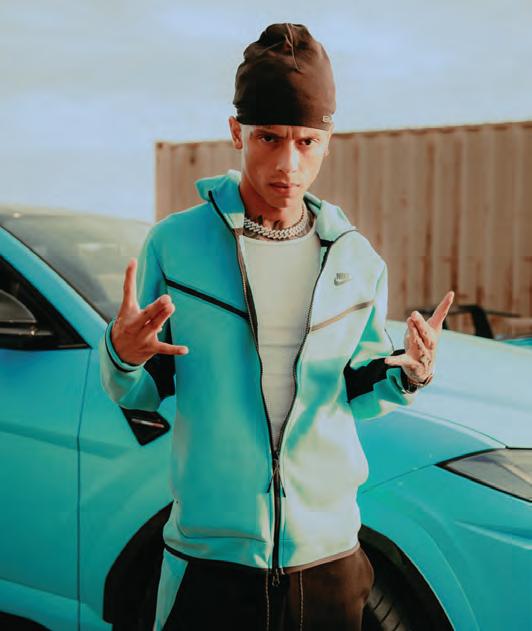
So the emergence of rap, direct marketing through socials, the growth of DSPs with strong suites of playlist brands, all of a sudden it’s a perfect match: rap, streaming and label services.
The expansion into that space was very powerful for us: Stormzy, AJ Tracey, Bugzy Malone, Cadet, The Plug….and we’re still right in it: Central Cee, of course, Abra, we’ve just signed JBee, Songer…
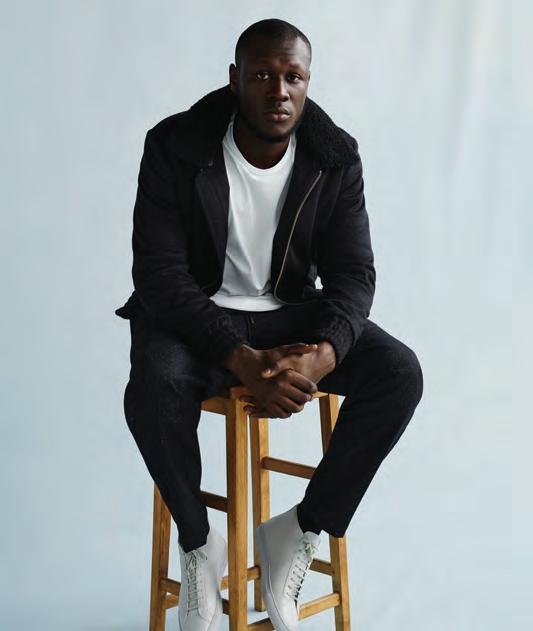
And we’re still evolving. Dance has followed rap into this space. The type of acts who were previously signing label deals no longer want to work in that way, they’ve become more interested in ownership than signing it over on the front end. So we’re very involved in that space too. We recently signed Camelphat, Sonny Fodera, Hybrid Minds and Franky Wah.
How has the sector itself evolved during that time?
Well, you know, honestly, it’s been around a long time. When I was at [PIAS] at the end of the nineties we were talking about how some labels needed quite a bit of help, and was it possible for us to provide more services. [PIAS] then started a division in the early noughties that was doing label service deals with artists.
Plenty of other labels will tell you they’ve always had acts on those deal structures: providing services, shorter deals, profit splits – a partnership model.
That’s existed for a long time, and I think what also happened around 10-15 years ago is you had some artists who, for one reason or another, were not signing a traditional record deal. 2008/9/10, all of a sudden there’s a reluctance in labels towards signing and investing in acts. They’re picking their shots a lot more carefully, so artists had to think of new and different ways of doing things, which changed the landscape for a lot of people.
And, of course, with technology, there are no barriers to putting a record out anymore. There have been many people enter the market who can provide options for people at every career level and who can pick and choose whatever level of service they want.
How much more competitive is it now?
Well, I would say the independent distribution business has always been rapaciously competitive. And as a result you have to have a high tolerance for partners coming and going in this sector, because it’s all short-term deals; everyone can potentially get up and leave at the end of a term for a variety of reasons. If you are not comfortable with that, you are going to get seasick very quickly. It’s just how it is.
The added difference now is that the three majors are a lot more prominent in these sectors, so there’s a bit more of an A&R
INTERVIEW 73
Stormzy
Central Cee
orientation. There is a lot of business built around fast-moving tracks, so now you’re into an A&R world, and it is competitive in that respect.
But it’s also competitive because artists have got a choice of whether they want to sign a record deal, or go to a distribution services company, or use DIY technology. So you’re not necessarily just competing with distributors anymore, you’re sometimes competing against frontline labels or tech companies too.
How does your A&R process work?
[Laughs] I’m not going to tell you how the sausages get made, but ultimately it comes down to whether we think it’s a good fit for our business and our offering. We know what we do, how we do it and what it involves, and we’re focused on providing that level of service to our partners and not diluting it by being too thinly spread – so we are quite selective.
Just as importantly, we’ve got to like the music, we’ve got to like the people, and there has to be the right level of commercial opportunity for us. Ultimately, this is what’s at the heart of the business, the core essence of what we do: we identify and exploit commercial opportunities.
When something does fit, and it’s a competitive environment, what’s the essence of your pitch?
Well, it’s not really a pitch deck approach. We obviously have some examples of what we do and how we do it, but there’s an energy about us in those situations, and when we want to work with somebody, when we come into the conversation, I think people feel that straight away. It’s an energy and passion and a belief in what we do and I think that’s a big part of why people choose to work with us.
And how has the perception of ADA within Warner changed? Is it fair to say it was something of an outpost when you joined?
It was beyond an outpost and off the edge of the map [laughs]. But artists were increasingly having success outside the traditional label structure, so there was a greater awareness everywhere that getting the distribution and services right was important.
And, as I mentioned, fortunately, in the first year of being here, we had a No. 1 single and album, top 10s, the hottest ‘unsigned’ act in the world on the roster, and we’d massively grown the company – so that helped.
Warner have been amazing. There’s been a great appetite to learn, engage, encourage. Max [Lousada] and Tony [Harlow] both have backgrounds with independents and are great supporters of the business. They not only see it as very important, but they’re both active in it, they both participate. And not just here, but globally, it’s grown everywhere. It has a much more prominent profile now than it used to, for sure.
Which projects have you been proudest of during your time here at ADA?
We’ve obviously had some great commercial successes, something like 30 Platinum singles, 30 Gold and Platinum albums, I don’t know how many No. 1 singles and albums, and I’m proud of them because they are all team efforts and we have a great team.
But what I would say I’m proudest of at ADA is the culture. There’s a way in which we do things that, when people join us, they sign up to.
As a result, we’ve got an incredibly strong team culture, very collegial, very collaborative, very creative, very supportive. And it’s flat in terms of everyone having a share of voice. We pick our people carefully and they’re all encouraged to contribute to the business.
Testimony to that is that over the last 10 years, I’ve seen a lot of people come and go – and some of those people have been big contributors to the culture – but when they go, the culture remains. Having established that in a business, something that people find rewarding, enjoyable and motivating – and the fact that it endures – I’m proud of that.
What’s the single most important lesson you’ve learned during your time in the business?
One of the most important things, and this is one of the things I preach here about our acts and labels, is: give a fuck. What are they saying? What do they want? What do they need? What are their requirements? How can we help them? You know, care, really care. Lean in, be passionate, bring value - before they even ask.
Because if you care, and are engaged, if you’re working to support them and meet their needs, it doesn’t matter if something goes wrong, because they know you care and are trying. The problem is if you’re disengaged or uninterested, and something goes wrong… then we have a problem
Would you say that the label services division of a major is the sweet spot for you in terms of your background, your skillset and your passions, the perfect place for an indie kid who loves to sell a lot of records?
I would certainly say this has been a great place for me to express myself. I’m not an A&R person, but in another way I am, because it’s always been about these [ears] with me.
If I hear something I like, and I think it’s an opportunity, I go after it. Great music, indie ethos, commercial sensibility – yeah, it’s been a pretty good sweet spot [laughs].
Has there been a career highlight? Not yet, it’s still to come... n
74
“You have to have a high tolerance for partners coming and going in this sector; it’s all short-term deals.”
ARE CREATORS BEING USED AS CANNON FODDER IN THE NFT GAME?
In my last column, I tackled the subject of Blockchains and their relevance to the music industry. I wrote that piece with a degree of apprehension, aware that I was poking the nest of a vocal and passionate crypto community.
As it happens, that article garnered nothing but positive feedback, with many grateful that the topic had finally been explained in terms they understood, and that the emperor had at last been called out for his lack of clothing. Emboldened by this feedback, I’m going to dial it up a notch and dig into the topic de nos jours, NFTs.
NFTs have quickly (briefly?) become a multibillion dollar thing (I hesitate to call it an industry), and there are a lot of heavily vested interests with loud voices.
For some creators, NFTs have been a godsend, a new way to generate revenue, and I certainly want to have no part in interfering with an artist’s opportunity to monetise their talents. To that end, I’m going to do what many commentators fail to do, and de-couple the revenue opportunity/ fan engagement aspects of NFTs from the actual technology and mechanics that underpin them. By doing so I hope to show that the two are not mutually dependent and draw attention to the many risks of NFTs.
Let’s start with the phrase itself - Non-Fungible Token. Many discussions on NFTs start with an explanation of fungibility. It’s a word/concept I first heard back in the late eighties as part of my Chartered Accountancy training. For a long time, the word wasn’t really used outside the finance and accounting community. It’s a fairly typical trick of the crypto industry to use arcane, professional terminology to add legitimacy to their latest offering: ‘immutability’, ‘ledger’, ‘disintermediation’ – lots of serious sounding words, but ultimately their use is akin to a politician quoting public school Latin to try and convince
you they are intelligent, when in fact all they have is a good memory.
At its simplest, a fungible asset is one that can be readily substituted by another. An ounce of 9-carat gold is a fungible asset because any one ounce has the same value as any other. Non-fungible assets, on the other hand, are unique and have a value that is unique to them. Whilst an ounce of gold may be fungible, a gold bar may not be, as the presence of hallmarks affords any one bar a special value to a collector due to its provenance.
One way to think of NFTs is to liken them to this gold example. At their simplest NFTs seek to add those Hallmarks to digital assets that are in all other regards fungible. Whilst the shift to digital has been very liberating, it has also had a very negative impact: due to being expressed as nothing but a sequence of ones and zeroes, any one digital asset is literally identical to any copy of it.

XXXXXXXX
PPL CIO and MBUK columnist Mark Douglas turns his attention, and bullshit detector, to the much-hyped but little-understood world of NFTs. It’s fair to say he has some questions…
“NFTs have become a multi-billion dollar thing and there are invested interests with loud voices.”
COMMENT 75
When your primary output as a creator is a digital asset, it is all but impossible to create differential value in any one copy. Whilst special extended mixes or remixes can be created and sold at a premium, the ease with which exact copies can be made and distributed globally undermines the ability to create proper value. Mechanisms such as Digital Rights Management have been deployed in the past to try and prevent this widespread copying, but they put too many barriers in the way for legitimate consumers and ultimately failed.
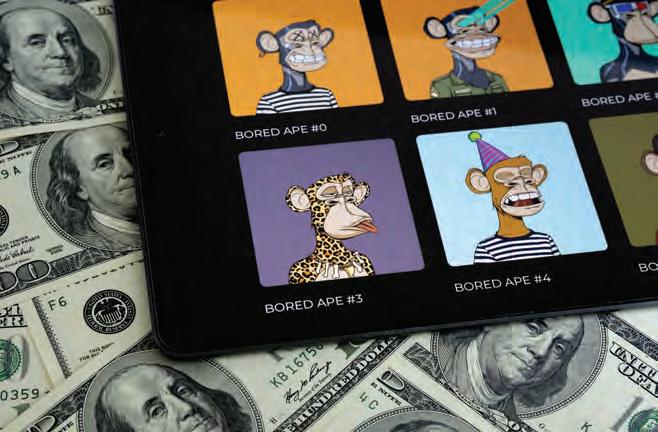
So how do you create that uniqueness in an otherwise fungible item? How do you create the digital equivalent of that limited edition, blue vinyl pressing of ELO’s Out Of The Blue that caused much excitement on my school bus back in 1978? The NFT solution to this is to produce not a special version of the asset, but to create a tamperproof till receipt (I actually now think of the T in NFT as meaning exactly that).
But I’m getting ahead of myself. Let’s back up a bit and look at the mechanics of NFTs, because things should then become clearer.
At the heart of NFTs are blockchains. As covered in my last article, blockchains are all about providing a tamper-proof, public ledger of data. Step one of generating an NFT is to add a ‘smart contract’ onto a blockchain.
If you are imagining that a large, wordy document full of legalese has just been created, you would be mistaken. As it happens, a smart contract is neither particularly smart, nor a contract.
A smart contract is lines of computer code that specify some basic rules to follow when someone wishes to transact through that contract – rules to determine whether any inventory is available, to calculate the unit price and issue a purchase receipt. Think of it as a robotic checkout assistant and you’ll be nearer the mark. In practical terms, a smart contract is a series of ‘if/when...then…else’ statements along with some arithmetic operations, like you would see in a standard spreadsheet.
The crypto world loves smart contracts because they further their ideological pursuit of removing the middleman from the making and recording of transactions.
The role of a smart contract in the world of NFTs is to determine the availability of the item for sale, to compute the price payable, and to ensure that (cryptocurrency) payment is made. The smart contract then creates the actual NFT token by creating a new entry on the blockchain, in a process known as ‘minting’.
Contained within that token is typically little more than the ID of the contract that created it, the crypto identity of the buyer and a unique identifier. You will note that the actual digital asset that was being ‘purchased’ is not in that list of items.
There is a good reason for that. Adding data to blockchains is an expensive process (literally hundreds of dollars per transaction, depending on the prevailing value of the relevant cryptocurrency), and the cost increases with the amount of data you are trying to add. So the NFT is, by necessity, as small as it can possibly be. It’s a till receipt with a serial number, the price paid, and the digital wallet identifier of the buyer.
But we’re not finished yet. There are still more steps involved in getting to the digital asset. The first of these is to use the ID held in the NFT, along with data from the smart contract that minted it, to generate a URL to a small data file somewhere out on the internet. That file (technically a small JSON format file) contains the name of the item that has been ‘purchased’, a description of the item and, finally, the actual URL that links to the digital asset.
Why have I gone to these lengths to explain how NFTs work? Firstly, I think doing so makes it clear that what is actually being sold is nothing more than a glorified till receipt. A till receipt that proves you were willing to pay for something that in most regards is freely available to all. Whilst the NFT itself is non-fungible, the asset to which it directs you is not and, to that end, NFTs create an artificial sense of scarcity.
“As it happens, a smart contract is neither particularly smart, nor a contract.”
76
Bored Ape Yacht Club NFTs have become hot property – and live on the Ethereum blockchain
Photo: SHUTTERSTOCK MUNDISSIMA
Secondly, I think it will have come across that it’s a pretty convoluted way of doing things. You can do much, if not all, that an NFT can do in much simpler ways. British Airways and Hilton Hotels have been offering privileged access to their lounges and the like for three decades or more with not an NFT in sight. Eventbrite and Ticketmaster have been granting VIP access to concerts and backstage access for years.
But my issues with NFTs don’t end there. With its total reliance on crypto technology, possession of the digital keys is instrumental if you are to derive any value from the purchase in the future. Lose access to your digital wallet and you have likely lost every NFT you have purchased. Ask the chap in Newport how it feels to know that the keys to your prized crypto possessions are on a hard disk, buried somewhere in the middle of a landfill site…
Compounding this technology risk, there is no one standard for NFTs. There are literally hundreds of NFT marketplaces, and they all adopt slightly different approaches and use different underlying platforms. Many rely on the Ethereum blockchain, but not all.
The long-term viability of the underlying technology is critical if the buyer is to derive value in the future. Whilst they may still have access to the digital asset, as set out earlier, the value lies in the provenance provided by the blockchain-based receipt. If that blockchain ceases to exist, the value in the NFT disappears with it.
If these technology risks are managed, a further cause for concern is that trading in NFTs requires the buyer to embrace cryptocurrencies. As well as exposing them to all the price volatility risk that this entails, it is potentially discriminatory in that it denies access to those of lower economic standing.
These things in combination cause me to question whether this is the right way to engage with and monetise a loyal fanbase. The NFT landscape is a complex place with a great deal of marketing spin and hyperbole. If you are thinking about getting on board with NFTs, are you doing it for the right reasons, and have you thought through the long-term implications for your brand and for your fans? Or are you being played by big money backers that are desperate for their NFT platform to succeed?
You see, as I covered in my Blockchain piece in the last issue, the ideological objective of removing the middleman is a fiction; your average creator has no more chance of creating a smart contract
and uploading it to a Blockchain than flapping their arms and flying.
There is a reason that marketplace platforms like OpenSea and SuperRare have risen to prominence. Someone needs to be there with the tools and templates to make it all happen. Middlemen they are, and they charge a fee for their services, just like traditional third-party service providers. Becoming established as one of the leading platforms is a high-stakes game with some very big players. Are creators being used as cannon fodder in this game?
But above all, my issue with NFTs is that in the rush to jump on the bandwagon, the ‘creative’ space has become littered with people generating art and music with little to no effort – throwing random datasets at artificial intelligence routines and leaving them to come up with whatever.
This pains me, as it fundamentally devalues the creative process. When Geraint Thomas recently tried to launch an NFT of computer-generated art based on the power data from some of his biggest career wins, he was met with general derision from his fanbase and the wider cycling community. I fear not all fan bases are so clear in their feedback and get duped by those seeking to make a quick buck. I personally don’t think that’s a good look for the music industry.
Don’t get me wrong, I know that monetising talent in this overcrowded digital world is difficult. And there are many aspects of NFTs that I find intellectually stimulating. If the buyer of an NFT genuinely understands what they are buying, and the risks they are taking, then who am I to question whether or not there is real value in what they have purchased.
I can question all I like why someone would pay potentially millions of dollars for a glorified till receipt that gets you access to the very same item that the rest of the world can have for free. But is this any different from a collector spending hundreds of thousands of pounds on a designer brand Swiss chronometer that will likely have cost only a few hundred pounds to manufacture and tells the time no better than a £5 digital watch?
The reality is that the value of something is not a matter of fact. An item is worth what someone is willing to pay for it. As people spend more of their lives in digital worlds, perhaps it does make more sense to have a digital bragging token than a fancy car or watch that very few will ever see. In closing, and to quote my own bit of Latin, perhaps the real answer to all of this is simply caveat emptor
XXXXXXXX
“You can do much, if not all, that an NFT can do in much simpler ways.”
77 COMMENT
WHERE DID ALL THE MESSINESS GO?
In March this year, I interviewed the musician David Ford about the two albums (May You Live In Interesting Times and Love and Death) he was due to be releasing later in the year. In the midst of a conversation about Covid 19 –Ford has written a song (2 Shots) about the Astra Zeneca vaccine – Ford told me that, “the success or failure of my work is done when the record is done. All the rest is marketing.”
Of course, when I enquired further as to what Ford meant by this, I realised I’d struck a nerve. In 2005, Ford’s debut release, I Sincerely Apologize For All The Trouble I’ve Caused was a Sunday Times Album Of The Year, and by the time Ford got round to recording his second album, two years later, he was, according to Columbia Records, ‘the next Bob Dylan’.
“But everybody hated it”, Ford told me, “so since then, for the sake of my own happiness and sanity, I make music for my own ends, and no one else. It is important that the music gets made, but fame and wealth do not concern me. And you can forget about social media, streams or the internet.”
Notwithstanding the fact that Ford may have been running from an unlikely confederate of media dunces – now even more of an unlikely prospect since the first of his 2022 releases, May You Live In Interesting Times immediately became another Sunday Times Album Of The Week –Ford’s sentiments certainly resonated with me. For, at the risk of sounding like a curmudgeon, I’ve known for quite some time that once the record’s done, all the rest is marketing.
In my first book, Lunch With The Wild Frontiers: A History of Britpop and Excess in 13 ½ Chapters, I claimed to have accidentally invented Britpop, since my press company, Savage and Best, represented nearly every band in that particular movement – well, 62.5 % of them, at any rate – including Suede, Pulp, The Verve, Elastica, Spiritualized, Menswear, Marion, Ultrasound, Longpigs, Echobelly, The
Auteurs and Black Box Recorder. I could go on, and frequently do, but naturally, I was forced to this conclusion by a set of circumstances perhaps beyond my control.
When I first started out as a publicist, I got paid £50 a week for Doing Gossip For The Shamen – you should try putting that on your CV, it really makes a difference – before progressing to orchestrating movements like the Grebo scene, featuring my newly-acquired clients, Gaye Bykers On Acid, together with my non-clients, Pop Will Eat Itself, the Bomb Party and Crazyhead.
From there to something called The New American Invasion, featuring bands like Jason and the Scorchers, the Long Ryders, the Rain Parade and my very own press charges, Green On Red. Correspondingly, as soon as I commandeered my first Melody Maker cover for Green On Red, I remember thinking: so this is how it works.

78
PR is dead, muses legend-of-the-sector-turned-author, Jane Savidge. It has been replaced, she argues, by a mixture of marketing and mathematics that leaves very little room for creativity, let alone anarchy…
“A hundred magazine covers later, I was in my element... and then something changed.”
And so, my love for movements – particularly ones I could lump all my bands into – was born. Four Music Week Awards, several years, and, in the case of Suede, almost a hundred magazine front covers later, Shoegazing had become The Scene That Celebrates Itself and The Camden Scene had long since morphed into Britpop. I was in my element … and then something changed.
On July 16th 2002, Suede were due to launch their fifth and possibly final album, A New Morning, with a ‘secret’ show at Camden’s Electric Ballroom. The show was superb, and I thought songs like Obsessions and Lost In TV were as good as anything I had ever heard by the band. I was excited to be working on a new press campaign, imagining all the fun I would have, pitting one magazine against another.
After the show, I hung around in the foyer, soaking in the atmosphere with the rest of the diehard fans who’d been waiting for a new Suede record for as long as I had.
COMMENT
“Excuse me,” said a voice from behind me. I turned around and saw that the voice belonged to a boy barely out of his teens. “I wonder if you can help me?”
“Sure,” I said, “what’s the problem?” The boy tapped his foot before producing a notebook from the satchel he was carrying over his shoulder. “Do you mind if I ask you a few questions?” he enquired, tentatively. “No,” I said, “fire away.”
The boy looked down at his pad. “What did you think of the gig?”, he said. “Amazing”, I replied, “one of the best gigs I’ve ever seen.” The boy wrote something down on the pad.
“What about the new songs?”, he said, “do you like them?” “Yes,” I replied, “excellent stuff, they’re on top form.” The boy scribbled something else down.
“What about your friends?”, he continued, “did they like the new songs?” “I think so,” I said, “but I haven’t had a chance to talk to anyone since the gig finished.”
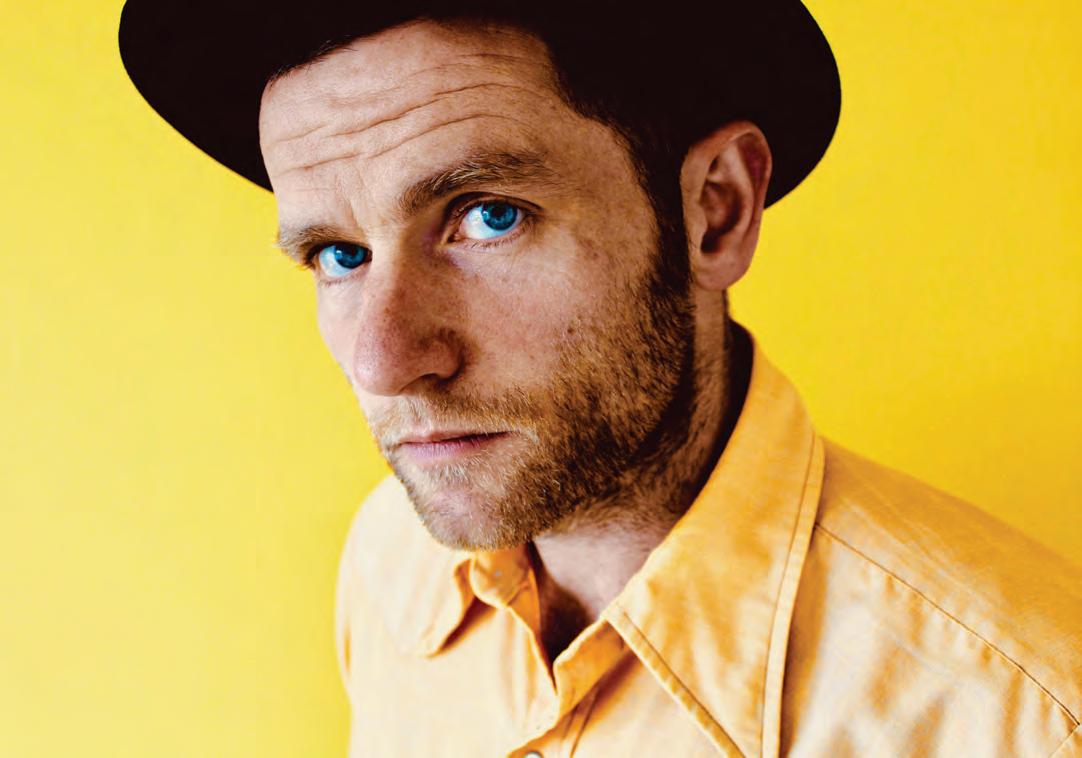
XXXXXXXX 79
David Ford
By now, I had started to feel concerned, since the boy seemed to be writing down every single word I uttered. “Look”, I said, “I’m not being funny, but I’m probably not the best person to be answering questions about Suede. I’ve seen them live about a hundred times, and I’ve been their publicist ever since their first single. Why are you asking me all this?”

The boy looked at me for a moment, as if deciding on his next course of action. Eventually, he said, “I work for a marketing agency, and we’ve been employed by the New Musical Express to find out what young people think of the new Suede record. The results will determine whether they decide to give the band any coverage or not.”
Naturally, my heart sank: with the help of this young charlatan, I no doubt thought at the time, I am finally surplus to requirements. And then, as I sought solace in celluloid comfort food, specifically the denouement to the best film ever made, Withnail and I, when Withnail’s drug-peddling chum, Danny, laments the end of “the greatest decade”, the sixties by musing ‘They’re selling hippie wigs in Woolworths, man’, I imagined PR surviving as some kind of intangible noblesse oblige, the haves and have nots fighting it out to see who would remain most relevant.
Of course, two-and-a-half decades on from Britpop – and five-and-a-bit decades on from the era in which Withnail and I is set – they don’t sell anything unless you’ve already ‘bought’ it first. Woolworths has long since ceased trading, and the NME is now a music, film, gaming and culture website and brand.
I am not big or clever enough to suggest that I could have done anything about these impressive developments, either then or now, but perhaps, that’s where market research gets you in the end.
And herein lies the rub: I can’t tell you how many super-talented musicians and artists have turned up on my doorstep in recent years, all claiming to be The Next Big Thing.
Naturally, I am convinced that every single one of these musicians and artists is as supertalented as the next – and certainly as supertalented as anyone I have ever met over the last two-and-a-half decades.
But circumstances now dictate that each one of these artists must turn up at a record company – or, in my case, my doorstep –
clutching an iPad, which, on closer inspection, proudly illustrates a series of Venn diagrams and spreadsheets indicating the key areas in which they are keen to expand marketing opportunities moving forwards.
By which I mean to say, where did all the messiness go? I am old enough to remember when you could call a newspaper and pretend there had been a riot at one of your band’s gigs the night before. A simple phone call from the news editor to a regional promoter intimately involved in proceedings – actually a friend of the band with the appropriate accent – would confirm the nature of the riot, and result in a news piece, even though there was hardly anyone at the gig in the first place.
Naturally, that’s not really my point, but when your artists complain that they can’t get their record played on the radio because their Facebook and Insta profiles and numbers don’t match the station’s demographics, you can blame it all on that kid I met outside a Suede gig in 2002. In other words: the success or failure of my work is done when the record is done. All the rest is marketing.
Jane Savidge is the author of Lunch With The Wild Frontiers: A History of Britpop and Excess in 13 ½ Chapters. Her new book, Here They Come With Their Make-Up On: Suede, Coming Up … and More Adventures Beyond the Wild Frontiers was published in April this year.
“You can blame it all on that kid I met outside a Suede gig in 2002.”
Suede
80
VISIT MUSICBIZSTORE.COM
Fierce Panda founder Simon Williams has written a book, Pandamonium! How Not To Run A Record Label, which is a life story, a near-death story and a very funny self-destruct manual from the indie frontlines. Here, he shares an extract and then switches things up by explaining how to actually run a record label…
“Inever intended to run a record company. Nobody does. Like any other slightly grubby latchkey kid growing up in the 1970s I wanted to be a footballer, or a racing driver, or an astronaut - Tottenham Hotspur warhorse Steve Perryman strapped into a John Player Special Lotus 72 wheel-spinning on the Milky Way, perhaps. The usual.
Even up until my late twenties, my so-called career prospects still revolved around music journalism, radio presenting or gig promoting. Truth be told, even after Fierce Panda started, for the first couple of years it was little more than a hobby, a curio, a gentle distraction from the day-to-late-night-to-day procession of gig bookings and gig reviews and just general gig-out giggings.
Oh sure, it all started with fun and lager. In 1994 Fierce Panda was launched on a ning and a prayer by three music hacks very much lurking in the pre-Britpop indie undergrowth. There were some chirpy six-track compilation EPs, with cheeky bands like Ash and Green Day and Supergrass. Then we went a bit punk rock, with a small ‘p’ and a wee ‘unk’. Then we got fixated by Suzi Quatro living in Chelmsford. As you do.
Then, in 1995, we almost sullied the nation’s Top 40 furnishings with the sweariest fucking single release since Killing In The Name, thanks to a couple of chaps called Noel and Liam. And then, in 1996, everything started to go very, very mad. By which point it was too late. Way too late.
Because the tragic truth is, you don’t choose to run a record company, the record company chooses you. It sizes you up, checks you out, susses the cut of your indie jib. Then, like some immense parasitic wasp that you only seem to ever hear about on the more gruesome sections of the QI televisual programme, it invades your very being. I’ll spare you the grisly details, apart from these: ‘When the baby wasp is born, it eats the cockroach alive from the inside, in a special order, to keep it alive for as long as possible, because the meat goes off very quickly.’
At first, all is serene. You are in control. You name the label, nurture it, cuddle it when it looks a bit sad, inject it with new music when it looks a bit forlorn. You take it to gigs, buy it beers, introduce it to friends. And then the label begins to gain confidence. It starts helping out, making cups of Yorkshire tea (other brands are available, but they’re not quite as good), nipping down to the shop for snacks, carrying you home from the pub. And then one day, you wake up and you realise, to your absolute hungover horror, that the label is in control.
From a cheeky little in-joke with a daft name releasing one record as a tribute to a batshit scene, you suddenly have a catalogue of over 500 singles and 130 albums. You have a label roster heavingly full of 12-and-ahalf acts. You have nine tracks, three albums and one T-shirt coming out before Easter Monday, and it’s now February 24th. You have a release schedule which is longer than Peter Crouch’s long chaise longue - it’s never-ending. Not only that, but the label is running you ragged with its insatiable appetite. It wants more bands. It wants more songs. It wants more nings and nangs and nongs. It wants your soul. Feed me. Heed Me. Bleed me dry.
You are helpless, hapless, hopeless. That lovely little label you used to run is now running you. Running you right into the fucking ground.”
You have been reading an exclusive extract from Pandamonium! How Not To Run A Record Label, a book I never planned to write about running an independent record company which I never intended to run. How very curious.
Even more curious is the casual observation that one of the main themes running through the book is how surplus to requirements I’ve always been throughout my so-called career: I started a fanzine in the middle of the eighties, when you couldn’t move for DIY mags; joined the NME in 1988 when a buoyant music press was
82
‘IF I HELD GRUDGES AGAINST EVERY BAND WHO HAD SLIGHTED ME OR REJECTED MY SO-CALLED A&R CHARMS, I WOULD BE THE GRUMPIEST MAN IN SHOWBIZ AND NEVER LEAVE THE HOUSE’
“One of the themes of the book is how surplus to requirements I’ve always been.”
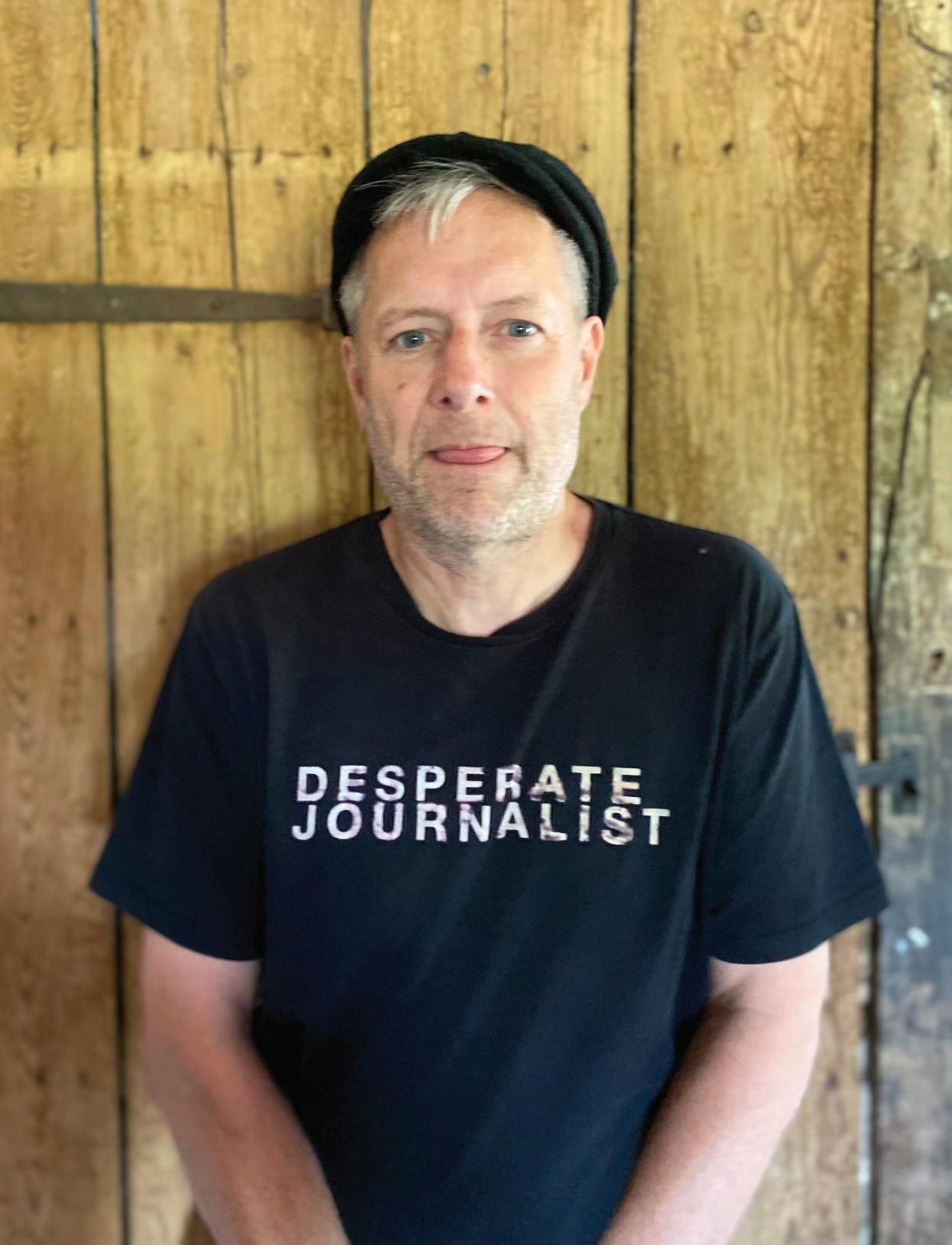
overrun with terrific indie writers; started a label in 1994 when you could barely get a Rough Trade wriggle on for all the record companies chucking out seven-inch singles.

Predictably then, the Pandamonium! opus arrives smack bang in the midst of a blizzard of brilliant new music books by writers like Ted Kessler, Gordon King, Miki Berenyi, Ian Winwood, Nige Tassell and Nick Duerden, all of whom have delivered battered memoirs or collections of tattered memories.
Crucially, they also signpost a new era for music literature, one which goes beyond the bog-standard rock hagiography and intellectual historical overview in favour of a rawer, more personal touch. They show the music industry from the inside out...how not to be a journalist, how not to be in a band, how not to survive the music industry, how even not to survive C86.
Pandamonium! How Not To Run A Record Label fits that modern literary pattern perfectly. It features all the Panda smash hits, all the stories about working with Coldplay, Keane and Oas*s, but it also relishes glaring at the utter lunacy involved in digging away at the underbelly of the music business for over 30 years and gets darker than the dark end of a really very dark street.
Anyhoo, that’s all in the Pandamonium! book. But, rather than drone on and on about the gently tortured tranquillity of solitude inherent in running a record label, or rage against the furious injustices of operating a business on a budget similar to that of the wages of a Chicago shoeshine boy from 1934, here is an exclusive extract from my mind about how to run a record label.
Employ a Really Good Right-Hand Person
Over the course of 28 years, Fierce Panda has employed no more than six label managers, including my original business partner, Ian from Damaged Goods.
A good right-hand person has the patience of a pale saint, an ability to understand why and indeed where their boss is when he isn’t at his desk (i.e. in the pub), and a talent for gently taking that label boss to one side and suggesting that perhaps we don’t need to sign another three new acts right now, or maybe we shouldn’t spend 189% of our annual income on that one berserk new signing, or possibly even that it’s time for him to come back from the pub and do some proper work.*
Go to Gigs
When Fierce Panda was a wee cub we’d see A&R people everywhere, at live shows, in the pub before live shows, in the street after live shows...you couldn’t move for them. Nowadays it seems that a lot of A&R action takes place in front of computer screens as A&R ScoutBots track hot new acts who are blowing up on TikTok rather than blowing away a wee crowd at the Dalston Victoria.
This is the modern world and I am in no way denigrating the ScoutBots or their TikTok explosions, but it is still sad to see.
Gigs remain very much the epic epicentre of everything for Fierce Panda, where you can feel the cut of the jib, hear the quality of the live sound, sense the shoeshine shuffle of the bassist. Plus, if the band is totally rubbish you can just go to the bar.
Put on Gigs
If going to gigs is fun, actually putting them on is even funner. My first live show was The Farmer’s Boys and The Higsons at The Lyceum in 1982, so by the time Fierce Panda was born I’d been hitting the gigging tiles for 12 years, purely as a spectator.
Then for the Shagging In The Streets EP – our first ever release – we put on our own amazeballs launch party at The Powerhaus in Islington, and from that day on I was hooked on part-time promoting.
Since then I have been involved in Club Spangle at the Dublin Castle, Club Panda at the Bull & Gate and Club Fandango all over London Town.
Even now I help run a monthlyish night at the excellent Dream Bags Jaguar Shoes in downtown Shoreditch, because it gives us a regular show for our own Panda bands to launch records from and it gives us a chance to secretly check out possible new signings’ cultural and behavioural merits above and beyond their live performance. Will they turn up on time? Will they be nice people to deal with most of the time? Will the drummer be able to find the toilet in time? And do I put out records just so I can put on more gigs all the time? Quite probably, yes. So many questions, always answered.
84
“It seems that a lot of A&R action now takes place in front of computer screens.”
Be Nice to People…
…No matter how much of an utter arse they are to you, because a) you’re bigger than they are, and b) you’ll bump into them next week in Dalston, or you’ll find yourself reviewing their new single on Roundtable next year, or the association could come in very handy in the next century or so.

If I held grudges against every band who had slighted me or rejected my so-called A&R charms or left us to sod off to another label, quite possibly without actually ever bothering to tell us, I would be the grumpiest man in showbiz and never leave the house. As it stands the one band that has done more promo than anyone else for Fierce Panda’s Pandamonium! book hasn’t actually been on Fierce Panda since the summer of 1999, but they [Coldplay] still gave us a shout-out to 51,000 marginally bewildered Glaswegians last month. Nice.
Live the Dream
Another recurring theme in the Pandamonium! book is big business people not wanting to work with Fierce Panda, but wanting to be Fierce Panda and seeking to embrace the glamour and the glory of finding new bands and building them up from the gutter to the stars. Bobbins on a plate.
I realised almost a little bit too late, i.e. five minutes before the COVID lockdown, that the ‘glamour and the glory’ of being
Fierce Panda pretty much involved trawling around the rainsodden wilds of East London feeling compelled to check out halfarsed bands playing half-formed melodies in half-full venues. Is it something that made me feel proud and self-righteous? Not really. It just made me feel sad and a little bit damp.
Thankfully, even I find myself getting over, well, myself nowadays and while the lure of the toilet circuit is still strong –the Shacklewell Arms really is on fire at the moment with their bookings – already this year I have been entertained alongside the singalong masses at places like Wembley Arena, Stadium MK and Hampden Park. If there is a moral in the Pandamonium! book it’s that you really can be too bloody indie for your own good.
Ipso facto, Still to Gigs, Kids ...just not the rubbish ones.
* total bollocks of course - all the best indie label work gets done in the pub.
‘Pandamonium! How Not To Run A Record Label’ by Simon Williams is out now on Nine Eight books.
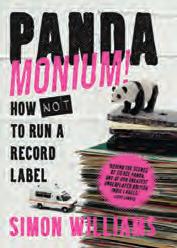
85 FEATURE
Keane
Autonomy is celebrating 15 years in business, working with clients ranging from Ball & Boe to Yungblud along the way. Having recently re-branded as Autonomy Management to reflect just some of the changes the company has undergone in that time, founders Richard Engler and David Rowell trace their journey and explain their philosophy…
15 years ago, what were you doing, how did you get together and what were the founding principles of Autonomy?
Richard Engler: I was working at V2 Records, Branson’s label, and David was at Echo. This was around 2001/2. The two companies worked together on a series of compilation records called Acoustic
It was a case of two catalogues are better than one, and putting the V2 and Echo catalogues together gave us some really good repertoire – it was Stereophonics doing an acoustic cover, Feeder doing one, spinning off into the catalogue and then spinning off further to other independent labels.
It worked really well as a concept – we probably did a million [sales] across the different titles. David was heading up marketing at Chrysalis, I was heading it up at V2 and that’s how we got introduced.
David Rowell: Fast forward a couple of years, and obviously V2 and Echo suffered a very similar fate – spend like majors, earn like indies.
I decided to resign because I was getting a bit disillusioned with the whole thing. My boss at the time, John Chuter, said, ‘I don’t want you to go. We’ll give you a pay rise, but we’ll also give you a day a week to do your own thing.’
Ultimately, I just wanted an outlet. I wanted to be able to choose some projects, and the first three were Robyn, Nizlopi and Mylo. We had two No.1s out of them.
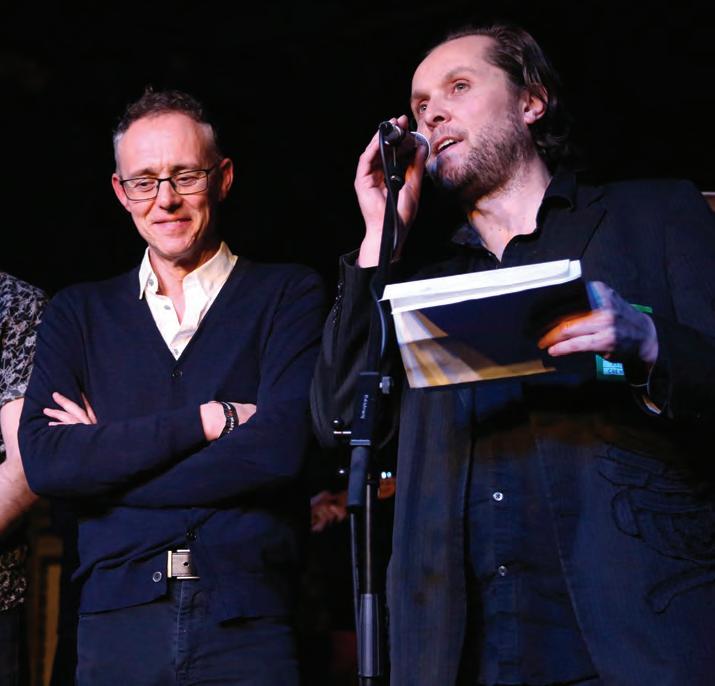
Rich left V2 and was covering maternity leave at [magazine publisher] EMAP. We went for lunch at Carluccio’s and I said to
him, ‘Just come and do this, it’s great.’ By this point, the writing was on the wall at Echo and eventually the label downsized and I was a free agent. That was the thing that started it all.
When we started, we were providing a kind of safety net. Everything was changing. Loads of bands were dropping out of the big labels and looking for structure. At that point, we were a
product management team. We gave it a name, Vicious Music, got an office in the Shaftesbury Centre on Barlby Road and hit the ground running.
We got a lot of stuff very quickly. I left Echo on a Friday and became a consultant for Feeder and Moloko on the Monday. That came into the business. The plan was, at that point, to provide an independent marketing service.
86
‘THE CLIENT CAN WALK AWAY IF THEY DON’T VALUE OUR OPINIONS, BUT THEY WON’T RESPECT US IF WE JUST SAY “YES” ALL OF THE TIME’
Richard Engler (left) and David Rowell
RE: It was very much David’s idea. I suppose, in record company terms, we started off as the marketing department and then quickly realised that we needed to be the live agent, the lawyer, manufacturing, production, everything.
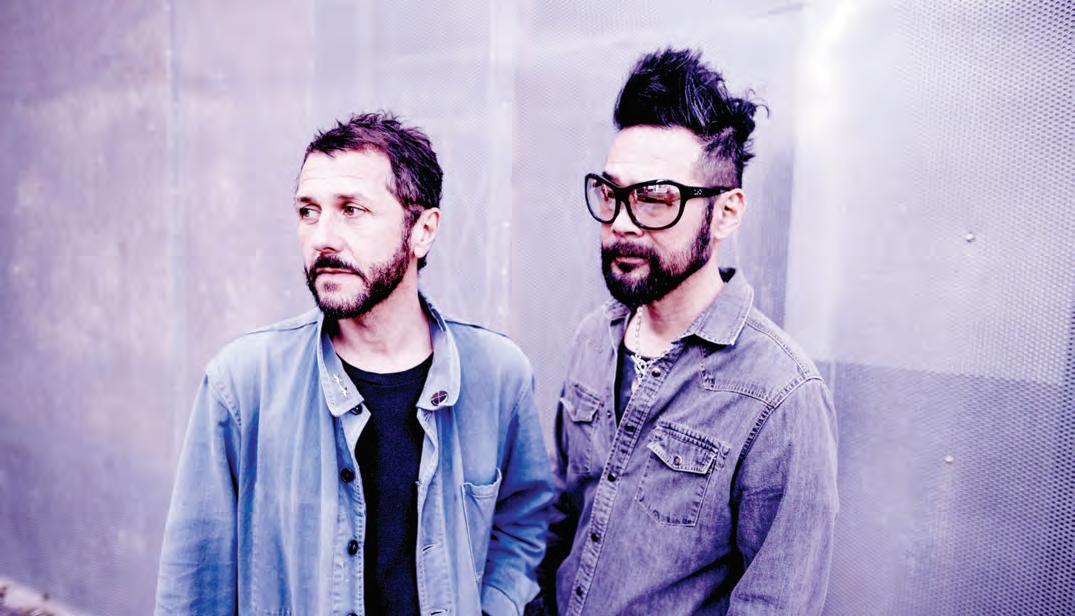
DR: I think what I was looking for when I left Echo was variety, and to be my own A&R person. And to find someone like Rich meant finding someone who took it as seriously as I did.
Who were your first clients?
DR: As I say, Feeder and Moloko essentially came with me from day one; we worked with RAK and Sony ATV Publishing early on; I was still working with Echo, which also allowed us to work with various other areas of Chrysalis. We were also both doing projects for Pinnacle and 19 Management.
There was a real excitement. It wasn’t just a case of ‘person with money has band, needs marketing team’, it was a mixture of publishers, management companies,
record companies, independent wealthy financiers…
RE: There was Decca, Dramatico, and then a load of other independent labels.
What was the competitive landscape at the time in terms of winning clients?
DR: Distributors at the time were kind of coming at it from the angle of ‘Oh we
work on any of those things – we weren’t genre specific.
Can you talk a bit about the different relationship between label:artist and services company:artist - and how that affects that dynamic?
RE: I think we have always had the humility to be a client-facing business. The record business isn’t necessarily client-facing, it’s very much looking in the mirror, and the relationship between labels and artists is an interesting one.
have a marketing side to what we do’, but really it was a completely new world and there was ample work out there for an independent.
From the off, we could work on a classical project, we could work on Boe & Ball, or Ray LaMontagne, we could
At times, we’ve had to do the same job we did at labels, but we have a totally different relationship with the artist or client. We’d have a meeting at the label with an artist, big or small, and they’d almost come cap in hand asking how we were going to make their records work.
Conversely, coming at it with the client at the forefront, as we do, the artist comes to us with the means to do something and we’re beholden to them, if that makes sense. Having that mindset is how we’ve kept going.
FEATURE 87
“I think we have always had the humility to be a clientfacing business.”
Feeder
Who were the artists, labels and projects that really changed the game for youin terms of scale, remit or how you were perceived?
RE: Communion was a big step up for us in 2010. We moved to an office in Camden and started working with some people there.
We got a liaison with Communion, who hadn’t put any records out at that point. They were pretty much starting out. It was Ben Lovett from Mumford; Ian Grimble, the producer; and Kevin Jones from Bears Den.
They were just about to put out their first album – a double vinyl LP with Mumford, Daughter, Laura Marling, Jay Jay Pistolet… it was phenomenal when you look back at who was on there.
We became their marketing department from their very first release. We were essentially running the label with Kev as A&R. I was literally writing cheques, doing the accounts, doing the marketing. That was just great because of the talent that was coming through and the gigs they were putting on: Ben Howard, Michael Kiwanuka…
We even invested in Communion, David and I. We had a series of concerts set up at a venue called The Flower Pot in Kentish Town – seven days of gigs, sessions, recording the whole lot. It was an incredible thing, but the financiers pulled out, so me and David put money in to make it happen. I don’t know how many acts did it in the end, but it was the Mumfords, Julia Stone, Michael Kiwanuka, Damien Rice, Passenger, Staves… We then got a deal with Universal for the release that came out of it at the other end.
So, Communion was great because we were running a label in effect, which really expanded my knowledge base, personally. And it was the point at which we grew up a bit, in a way, seeing that we could do more than just marketing. Communion was a great place to work, full of great people and it’s been a calling card for us ever since.
How did the rise of streaming affect what you offered and how you operated?
DR: The industry buried its head in the sand for a good few years before it realised that streaming could be beneficial. As with all the changes the industry has seen over the past 30 years, we adapted our business model and our knowledge base to confidently step into a new era for us and the record industry.
When and how did you get involved in kick-starting and A&Ring projects rather than just working with existing ideas/ finished product?
DR: Shortly after the Communion thing, and with the confidence we took from that, we worked with Tony Christie, which was fascinating. We had Don Letts come into the office one day looking for projects for his production company and then, the following day, Sean Fitzgerald, Tony
creative - creating products as opposed to just marketing a product. That was the door we were starting to open.
We realised that, actually, you can A&R in a marketing way. We had a sense of what could work. It’s a beautiful record that still stands up today.
How did you get into artist management and how big a part of the company is that now?
DR: I’d been working with Feeder for 20 years by 2015 and we kind of moved over from being the marketing team to being the management team, alongside the existing manager, Matthew Page, and Darrin Woodford, who was the original A&R guy at Echo.
I guess it was an extension of loving the band, having had a lot of success with them and creating a financially stable model with them outside of the majors. Alongside Darrin we facilitated all of the record deals for the band from 2015 to 2021.
Christie’s son, came in with some covers that Tony had been doing.
We got on really well and had a conversation about funding an album of covers. Tony is from Sheffield and it transpired that Creative Sheffield were potentially funding projects, so we came up with the title Made In Sheffield and it snowballed from there.
Tony and Sean had a conversation about doing tracks like Coles Corner by Richard Hawley. It turned out that Hawley wanted to work with Tony. That led to Hawley recording and producing the whole record with the band and Tony. In essence, it was a covers album but it got 9/10 in the NME, 4/5 in The Guardian; it was a seriously good record. And we made a documentary with Don Letts, which we got funding for as well.
So, that allowed us to do a total campaign and, after Communion, what we took from it was allowing ourselves to be more
One of my big passions is Damien Dempsey – somebody who I’ve been a fan of for many years. I’ve managed Damo for five years now, alongside his producer, John Reynolds. It’s amazing what we’ve been able to do and earn a living at the same time. For me, what we do is a lifestyle choice, and the management side is something that I genuinely enjoy.
In a broader sense, we were trying to continually fulfil our ambitions around how the company should appear. We went through various different things: we set up the digital department, the creative department, artist management, campaign management, which has always been there.
Ultimately, what we are is a modern management company. Over the last year or so, when we looked at rebranding, it became clear that that’s the essence of what we do: we manage in various aspects of the business and they all coexist together.
Some companies have all of the same elements within their business, but they’re not set out like this. They might have a distribution front with a suite of services behind it; we’ve got distribution in the
88
“We know that our artists are making records that mean something to them.”
background and a suite of services in front of it. Ultimately, it’s a strong sustainable business and I still think we have massive opportunity to grow.
Why would an artist/manager/label choose Autonomy over a competitor?
RE: I think it’s down to the client relationship and the people. We’ve got a fantastic team here. If you want to be on a roster with big names, it’s probably not us. But if you want to know that someone’s going to take you seriously and be at every photo shoot, always available for advice, and up for a chat about life in general, then that’s where we’ll fit in.
Managing artists is a different skill set. When you’re sitting opposite an artist that you manage, you’re both thinking, ‘Where’s my dinner coming from? Who’s going to pay me?’ That’s a totally different relationship to when you’re in a marketing meeting at a large label.
We know that our artists are making records that mean something to them. If
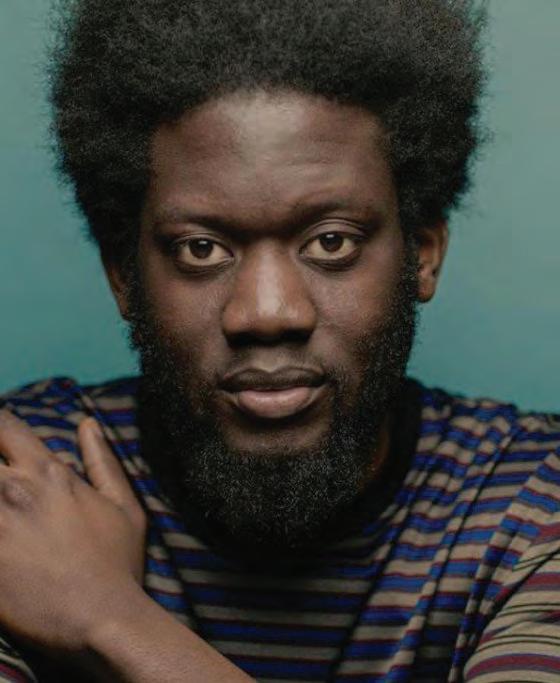

their record isn’t successful, it’s them that isn’t successful – we understand that. That’s an important part of what we do: having that understanding, which comes from managing artists, and being able to transfer it to every other aspect.
DR: We are more boutique and it is about those relationships. We still have the relationships we had in the nineties.
How do you complement each other, both in terms of skill sets and also personality/temperament?
DR: Right at the beginning, I remember, I was always so impressed with Rich because he wrote everything down. He had all the charts and the midweeks in his diary, and I didn’t.
We both had that independent spirit as well – he liked The Clash, I liked The Pistols, it was a match made in heaven, really. We’ve actually never argued. We get on very well. That creates a solid base in the company.
RE: We flip the good cop/bad cop routine – under our nice guy image we can both still be honest and direct with our clients. We also finish off each other’s sentences (and campaigns, if necessary). It means there’s always a fresh opinion or idea.
We split the roster between us, but both of us are across everything. We both appreciate the young members of our team, and are 100% open to new thoughts and perspectives. Don’t try and kick my playlist off the office stereo though!
What’s the key to not just a harmonious relationship with an artist but also a successful and long-lasting one?
DR: Honesty, integrity and authenticity
RE : What he said. There are often no right answers, but you have to avoid the wrong ones. As long as there’s momentum, creativity, and communication then things go well. And a sense of humour – clients who can’t laugh at us and themselves at least once in a campaign are hard work.
89 FEATURE
Michael Kiwanuka
Jamie Cullum
How do you think the relationship between artists and (major) labels has changed over 15 years and how has that impacted you?
DR: The industry is unrecognisable from its form in the early noughties. I think largely the artist and team comes in with a pre-formulated plan now.
Artists are far more adept at setting out their creative stall before they sign to a label of any type. The changes have benefited us from a business perspective. We are in charge of our own destiny and can set individual parameters for individual campaigns. We have been able to grow as the industry has reformulated its method of working.
RE: I understand the ‘come back to us when you have a fanbase’ attitude of labels – that’s where we can fit in. I worry about it in the long-term – where will longevity come from if everything becomes songfocused, and songs become shorter to fit TikTok, and consumption is as disposable as fast-food? Where does the artist fit in that equation?
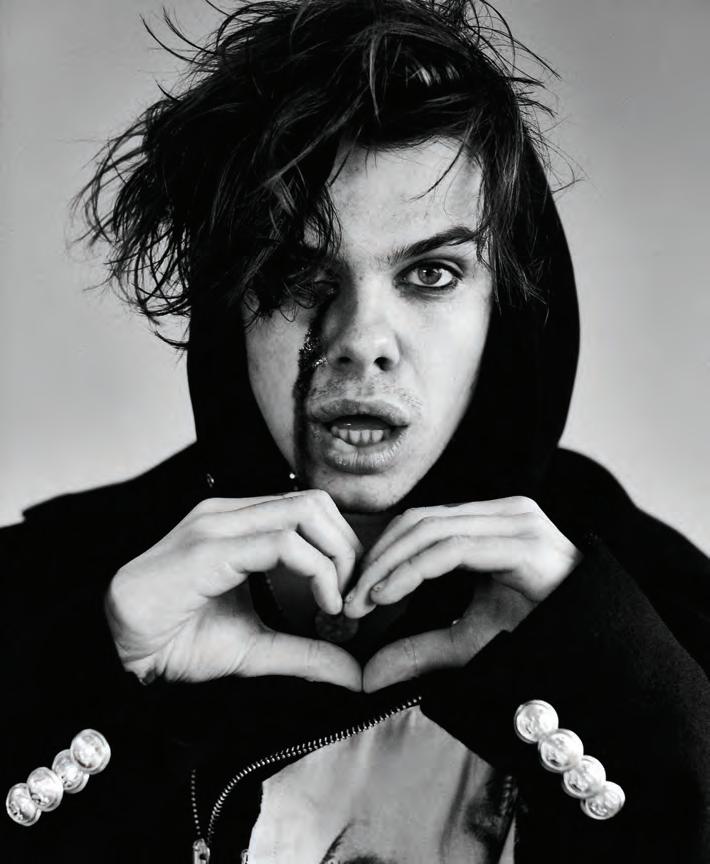
What has been your proudest achievement in the last 15 years?
DR: There are so many. Lots of our staff have gone on to senior positions in the industry and that makes us very proud. We have an excellent young team currently and I’m excited to see how we grow over the next few years. My friendship with Rich is possibly my proudest achievement of all. He is the best in the business.
RE : I think the answer’s in the question. 15 years!
What are you currently working on/ about to start work on?
DR: The beauty of Autonomy is the variety. We are just starting to work with Starsailor from a management perspective. James Walsh should be a songwriting national treasure. Their new album is their best yet. Damien, after the success of the film Love Yourself Today, has a one man show in Dublin. We are just formulating the plans for that for early 2023.
RE: A mad mixture of new and old, mainstream and niche.
What are your ambitions over the next five years?
DR: Good health and happiness. And for Wolverhampton Wanderers to win the Champions League.
RE : I’m really looking forward to letting the young members of the team shine.
If you could offer some advice to yourselves when you were starting out 15 years ago, what would you say?
DR: Enjoy the ride. I remember an old boss suggesting that knowing the old
industry could be a hindrance when trying to adapt to how it is now. I totally disagree. I think the industry is in an incredibly healthy state.
There is so much creativity at all levels and I love the independence and the ability to be fleet footed here at Autonomy.
RE : I’d say don’t be afraid to be honest. If a project could be better, say so. The client can walk away if they don’t value our opinions, but they won’t respect us if we just say ‘yes’ all the time.
The number of times people have come back and said ‘You were right!’ Man, I can say that now! n
90
Yungblud


Helpline: 0800 030 6789 www.musicsupport.org You Are Not Alone We’re a registered charity run by music industry persons for music industry people who are suffering from mental health issues, addiction or emotional and behavioural health disorders. WE PROVIDE: Helpline Festival Safe Tents Crisis Support Workshops/Training
